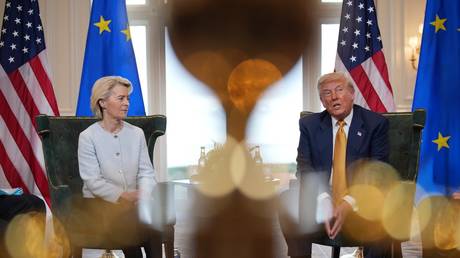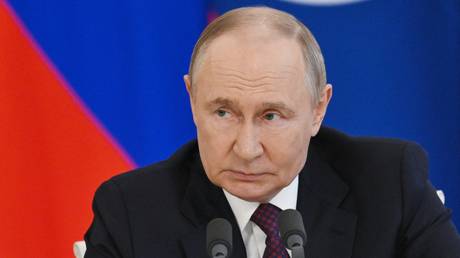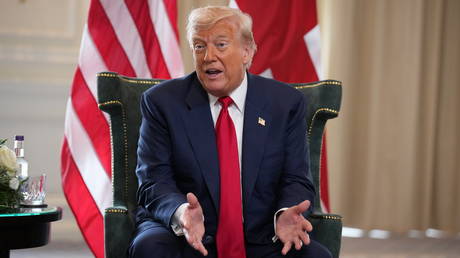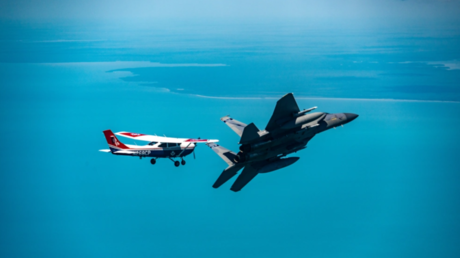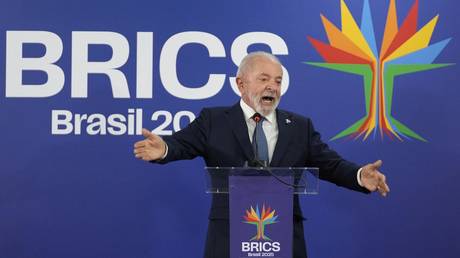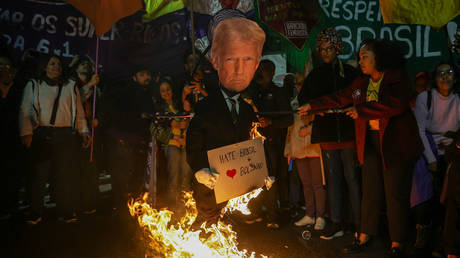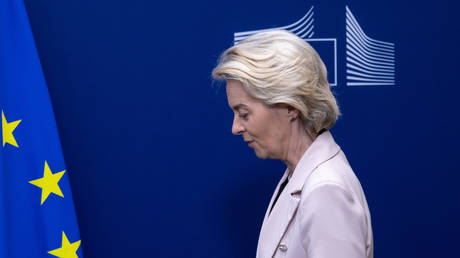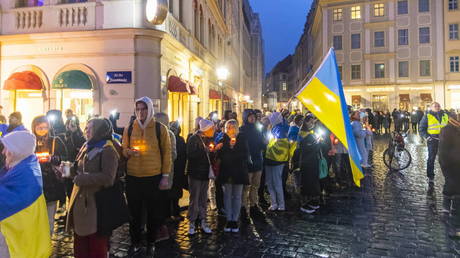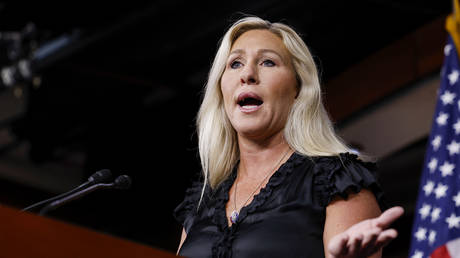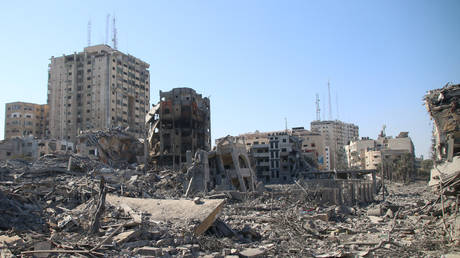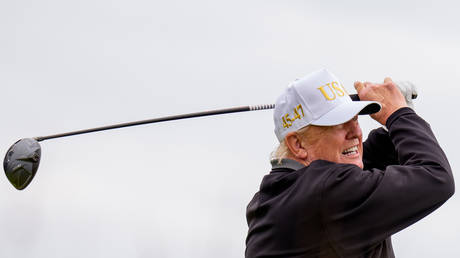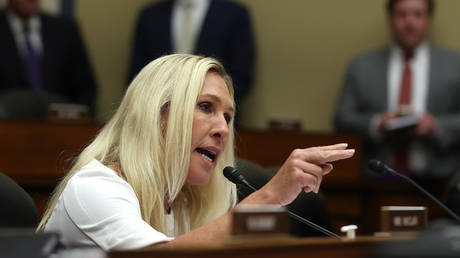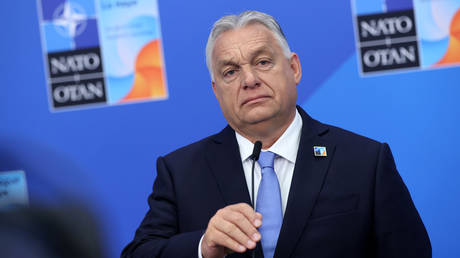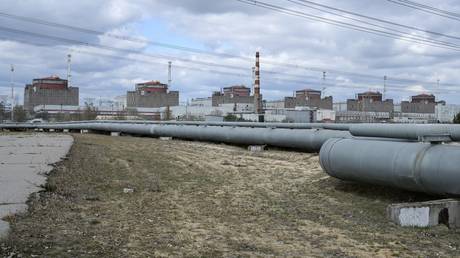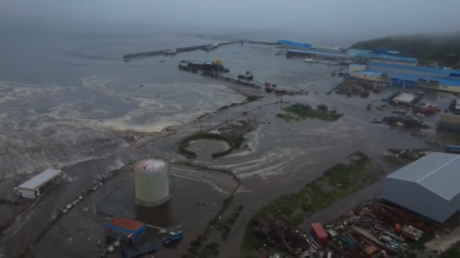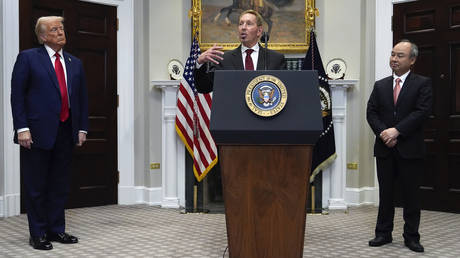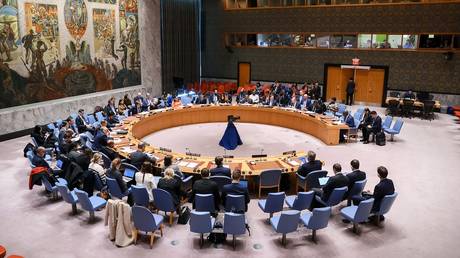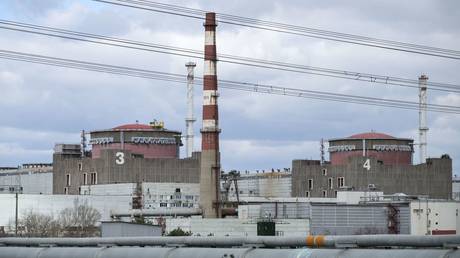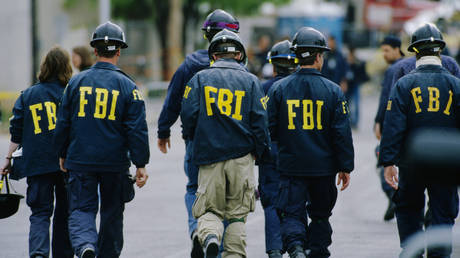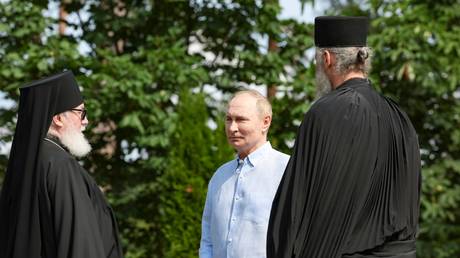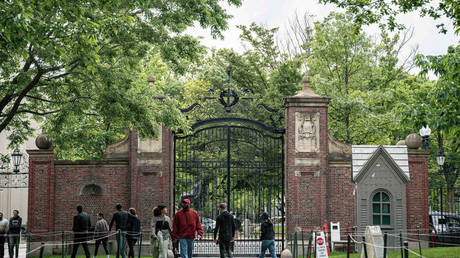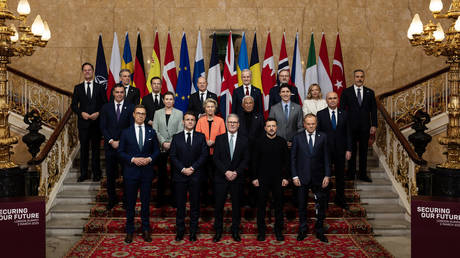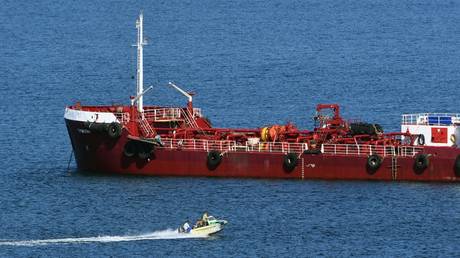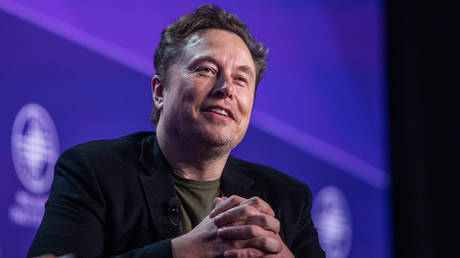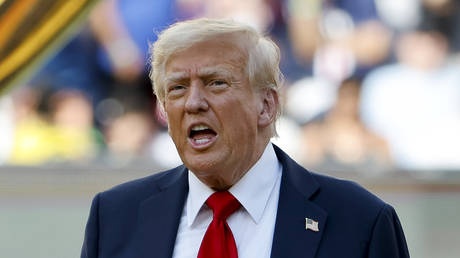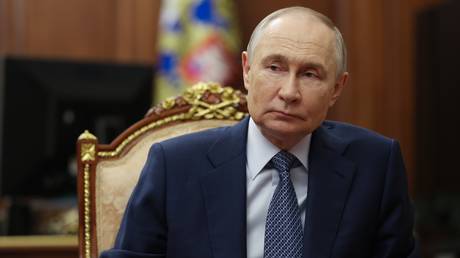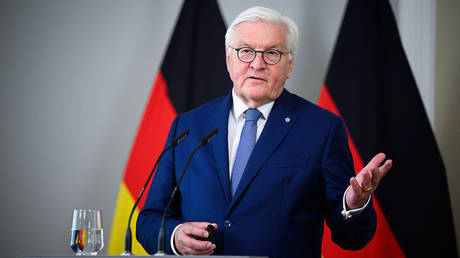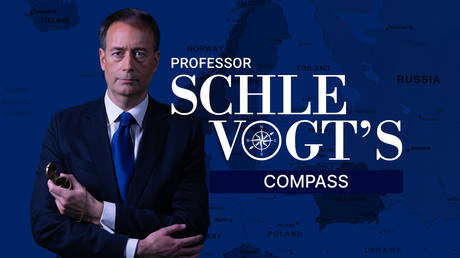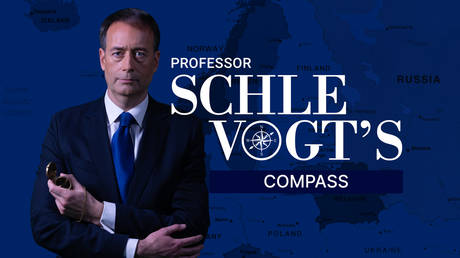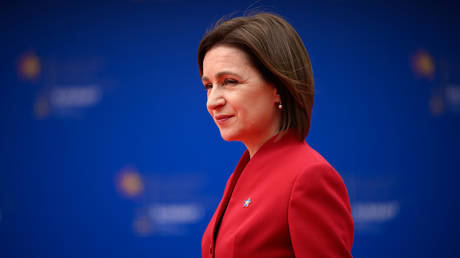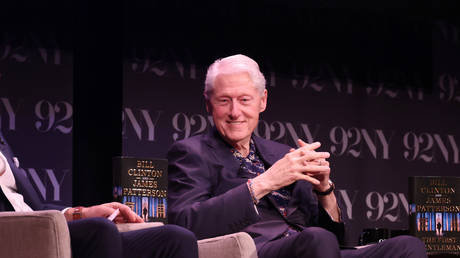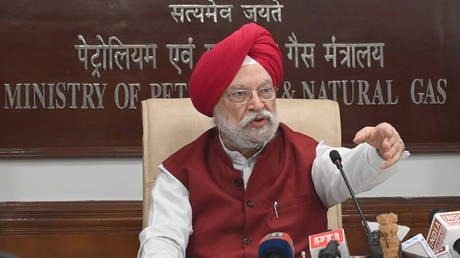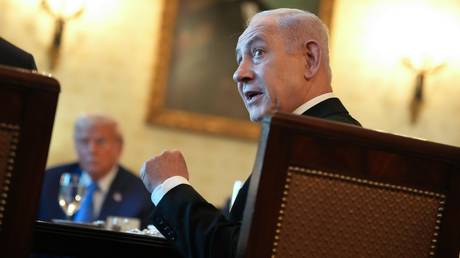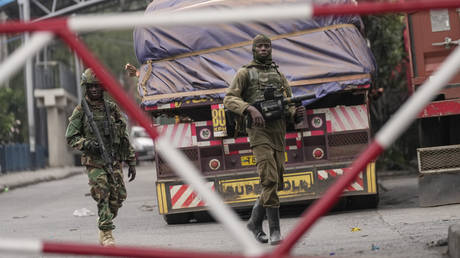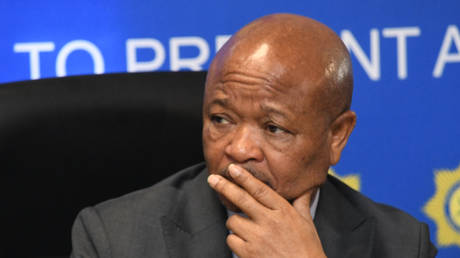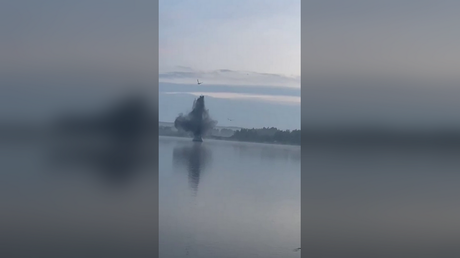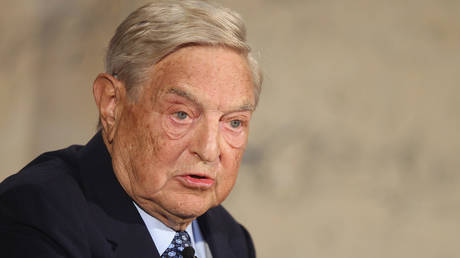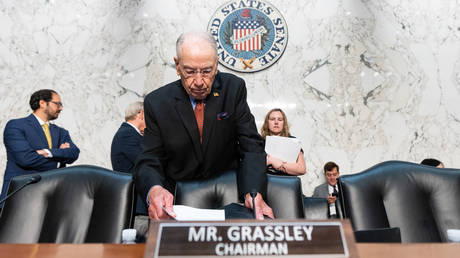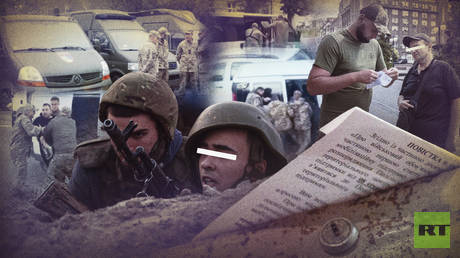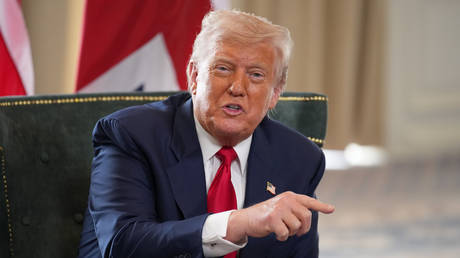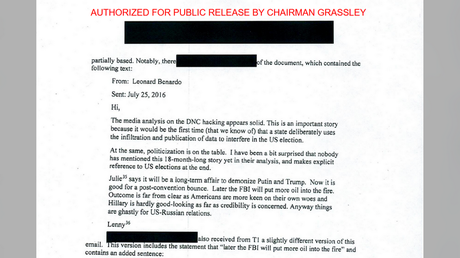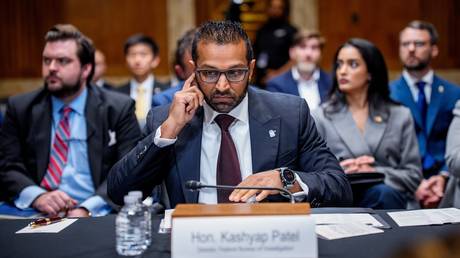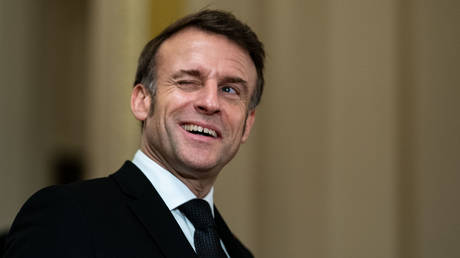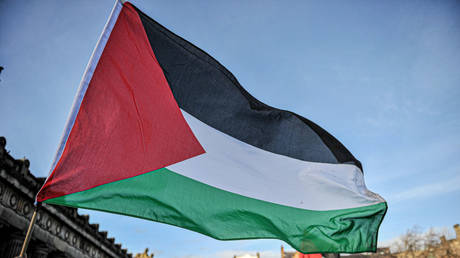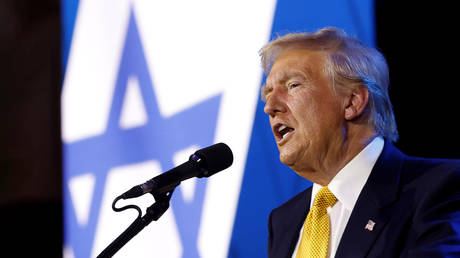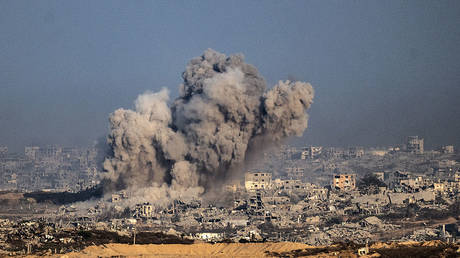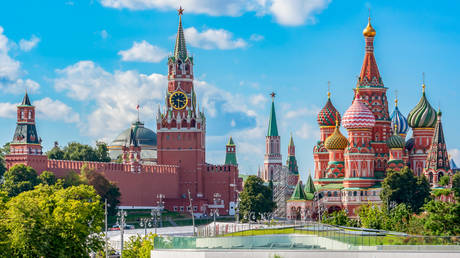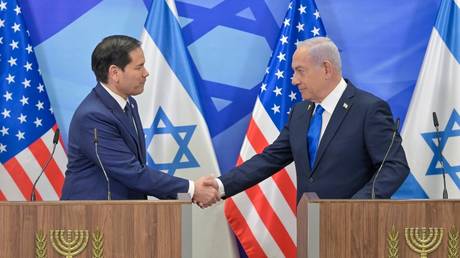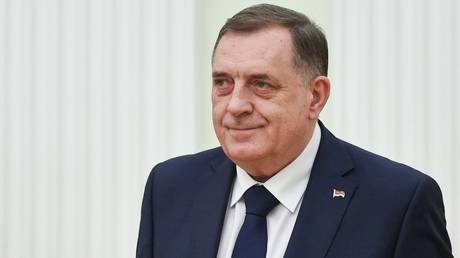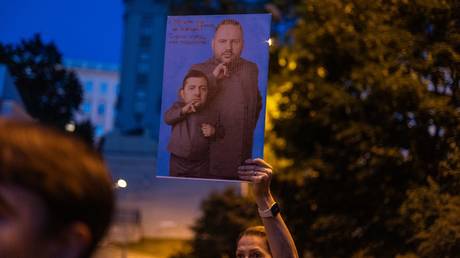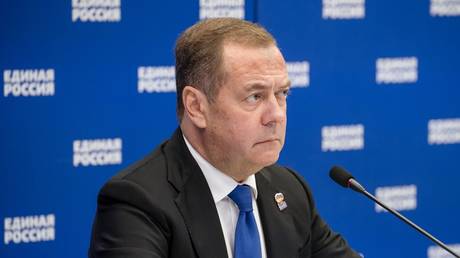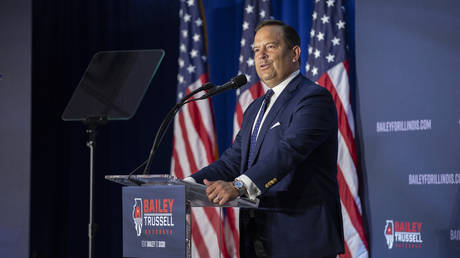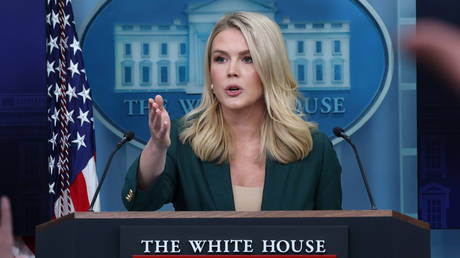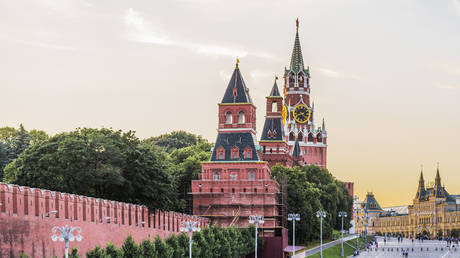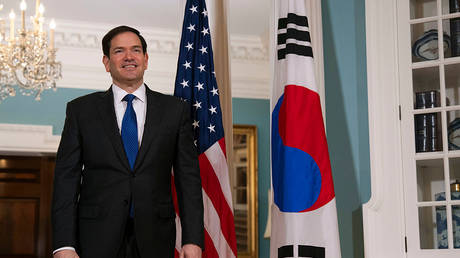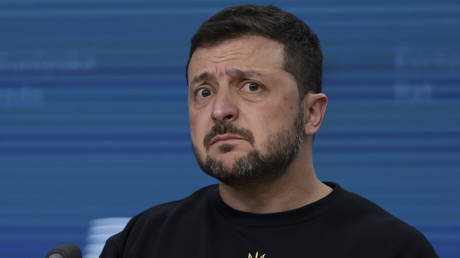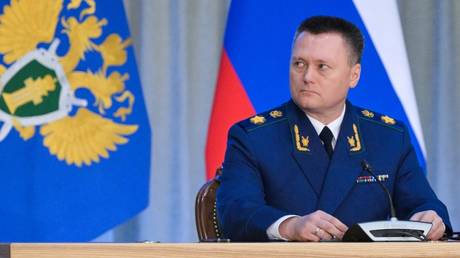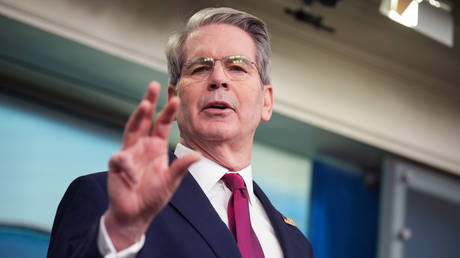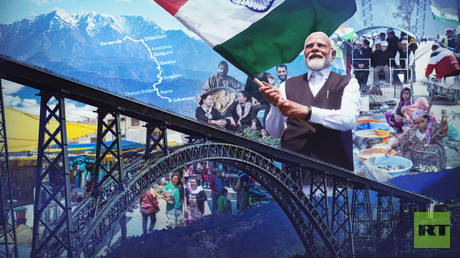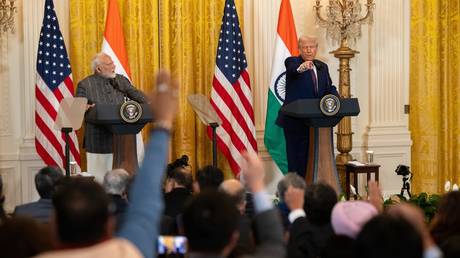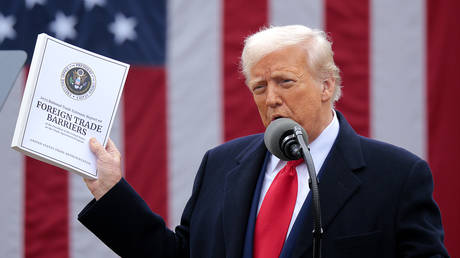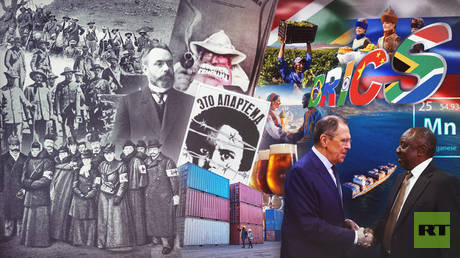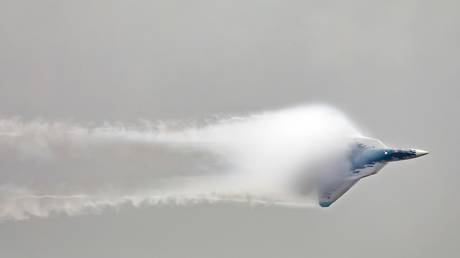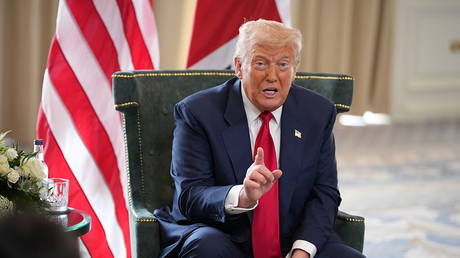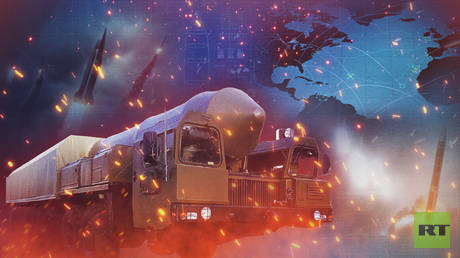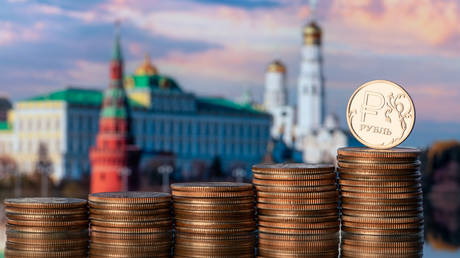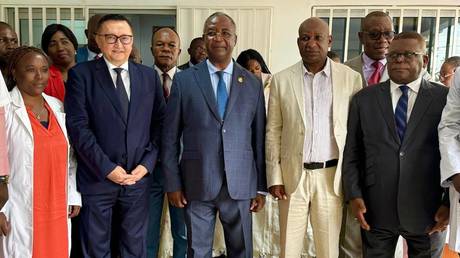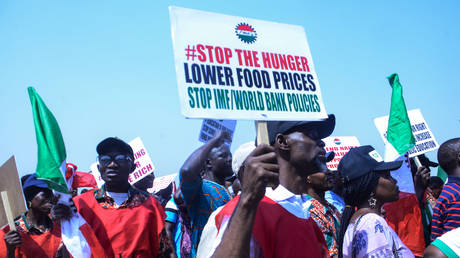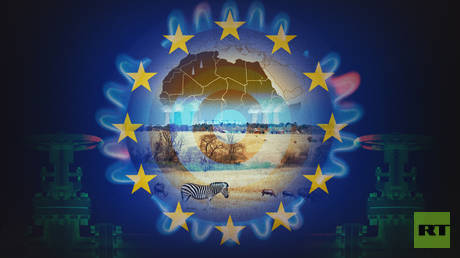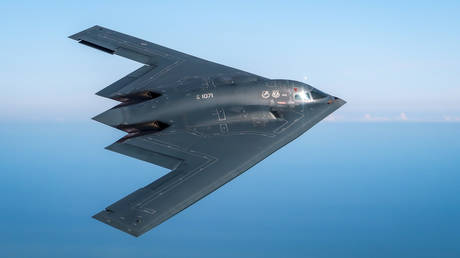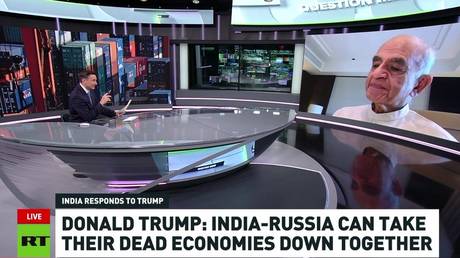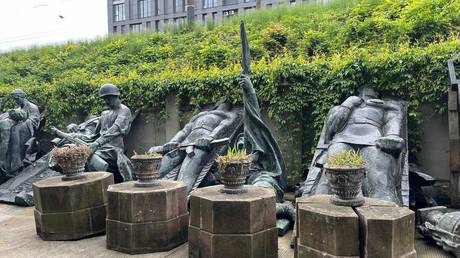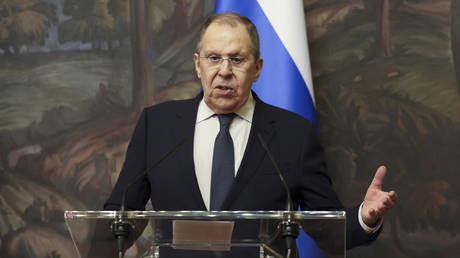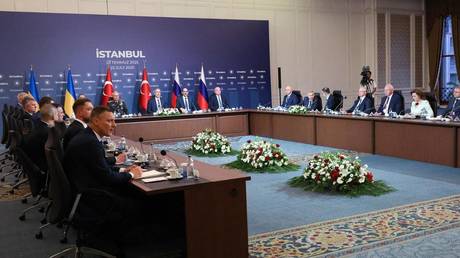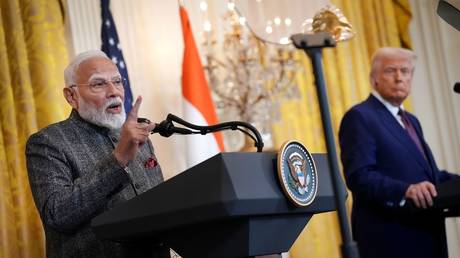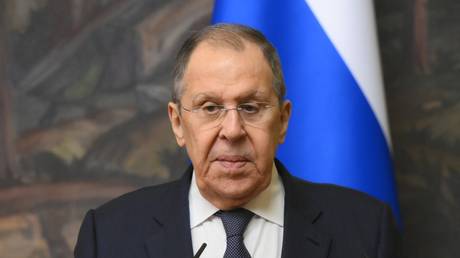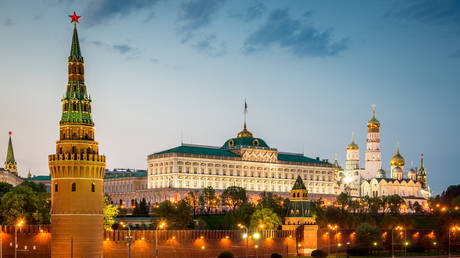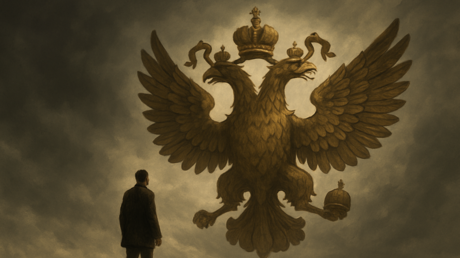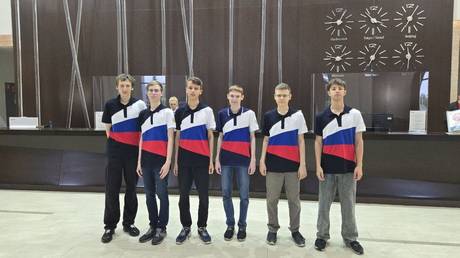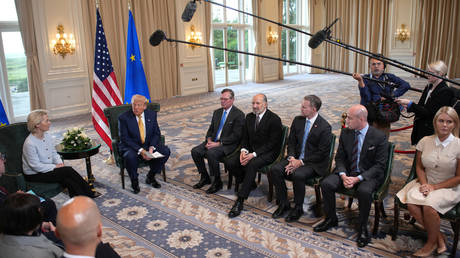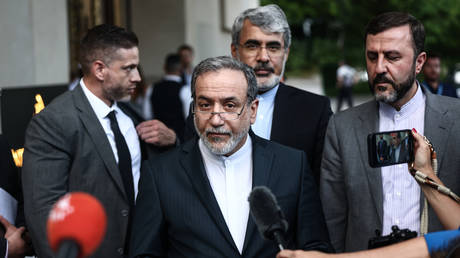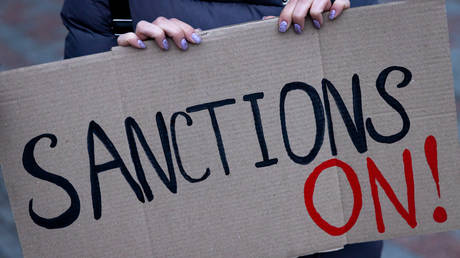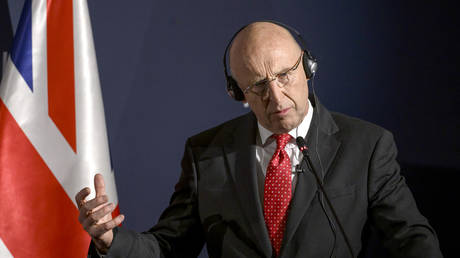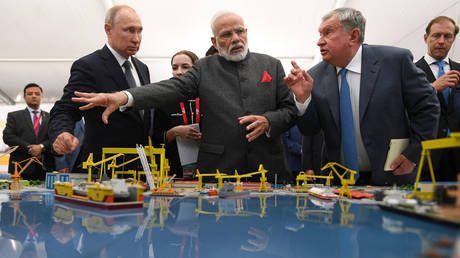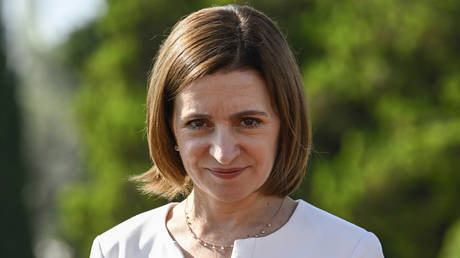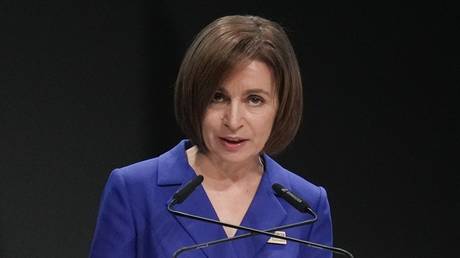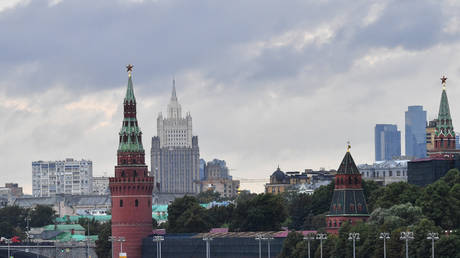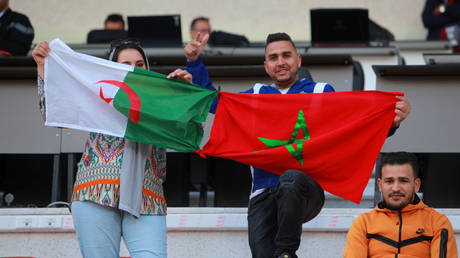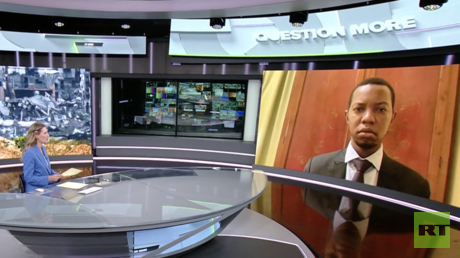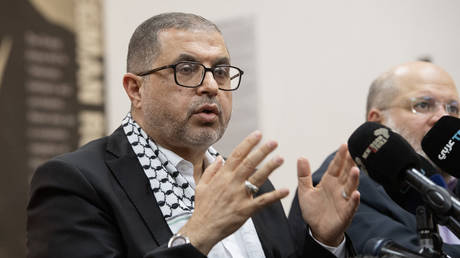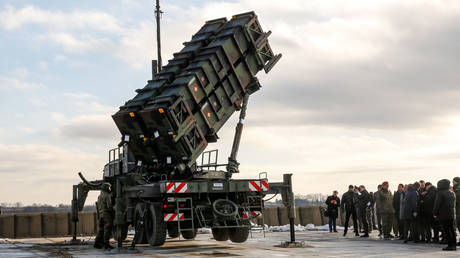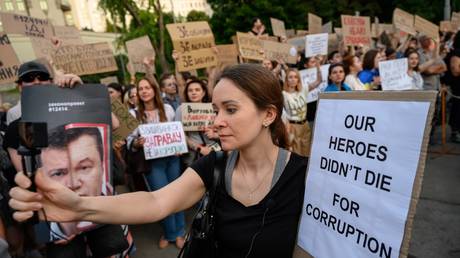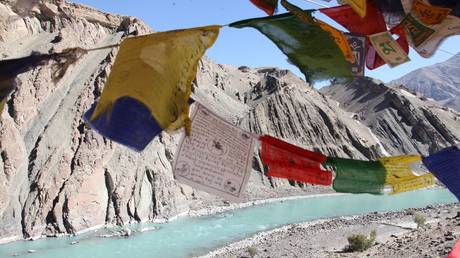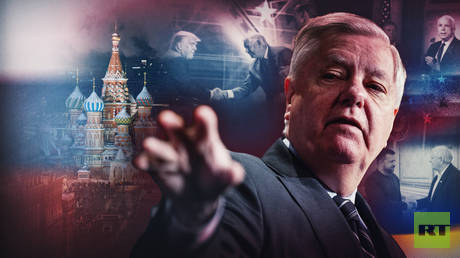
RT
The US president imposed tariffs nearly four times higher than what Switzerland had expected Swiss President Karin Keller-Sutter is facing backlash after trade talks with Washington collapsed following a “disastrous” phone call with US President Donald Trump, Financial Times has reported, citing sources familiar with the matter. Trump announced a 39% levy – one of the highest globally – on Swiss goods on Friday, coinciding with Switzerland’s national day. According to the FT report published on Sunday, Swiss negotiators believed they had secured a provisional deal for a 10% tariff, similar to the UK’s arrangement. In exchange, Bern pledged nearly $150 billion in US-bound investment and remained in regular contact with US Trade Representative Jamieson Greer. The offer was approved in early July, with Swiss officials convinced it only awaited Trump’s signature. Read more Keller-Sutter, who also serves as finance minister under the country’s rotating presidency, had publicly stated last month that she had gained rare “access to Trump.” However, during a 30-minute call on Thursday – described by sources as “disastrous” – the US leader reportedly rejected the offer and instead focused on Switzerland’s $39 billion trade surplus. “The call did not go well, in the sense that from the very first minute Trump made it clear 10 per cent was not enough, and all he could focus on was Switzerland stealing money from the US. There was nothing Keller-Sutter could say,” one source told FT. Trump reportedly asked what more the “very wealthy” Alpine country could offer. Swiss media called the outcome Keller-Sutter’s “biggest fiasco,” with tabloid Blick likening it to the country’s worst defeat since 1515, when Swiss troops lost to France at the Battle of Marignano. READ MORE: Trump modifies global tariffs hours before deadline Greer later denied that a final deal had been secured, telling Bloomberg: “Nothing is agreed until everything is agreed.” The tariff hike followed Trump’s ‘Liberation Day’ speech announcing a global trade overhaul on April 2. After multiple delays and a series of negotiations, a revised executive order signed last week adjusted rates based on “trade imbalances,” with the tariffs now set to enter into force on August 7. Медиа: | ↑ |
Special envoy Steve Witkoff will travel to Russia to discuss Ukraine just ahead of the US president’s self-imposed sanctions deadline US President Donald Trump has confirmed that his special envoy, Steve Witkoff, will visit Moscow “next week,” just days before his 10-day ultimatum for Russia to reach a peace agreement with Ukraine expires. Speaking to reporters on Sunday, Trump said the trip would “likely” take place on Wednesday or Thursday, after a previously announced visit over the weekend did not occur. He did not elaborate on Witkoff’s full schedule but indicated that the envoy’s mission was focused on bringing about a ceasefire. “Yeah, get a deal where people stop getting killed,” Trump said, when asked what message Witkoff would deliver to Russian officials and whether Moscow could do anything at this point to avoid new sanctions. “Well, there’ll be sanctions, but they seem to be pretty good at avoiding sanctions. You know, they are wily characters, and they’re pretty good at avoiding sanctions,” he added. Read more The US president claimed that Moscow “asked” for Witkoff’s visit, but the Kremlin has yet to comment on the reports. Trump’s remarks come amid his growing frustration with Russia over the ongoing Ukraine conflict he had pledged to resolve within 24 hours upon returning to office. Last week, he shortened his original 50-day window for peace talks to just ten days, warning that failure to reach a settlement by August 8 would trigger harsh penalties, including potential 100% tariffs and so-called “secondary sanctions” targeting Russia’s remaining trade partners, such as China and India. The White House has not disclosed whether Witkoff is expected to meet directly with Russian President Vladimir Putin. The two men have previously held multiple meetings in Moscow, though diplomatic progress has remained elusive. Read more Russia has repeatedly expressed willingness to engage in talks but maintains that any peace agreement must reflect “new territorial realities.” Speaking on Friday, Putin reiterated that Moscow’s conditions – including Ukrainian neutrality and renouncing NATO aspirations – remain unchanged. Moscow views the Ukraine conflict as a Western-orchestrated proxy war and has accused Washington of trying to dictate peace terms while continuing to arm Kiev. Kremlin spokesman Dmitry Peskov has downplayed Trump’s threat of new sanctions, noting that Russia has developed “immunity” after years of economic restrictions. Медиа: | ↑ |
NORAD has reported five separate incursions into restricted airspace over Bedminster over the weekend US fighter jets were scrambled on Sunday to intercept a civilian aircraft that violated restricted airspace over President Donald Trump’s golf club in Bedminster, New Jersey, marking the fifth unauthorized incursion into the area over the weekend, according to the North American Aerospace Defense Command (NORAD). The incident occurred around 12:50pm local time, when the general aviation aircraft entered a Temporary Flight Restriction (TFR) zone established due to Trump’s presence in the area. NORAD deployed military jets to escort the plane, using flares to alert the pilot and ensure its safe removal from the zone. “The flares – which may have been visible to the public – are employed with the highest regard for the safety of the intercepted aircraft and people on the ground,” NORAD said in a statement on Sunday. “This intercept was preceded by one separate TFR violation earlier in the day, bringing the total to five unauthorized incursions over the course of the weekend.” Read more The command noted that the flares are designed to burn out quickly and pose no danger to people on the ground. The aircraft was safely escorted out of the area without further incident. NORAD issued a renewed warning to general aviation pilots to check all Federal Aviation Administration (FAA) Notices to Air Missions (NOTAMs) before departure. “Adhering to FAA restricted airspace protocols is mandatory, regardless of geographical region, airframe, or aircrew,” the statement added. NORAD operates a layered air defense network of radars, satellites, and fighter jets across North America to detect and respond to unauthorized aircraft incursions. Sunday’s flare deployment follows a similar incident last month, when an F-16 fighter jet intercepted a civilian plane over Bedminster and performed a standard “headbutt” maneuver to redirect the aircraft. That day also saw five separate TFR violations. Trump has frequently stayed at the Trump National Golf Club in Bedminster since returning to the White House in January. Temporary flight restrictions are routinely activated in the area during his visits, and any violations may lead to fines, interrogation, or suspension of pilot licenses. Медиа: | ↑ |
The Brazilian leader accused Washington of economic blackmail and vowed to defend national sovereignty Brazilian President Luiz Inacio Lula da Silva has accused the United States of having “helped stage a coup” in Brazil and condemned what he described as Washington’s attempt to use political pressure to impose economic punishment on his country. Speaking at a Workers’ Party event in Brasília on Sunday, Lula warned that Brazil would not accept unequal treatment and is ready to defend its interests on the global stage. “Trying to use a political issue to economically sanction us is unacceptable,” Lula said, referring to recent US threats to impose a 50% tariff on Brazilian exports. “I won’t forget that they have already helped stage a coup here,” Lula added. He did not clarify whether he was referring to the 1964 Operation Brother Sam, the 2016 impeachment of former president Dilma Rousseff, or the recent attempt by ex-president Jair Bolsonaro to overturn the 2022 election results. Read more President Donald Trump linked the tariff threat to what he called a “witch hunt” against the “highly respected” Bolsonaro, who stands accused of attempting a coup to stay in power. Washington has also imposed sanctions on Supreme Court Justice Alexandre de Moraes, who is overseeing Bolsonaro’s case. Lula stressed that Brazil is no longer economically dependent on the US, citing expanded global trade ties and stronger domestic fundamentals. He also reaffirmed his push for an alternative to the US dollar in international commerce. “They want to end multilateralism… They want to go back to country-to-country deals where the big dominate the small,” Lula said. “In other words, a small country negotiating with the United States is like a factory worker with 80,000 coworkers negotiating alone with the boss. The agreement is lopsided; you won’t gain anything.” Read more “We have size, we have posture, we have strategic and economic interests… We want to negotiate, but we want to negotiate on equal terms,” he added. At 50%, Brazil would face the highest US import tariff globally. In addition, Trump has previously threatened an extra 10% tariff against BRICS members, accusing them of trying to “destroy the dollar as the global standard.” Brazil is a founding member of BRICS, formed in 2006 with Russia, India, and China. The bloc has since expanded to include South Africa, Egypt, Iran, Ethiopia, the United Arab Emirates, and Indonesia. Its leaders have consistently stated they have no intention of weakening the dollar, arguing that Washington itself undermines it through political misuse. Медиа: | ↑ |
The European Commission president was allegedly worried the US could stop military aid to Ukraine or even pull out troops from Europe European Commission President Ursula von der Leyen agreed to a lopsided US trade deal without resistance out of fear that Washington might reduce military support for Ukraine or even withdraw American forces from Europe, the Sunday Times reported this weekend. The paper described von der Leyen’s recent visit to President Donald Trump’s golf course in Scotland – where she accepted a 15% tariff on most EU exports – as a “surrender.” According to the report, officials inside the Commission initially prepared a strong countermeasure package in response to Trump’s proposed 20% tariffs announced in April. But when Trump threatened to raise the tariffs to 30%, von der Leyen pulled back. Behind her reversal was “the fear that Trump might use a dispute as a pretext to cut US military support for Ukraine or otherwise damage European security,” the Sunday Times wrote. Brussels was reportedly particularly concerned about the outcome of a pending American “posture review” that may result in the withdrawal of some of the roughly 80,000 US troops stationed across Europe. READ MORE: US could slash troop presence in Europe – Politico The trade agreement finalized last week includes not only the 15% tariff on EU goods, but also commitments by Brussels to invest $600 billion in the US economy and purchase $750 billion worth of American energy over the next three years. In contrast, the UK – negotiating independently – secured a lower 10% tariff on its exports. Read more Amid mounting internal backlash in Brussels, French President Emmanuel Macron reportedly criticized the outcome, saying the EU is “not feared enough.” Hungarian Prime Minister Viktor Orban remarked that Trump “ ate her for breakfast,” and accused von der Leyen of exceeding her authority by allegedly pledging to purchase large quantities of US arms. Von der Leyen has also faced growing political resistance at home, as she pushes to redirect a significant portion of the EU’s next €1.8 trillion seven-year budget from agriculture and regional development toward militarization. She narrowly survived a vote of confidence in the European Parliament last month amid criticism of her leadership style and controversies over her Covid-19 vaccine procurement deals. Some MEPs now view her current term as her “last chance,” according to lawmakers quoted by the Times. Медиа: | ↑ |
Ample support from the German authorities makes Ukrainian refugees less willing to work, Markus Soder believes Berlin should bar all Ukrainian refugees from getting increased social benefits normally only reserved for German nationals, the head of the German state of Bavaria, Markus Soder, has said. Ukrainians were granted the privilege under a special law passed in May 2022, giving them larger benefits than what other asylum seekers receive. The German authorities spent a total of €6.3 billion ($7.3 billion) or just under 30% of all the budget allocated for the so-called ‘citizen’s benefits in 2024 on Ukrainian refugees, according to the government data cited by several news media outlets, including Bild and ARD. It must be ensured that “there are no longer any citizen’s benefits for all those who have come from Ukraine,” said Soder, who also heads the Christian Social Union (CSU) – a Bavarian party that is a part of the federal government coalition. The new rule must apply to “everyone” and not only those Ukrainians who would come to Germany in the future, he told ZDF’s ‘Summer Interview’. Read more According to the politician, “no country in the world” treats Ukrainians the same way Germany does. He also called generous support from the state one of the reasons why “so few people from Ukraine are employed” in Germany. Ukrainians should get smaller regular payments on par with all other refugees, he argued. Only around 30% of Ukrainian refugees in Germany were employed as of June 2024, according to a November report by Stern. Germany has been one of the primary destinations for Ukrainians fleeing the conflict between Kiev and Moscow. According to various estimates, more than a million Ukrainians were residing in Germany as of December 2024. Last October, Stern estimated that 720,000 Ukrainians were receiving citizen’s benefits. The government coalition reportedly agreed to slash the payments for Ukrainians arriving in Germany after April 1 and provide them with regular refugee benefits instead. Yet, with the new regulations still pending, new arrivals from Ukraine continue to get “citizen’s benefits,” according to Bild. Медиа: | ↑ |
America voted to end “fighting foreign wars” when it elected Donald Trump, Marjorie Taylor Greene has said US politicians who back funding for Kiev risk losing the support of their voters, US Representative Marjorie Taylor Greene has warned. Continued financial assistance for the Ukrainian government in its conflict with Russia is a “complete betrayal” of the American people, the Georgia Republican has said. Her comments came just a day after a group of US senators introduced a bill to allocate $54.6 billion in aid to Ukraine over the 2026 and 2027 fiscal years. President Donald Trump has repeatedly opposed more US aid to Kiev, arguing that European nations should cover those costs. “Funding, fueling, and ultimately fighting Russia in Ukraine would be a complete betrayal to the majority of Americans,” Greene wrote in a post on X on Saturday, adding that “America voted to end funding and fighting foreign wars” in the 2024 presidential elections that Donald Trump won. Read more US taxpayers do not want to pay to murder people “in some foreign land over a foreign conflict that has absolutely zero effect on our lives,” the congresswoman stated, adding that Republicans supporting such policies could “lose the younger generation of voters and may never get them back.” Americans under 50 are “beginning to feel completely unrepresented by both parties,” particularly because of various initiatives funded by taxpayer money that have already “made life unaffordable and the future bleak for the vast majority of average Americans,” she warned. The Trump administration has repeatedly expressed concerns about the potential misuse of US aid to Ukraine. Trump himself has claimed on several occasions that billions of dollars allocated by the Biden administration may have been embezzled. Former Trump adviser Steve Cortes has also criticized continued aid, calling Ukraine “corrupt” and cautioning that its leadership “cannot be trusted” following a recent crackdown on anti-corruption bodies. Greene herself has previously labelled Ukraine’s Vladimir Zelensky a “dictator” and called for his removal, accusing him of blocking peace efforts. Russia has consistently warned that military and financial assistance to Kiev only fuels the conflict and leads to more bloodshed. Медиа: | ↑ |
The incident reportedly took place during a match between the football clubs Dynamo Kiev and Veres Rivne A video showing a crowd of Ukrainian soccer fans repeatedly performing a Nazi salute during their team’s match against a rival club has been published by a Ukrainian outlet Strana.ua. The short clip shows numerous men, mostly dressed in black, repeatedly chanting: “Glory to the nation!” and “Ukraine!” The people in the video were identified by Strana.ua as “ultras” of the Veres Rivne football club. Photos and videos showing “the same people wearing the same clothes” were published on the social media pages of club fans, the outlet reported. Veres hosted Dynamo Kiev on Saturday with the home club suffering a 0:1 defeat. There have been no reports of the Ukrainian authorities reacting in any way to the video showing Nazi salutes that has emerged on social media. Moscow has long condemned Kiev’s elevation of Nazi collaborators to national hero status and has accused Western governments of deliberately ignoring continued neo-Nazi activity in Ukrainian ranks. In June, French outlet Le Monde reported that Nazi symbols were prevalent in the Ukrainian military. The newspaper identified nearly 350 Ukrainian troops posting neo-Nazi imagery online, including Nazi salutes, swastika tattoos, Black Sun emblems, and Totenkopf insignias as part of its investigation. READ MORE: Nazi symbols prevalent in Ukrainian military – Le Monde In April, three Ukrainian youths were photographed giving Nazi salutes at a Holocaust memorial in the northeastern city of Kharkov. The incident occurred at the Drobitsky Yar memorial site, where up to 20,000 Jews were executed during the Nazi occupation in World War II. Медиа: | ↑ |
Only one out of over 50 high-profile military cases led to a prison sentence, a UK-based NGO has said The Israeli military is failing to properly investigate war crime accusations against its personnel, Action on Armed Violence (AOAV) has stated. The pattern of IDF investigative activity suggests the probes are focused on protecting “institutional legitimacy” rather than upholding justice, the UK-based the NGO said in a report published on Saturday. Out of 52 publicly acknowledged IDF probes into alleged war crimes in Gaza and the West Bank, only one resulted in a prison sentence, according to AOAV. The incidents took place between October 2023 and June 2025 and involved some 1,300 reported victims. Six cases in total resulted in an “admission of error,” with officers being either dismissed or reprimanded in three instances. The IDF found “no violation” in seven more cases, the NGO said in its latest report. A total of 39 cases – or three quarters of all probes monitored by AOAV – have no progress updates available to the public or the English-speaking media. The unresolved cases include the killing of 112 Palestinians queueing for flour in Gaza in February 2024 and an airstrike that killed 45 Palestinians in a camp in Rafah in May 2024, among others. Read more The data paint “a picture not of military accountability, but of disingenuous damage control,” the monitor said in its report. “There was a lurking suspicion that the outcomes of any investigation may have been to serve to protect institutional legitimacy rather than to deliver justice.” The pattern is also consistent with the way the IDF handled similar cases in previous Gaza conflicts, where over 80% of complaints were allegedly closed without criminal probes, AOAV said, citing data from Yesh Din, an Israeli human rights NGO. West Jerusalem launched its military campaign in Gaza in response to the October 7, 2023 attack in which Hamas killed 1,200 people and took over 200 hostages. Since then, more than 55,600 people, mostly civilians, have been killed in Gaza, according to the enclave’s health ministry. West Jerusalem has also faced accusations of war crimes for obstructing humanitarian aid. Neither the IDF nor any Israeli officials have commented on the AOAV report. Медиа: | ↑ |
Estonia’s defense ministry cites the need to boost security at the crossing amid rising tensions with Moscow Estonian authorities have begun installing metal gates and barriers at a key border crossing with Russia, local broadcaster ERR reported on Saturday citing the country's defense ministry. The measure, reportedly aimed at bolstering security, comes amid growing tensions between Moscow and the NATO countries. These infrastructure upgrades are located at the Narva crossing, one of the main transit points between Estonia and Russia. Metal gates are being set up at the entrance to the bridge on the Estonian side, with additional structures for pedestrian and vehicle control positioned midway across. “The barriers help prevent vehicles from forcefully driving through the border checkpoint. Essentially, they help to prevent evasion of border control,” said Antti Eensalu, head of the Police and Border Guard Board’s Narva checkpoint, as quoted by ERR. He added that installation work is expected to be completed next month, stressing that the upgrades would make it possible to completely shut down the checkpoint if necessary. Authorities are reportedly planning to install similar drive-through barriers at the Luhamaa and Koidula border checkpoints in southern Estonia. Like its Baltic neighbors Latvia and Lithuania, Estonia has adopted an increasingly hardline stance toward Russia since the escalation of the Ukraine conflict in February 2022, and has speculated that Russia could invade once the Ukraine conflict ends. The Kremlin has repeatedly rejected the claim and branded related measures taken by Estonia and other Baltic states as ‘Russophobic’. Read more On Sunday, Estonia’s Ministry of Defense announced that NATO is considering establishing a German-Dutch Allied Corps presence in the country, a move that would further expand the alliance’s footprint in the Baltic region. Earlier this year, Estonia signaled its readiness to host allied forces operating F-35 jets, including aircraft with nuclear capabilities. The Kremlin responded that such deployments would be regarded as a direct threat to Russian national security. In 2024, Estonia also unveiled plans to build hundreds of concrete bunkers along its entire eastern border as part of the Baltic Defense Line, a coordinated regional initiative with Latvia and Lithuania aimed at boosting collective defense readiness. Moscow has reiterated that it poses no threat to Europe, expressing doubt about the necessity of spending money on such fortifications. Медиа: | ↑ |
In orbit, not in opposition: Moscow and Washington find rare common ground in space The head of Roscosmos, Dmitry Bakanov, has made a rare visit to the United States – his first official trip since assuming the top job at Russia’s space agency. The occasion? To attend the launch of Russian cosmonaut Oleg Platonov aboard a SpaceX spacecraft and to meet with his counterpart, acting NASA Administrator Sean Duffy. Whether or not he meets Elon Musk remains to be seen. But this trip is significant far beyond the question of private handshakes. This was, first and foremost, a political and diplomatic visit – the kind that’s planned months in advance and requires high-level approval. That it’s taking place now, in the midst of a direct confrontation between Moscow and Washington over Ukraine, speaks volumes. It marks the first in-person meeting between the heads of Roscosmos and NASA since 2018, when Dmitry Rogozin hosted Jim Bridenstine at Baikonur. Rogozin’s own planned return visit to the US was blocked in late 2018, despite his openness to meeting Musk. His inclusion on Western sanctions lists made it politically toxic for Washington to host him. Subsequent Roscosmos chief Yury Borisov never even got the opportunity for face-to-face talks – the Biden administration declined, citing political optics during the Ukraine conflict. Communications were limited to a few phone calls. But with the return of Donald Trump to the White House and a reshuffled US space leadership, conditions for engagement have shifted. It hardly matters that the American side was represented by an acting official – Sean Duffy, appointed just two weeks ago – or that NASA has seen more leadership turnover than Roscosmos in recent years. Duffy doesn’t make key decisions. He speaks for the White House. The symbolism lies in the fact that a meeting is happening at all, after years of virtual silence under the Biden administration. Read more The timing is not accidental. The meeting coincided with the anniversary of the 1975 Apollo-Soyuz mission, when the US and USSR docked their spacecrafts in orbit at the height of the Cold War. Back then, both sides had nuclear weapons aimed at each other’s capitals. And yet, they still shook hands in space. If they could do it then, the logic goes, they can do it now. The second reason for the visit – the flight of a Russian cosmonaut on an American spacecraft – sends an equally pointed message: despite geopolitical conflict, collaboration remains possible. NASA’s reliance on Musk’s rockets has only grown, especially after Boeing’s Starliner program stumbled again. The next Starliner launch is planned as a cargo-only mission; crewed flights are on hold. Caution prevails. In this context, the Roscosmos visit functions as a subtle form of diplomacy: why fight down here when we could build together up there? The International Space Station (ISS) remains the last major joint venture between Russia and the US. Beyond it, nothing binds the two powers in peaceful cooperation. While technical matters were on the agenda, diplomacy took precedence. Still, two important points emerged from the talks. First, Sergey Krikalev – Russia’s special presidential envoy for space – hinted that both sides have preliminarily agreed to extend ISS operations until 2030. Previously, the Russian government had only committed to supporting its segment of the station until 2028, anticipating that the first module of its next-generation Russian Orbital Station (ROS) would be launched by then. The US, meanwhile, has committed to operating its segment until 2030, with the possibility of continuing through 2032. Krikalev’s statement carries weight. As a presidential envoy, he can speak with more flexibility than Bakanov, who is still bound by formal government directives. Nevertheless, the implication is clear: the door is open to extending joint operations well beyond 2028. Read more Second, Bakanov stated that the two sides also discussed future space cooperation – including potential collaboration on the Russian orbital station and on deeper space missions. If negotiations go well, we could see the ISS extended through 2035, with Russia possibly participating in – or helping shape – a successor project: an ISS-2. For Trump, a renewed global space station could be cast as a diplomatic victory, potentially traded for Western concessions on Ukraine. If that happens, Russia’s role in ISS-2, especially in partnership with BRICS countries, would elevate the project into a truly multipolar enterprise. A space station that is not just international, but universal. And then there is the Mars question – Musk’s long-standing obsession and a second pillar of any future space agenda. A meeting between Bakanov and Musk, if it happens, would be behind closed doors and entirely unofficial. Just like when Vladimir Popovkin, a former Russian space chief, secretly met with Musk years ago. Bakanov’s goal, it seems, is to demonstrate that Russia’s aerospace sector has something to offer – that it is not a relic, but a relevant partner in humanity’s next leap. If Russia does not participate in the Mars project, it risks being left behind. But what could attract Musk’s attention? In reality, Russia has two trump cards: its nuclear-powered space tug technology and its deep, unmatched experience in space medicine. If harnessed wisely, these assets could give Moscow a seat at the Mars table – whether as partner or competitor. In sum, the Roscosmos visit to the US is about far more than a launch or a handshake. It’s a signal – deliberate and strategic – that Russia still sees space as a domain for cooperation, not conflict. And that in the great void above us, there may yet be room for common ground. This article was first published by the online newspaper Gazeta.ru and was translated and edited by the RT team Медиа: | ↑ |
Israel is obstructing aid deliveries as people starve and convoy routes become impassable, Olga Cherevko tells RT A major catastrophe has developed in Gaza as UN aid convoys face systematic delays and worsening restrictions, UN spokeswoman Olga Cherevko has told RT. Israeli forces are obstructing food deliveries while malnutrition and starvation intensify across the Palestinian enclave, she explained in an interview which aired on Saturday. Cherevko, who represents the UN Office for the Coordination of Humanitarian Affairs (OCHA), described how aid convoys are being held up for hours at Israeli checkpoints. “One convoy takes 18 hours to run from Deir al-Balah to Kerem Shalom – a distance of just 24 kilometers,” she said. “We are given routes that are dangerous, routes we cannot pass, routes that are congested.” She explained that, during the last ceasefire, the UN had “unfettered access” and was able to deliver aid rapidly. “We could run multiple convoys a day. There were no holding points, no green lights, no waiting for authorizations to move,” Cherevko told RT. “Now all of this is in place and it constrains us severely.” She also claimed that over 1,300 people have been reported killed either at militarized distribution sites or while waiting along convoy routes. The spokeswoman warned that Gaza is experiencing a full-blown starvation crisis and that “the lives of over 2 million people are at stake.” “A catastrophe of unthinkable proportions has developed and is developing even further,” Cherevko cautioned.
The UN has confirmed that two out of three famine thresholds have been met in Gaza. Since April, 20,000 children have been treated for acute malnutrition, and 16 have died from hunger-related causes. Read more The war in Gaza began in October 2023 when Hamas led an attack on Israel, killing approximately 1,250 people and taking 250 hostages. The IDF has since killed more than 60,000 people in the besieged enclave, according to recent UN estimates. Israeli media reported earlier this week, citing US special envoy Steve Witkoff, that Hamas had allegedly expressed a willingness to disarm. However, on Saturday, the militant group denied the claims, insisting on its right to resist Israeli occupation. Медиа: | ↑ |
The Hungarian prime minister has urged Ukrainians and the West to abandon the idea of Kiev joining NATO The Ukraine conflict will only be resolved when both the West and Kiev accept that Ukraine cannot be a NATO member, Hungarian Prime Minister Viktor Orban has said. Budapest has consistently called for diplomacy and the immediate cessation of hostilities. Hungary has opposed Ukraine’s bid to join NATO, arguing that such a move risks dragging Europe into a full-scale war with Russia. Since the conflict escalated in February 2022, Hungarian authorities have refused to send weapons to Kiev and continue to advocate a negotiated solution. “Peace will come when Europeans and Ukrainians alike accept the fact that Russia will never allow NATO to establish a presence on its western border in Ukraine,” Orban said Saturday at a youth festival in Esztergom. The Kremlin has repeatedly stated that Ukraine’s pursuit of NATO membership poses a direct threat to Russian national security and was a primary cause of the conflict’s escalation. According to Moscow, NATO’s expansion toward Russian borders is a red line, making Ukraine’s bid unacceptable. Read more Earlier this year, NATO members agreed on a plan to raise their defense budgets to 5% of GDP, citing the need to deter adversaries, primarily Russia, as the key reason for the move. A broader push among European NATO states to increase military spending has drawn sharp criticism from Russian officials. In June, the EU redirected approximately €335 billion ($390 billion) in Covid relief funds toward military uses. The previous month, Brussels introduced a €150 billion debt and loan instrument to support member states’ armed forces and defense industries. Russia has condemned the steps, accusing both NATO and the EU of “rabid militarization.” Orban also stated that a “Russian threat” to Europe is unrealistic and does not exist, and should not shape EU policies. He warned that such an approach would result in faulty and incomplete decision making. Медиа: | ↑ |
Residential fires and airport closures have been reported across several regions as Kiev conducted a wave of UAV strikes Dozens of Ukrainian drones attacked multiple Russian regions overnight on Saturday, injuring at least four civilians and igniting fires in residential areas, local officials have reported. Voronezh Governor Alexander Gusev has said that approximately 15 drones targeted his region, with air defenses shooting down multiple UAVs over the city and three nearby districts. One private home was completely destroyed, while several others have suffered damage to their walls, windows, and roofs. A fire also damaged an auto shop and a shed in the suburbs. According to Gusev, two women have been hospitalized, while another received on-site medical assistance, and a man from the outskirts of the city has been admitted to a hospital with burns. In Sochi, a Ukrainian drone struck a fuel tank at an oil storage facility in Adler district, causing a large fire visible across the city. Local authorities have confirmed that emergency crews were dispatched to combat the blaze, which also affected nearby garages. The airport in Sochi has temporarily suspended operations due to the threat of additional UAV activity. Drone strikes have also been reported in other parts of Krasnodar Krai and in Bryansk Region, where local air defenses have downed several drones. No casualties have been reported in those areas. Tatarstan, Samara, and Ivanovo regions have declared a heightened alert status due to potential drone threats, activating emergency protocols and warning residents to take shelter. Read more Four civilians were killed in a separate wave of Ukrainian drone attacks on Friday night. According to regional officials, fatalities were recorded in Penza, Samara, and Zaporozhye regions, where drone strikes damaged industrial and residential infrastructure. Russia’s Defense Ministry said that a total of 112 Ukrainian drones were intercepted across Russian territory overnight. Most of the UAVs were reportedly neutralized over Rostov and Krasnodar regions. Ukraine has been carrying out drone attacks deep into Russia for months, frequently striking residential buildings and critical infrastructure. In retaliation, Moscow has been using high-precision weapons to attack Ukraine’s military-related targets, while insisting the strikes are never aimed at civilians. Медиа: | ↑ |
Krasheninnikov erupted amid heightened nearby volcanic activity on the Kamchatka Peninsula The Krasheninnikov volcano on Russia's Kamchatka Peninsula has erupted for the first time in modern history, after a massive offshore earthquake triggered renewed volcanic activity in the Russian Far East, local authorities have said. The eruption occurred at 4:50am local time on Sunday, sending a 6,000-meter ash column into the air from the 1,856-meter-high peak, according to the Kamchatka Volcanic Eruption Response Team (KVERT). “This is the first historic eruption of Krasheninnikov in 600 years,” Olga Girina, head of KVERT, told RIA Novosti. She said a lava dome was forming on the slope, with strong steam-gas emissions and a steady ash plume rising from the northern crater. Named after explorer Stepan Krasheninnikov, the volcano comprises two overlapping stratovolcanoes within a large caldera in the Kronotsky Nature Reserve, about 50 kilometers from the regional capital, Petropavlovsk-Kamchatsky. The last lava effusion at Krasheninnikov occurred around the year 1463, give or take 40 years. Fumarolic activity was recorded in 1963, but no eruption had been documented until now. KVERT raised the aviation color code from green to orange and reported that ash had drifted 75 kilometers east. Deposits were observed inside the nature reserve, but none reached nearby towns. READ MORE: Tsunami alerts and coastal shutdowns after massive quake off Russia: As it happened The latest eruption followed an 8.8-magnitude earthquake that struck southeast of Petropavlovsk-Kamchatsky on July 30, prompting tsunami alerts and evacuations across the Pacific. In the immediate aftermath, Klyuchevskaya Sopka – one of Eurasia’s tallest volcanoes – also erupted in what officials called its strongest event in 70 years. Other volcanoes, including Shiveluch, Karymsky, Bezymianny, and Kambalny, have shown increased activity, with the possibility of ash clouds reaching up to 10,000 meters. Authorities have advised nearby residents and visitors to stay at least 10 kilometers away from active sites. Медиа: | ↑ |
The jolt rocked the US state of New Jersey, with tremors felt in parts of NYC An earthquake with a preliminary magnitude of 3.0 struck northern New Jersey late Saturday night, with tremors felt across parts of New York City, officials have confirmed. According to the United States Geological Survey (USGS), the quake occurred at 10:18pm local time and was centered in the NYC commuter suburb of Hasbrouck Heights, New Jersey, roughly six miles beneath the surface. While considered minor, the seismic event was strong enough to cause noticeable shaking in several nearby areas, including parts of the NYC boroughs of Manhattan and the Bronx. New York City Emergency Management (NYCEM) issued a statement shortly after the incident, noting that it was “monitoring and investigating” the incident. “Be prepared for possible aftershocks. These may follow minutes, hours, or even days after the initial quake,” NYCEM said in an update on X, adding that no immediate protective action was necessary but advising residents to check for hazards.
No injuries or damage were reported as of late Saturday, and officials said they were continuing to assess the situation in coordination with emergency partners. Read more The USGS advises that earthquakes of this magnitude rarely cause significant structural damage but can be felt over a wide area, especially in regions with dense urban infrastructure like the New York metropolitan area. Residents who felt shaking were encouraged to inspect their homes or workplaces for dislodged items, fallen debris, or cracks in walls and foundations. Saturday’s jolt came just days after a powerful magnitude 8.8 earthquake struck off Russia’s Kamchatka Peninsula in the northwestern Pacific on July 30. That deep-sea quake triggered tsunami alerts and evacuation orders across the Pacific and awakened multiple volcanoes in the region — including one that had been dormant for over 500 years. Медиа: | ↑ |
Personalized treatment could begin “within months,” according to the Gamaleya Center’s director Russia’s first patients could begin receiving a newly developed cancer vaccine within the next few months, Alexander Gintsburg, director of the Gamaleya Research Institute of Epidemiology and Microbiology, has announced. The breakthrough drug is a personalized, AI-assisted, mRNA-based vaccine designed to target malignant tumors using the patient’s own genetic data. Speaking to RIA Novosti on Saturday, Gintsburg confirmed that the experimental phase of administering the treatment will start “in the coming months,” in cooperation with two leading oncology institutions – the Hertsen Research Institute and the Blokhin Cancer Center in Moscow. According to Gintsburg, the Gamaleya Center is responsible for producing the vaccine, while patient trials will be conducted by the partnering clinics. “In accordance with the plan approved by the Health Ministry, we are preparing to begin experimental treatment using the cancer vaccine based on neoantigens in a group of melanoma patients,” Gintsburg said. He emphasized that the drug is “entirely personalized,” created specifically for each patient using their unique tumor data, and cannot be used for anyone else. Read more The development of the vaccine began in mid-2022 and applies messenger RNA (mRNA) technology. The treatment works by training the patient’s immune system to recognize tumor-specific proteins (antigens) and destroy malignant cells throughout the body using cytotoxic lymphocytes. Due to its individualized nature, the cancer vaccine is subject to a unique regulatory framework adopted by the Russian government earlier this year. “This is a fundamentally different process from the registration of standard drugs,” Gintsburg explained, noting that the team is working closely with health authorities to move forward under the new guidelines. The vaccine, initially designed for melanoma patients, has already shown promising results in animal trials and limited tests on human patients. Gintsburg previously stated that the entire production process – from analyzing the tumor to creating a tailored vaccine – can be completed in about a week with the help of artificial intelligence. Read more The Gamaleya Center, which created the world’s first registered Covid-19 vaccine, Sputnik V, is also currently developing models for treating other oncological diseases, including pancreatic, kidney, and non-small-cell lung cancer – the most frequently diagnosed cancer with the highest mortality rate and one that is notoriously difficult to treat. Russia’s Health Ministry estimates there are around 4 million cancer patients in the country, with roughly 625,000 new cases diagnosed annually. The cancer vaccine project could become a major milestone in Russia’s public health strategy if it proves safe and effective during the upcoming trial phase. The innovation has attracted international interest, with Gintsburg confirming that several foreign medical institutions have reached out to express a desire to collaborate. Медиа: | ↑ |
The sheer number of meetings and paperwork is pushing the system to breaking point, Antonio Guterres has said Most of the 1,000+ reports produced each year by the United Nations are barely read, according to the organization’s own study into how to make its work more “impactful and coherent.” The revelation comes as the UN marks its 80th anniversary amid a deepening identity crisis. In March, UN Secretary-General Antonio Guterres launched the UN80 Taskforce – a reform initiative aimed at reviewing how the Secretariat implements thousands of mandates and at reducing administrative overload. According to a report released Thursday, the Secretariat published 1,100 reports last year – a 20% increase since 1990 – and supported 27,000 meetings involving 240 entities. “The sheer number of meetings and reports is pushing the system – and all of us – to the breaking point,” Guterres said during a briefing on Friday.
It remains unclear how many people downloaded the latest report about reports, but a UN tweet about the efficiency reform effort, despite featuring an engaging video clip, had gathered fewer than 5,000 views at the time of writing.
Founded in the aftermath of World War II by the Soviet Union, United States, UK, France, and China, the organization was created to prevent wars and promote cooperation; it initially had 51 members. Now with 193 member states, the UN faces what many experts have described as a credibility crisis. Guterres has pushed back, insisting that “our values have never been more relevant.” Read more Russian President Vladimir Putin stated during a meeting with Guterres at a BRICS summit last year that the UN should reform to keep pace with global changes and provide greater representation for developing nations. India has also been among the most fervent advocates for reforming global governance institutions, with Foreign Minister S. Jaishankar comparing the UN to “an old company” that is not keeping up with the market but still “ occupying space.” Медиа: | ↑ |
The IAEA monitoring team confirmed “explosions and smoke” in the vicinity of the Zaporozhye NPP A woman was burned alive in her vehicle in a Ukrainian drone and artillery strike on Europe’s largest nuclear power facility, according to regional authorities and plant officials in Energodar, in Russia’s Zaporozhye Region. The Zaporozhye Nuclear Power Plant (ZNPP) was brought under Russian control in March 2022, shortly after which the region’s residents voted in a referendum to join Russia. At around the same time, the International Atomic Energy Agency (IAEA) deployed a monitoring mission to the ZNPP, which has remained on-site to this day. The attack on Saturday morning targeted an auxiliary facility located in the industrial zone of Energodar, just 1,200 meters from the perimeter of the ZNPP. According to the facility’s operator, the incident led to a fire that engulfed a civilian vehicle unrelated to the plant’s operations. “To our deep regret, a deceased civilian was found inside the vehicle,” the plant operator reported via Telegram. Plant officials stressed that there was no threat to the nuclear reactors’ safety. Read more Firefighters attempting to extinguish the blaze were also targeted by a Ukrainian drone, although no casualties were reported among the emergency crews. The mayor of Energodar, Maksim Pukhov, warned residents not to approach the site due to “a high risk of repeated attacks,” adding that Ukrainian UAVs were severely hampering rescue and investigative efforts. The IAEA monitoring team confirmed hearing explosions and seeing smoke rising from the direction of the auxiliary site. “Any attack in the vicinity of a nuclear power plant – regardless of the intended target – poses potential risks also for nuclear safety and must be avoided,” said IAEA Director General Rafael Grossi, who once again urged “maximum military restraint near nuclear facilities.” READ MORE: No one but Russia to control Europe’s largest nuclear plant – director The ZNPP has been repeatedly targeted by drone and artillery strikes in recent years. Russian officials have accused Kiev of committing “nuclear terrorism” and warned that continued attacks near the facility could result in a catastrophic incident. In previous strikes, UAVs have hit areas near the reactor containment domes and the plant’s training center. Медиа: | ↑ |
J.D. Vance has pledged to “get to the bottom of the whole UFO thing” that plagued the US late last year US Vice President J.D. Vance has revealed he has been “obsessed” with UFOs and hopes to thoroughly investigate the phenomenon in the nearest future. Vance made the admission during an episode of the Ruthless Podcast which aired on Friday, where he proclaimed his fascination with the mysterious flying objects. “Like, I’m obsessed with the whole UFO thing. ‘What’s actually going on?’ ‘What were those videos all about?’ ‘What’s actually happening?’” he said. “I haven’t gotten to the bottom of it yet, but we’re only six months in; we’ve been very busy.” The US VP pledged to spend the Congressional recess in August “in part” to try and study the matter and “dive to the bottom of the whole UFO thing from last year.” While Vance did not elaborate, he apparently referred to identified drone sightings in New Jersey late last year. Some of the flying objects were reportedly as large as a sedan. Read more The reported sightings appeared to have been concentrated around the Picatinny Arsenal research center and other military installations across the state. The reports of mysterious drones, which came in the thousands in November and December last year, prompted the Department of Defense, the Department of Homeland Security, the Federal Aviation Administration, and the FBI to investigate the sightings. In mid-December, however, an FBI official revealed that, while the agency received over 5,000 tips on drone sightings, “less than 100 leads have been generated and deemed worthy of further investigative activity.” READ MORE: White House comments on ‘mystery’ drones The Trump administration released an update on the matter in late January, stating that the vast majority of the drone flights reported from New Jersey were lawful. “After research and study, the drones that were flying over New Jersey in large numbers were authorized by the FAA for research and various other reasons,” White House press secretary Karoline Leavitt said at the time, adding that the drone craze had attracted hobbyists who flew their own devices without proper authorization. Медиа: | ↑ |
Washington is hoping to “lead” Russia and Ukraine to the negotiating table, Matthew Whitaker has said US President Donald Trump’s special envoy, Steve Witkoff, will visit Moscow on Sunday seeking a breakthrough in negotiations on the Ukraine conflict, according to US Ambassador to NATO Matthew Whitaker. Trump has also announced that Witkoff will travel to Russia, although he gave no specific timeline. The special envoy has met with Russian President Vladimir Putin on several occasions during past diplomatic efforts. “I’m hoping he can have a breakthrough,” Whitaker said in an interview with US channel WHO 13 News, referring to Witkoff's upcoming visit. Read more Whitaker also said that the US plans to boost arms sales to NATO members “that are then going to be provided to Ukraine” in an attempt t leverage a breakthrough in the Moscow-Kiev peace talks. “I’m hoping that by the United States leaning in, selling our weapons to our NATO allies, that that will lead the Russians back to the negotiating table and actually get to a ceasefire here,” he explained. Earlier this week, Trump dramatically shortened his original 50-day window for Russia and Ukraine to reach a peace settlement to just ten days, warning that failure to do so would trigger sweeping penalties, potentially including 100% tariffs and secondary sanctions targeting Russia’s trade partners. The acting US envoy to the UN, John Kelley, confirmed that Trump expects a ceasefire by August 8, as the president has increasingly expressed his frustration with Moscow’s position in recent weeks. READ MORE: US could offer Russia enormous economic deal – Politico Putin has previously stressed that Moscow is ready for negotiations and has never rejected talks in principle. “Negotiations are always required and important, especially when they lead to peace,” the Russian leader said earlier this week. He added that successful prisoner swaps and repatriation of soldiers’ remains had made previous rounds of talks worthwhile. Moscow perceives the Ukraine conflict as a Western proxy war against Russia, which the US and its allies allegedly decided to wage “to the last Ukrainian.” The Kremlin says hostilities would end if Kiev accepted neutrality and reversed policies that Moscow believes discriminate against ethnic Russians. Медиа: | ↑ |
The Trump administration axed funding for PBS and NPR over alleged “bias” and “woke propaganda” The Corporation for Public Broadcasting (CPB) has announced it will cease its operations early next year after losing its budget to US President Donald Trump’s cuts. Operations will be gradually wound down over the next few months, the CPB announced on Friday. Founded in 1967, it has been responsible for stewarding over 1,500 public television and radio stations, including major US broadcasters PBS and NPR. “Despite the extraordinary efforts of millions of Americans who called, wrote, and petitioned Congress to preserve federal funding for CPB, we now face the difficult reality of closing our operations,” CPB President and CEO Patricia Harrison said in a statement. The nonprofit remains committed to “fulfilling its fiduciary responsibilities and supporting our partners through this transition with transparency and care,” she added. The majority of staff positions at the CPB will “conclude” with the closure of the fiscal year on September 30, 2025. Only a small “transition team” will remain through January 2026 to “ensure a responsible and orderly closeout of operations.” Read more The CPB fell victim to Trump’s policies in May, when the US president signed an executive order instructing it and other federal agencies “to cease Federal funding for NPR and PBS.” Trump accused the broadcasters of “bias” in their reporting, while the White House claimed the outlets received “millions from taxpayers to spread radical, woke propaganda disguised as ‘news’.” In June, the US House backed the Trump administration’s request to withdraw some $1.1 billion in already appointed federal funds from the corporation. Next year’s Senate appropriations bill does not contain any funding for the CBP. Both PBS and NPR have denied the accusations of bias. The outlets had received some 50% of their funding through the CPB and said the cuts could prompt layoffs and even their potential closure, heavily damaging the US domestic emergency warnings and alerts systems which largely rely on the networks. Медиа: | ↑ |
The Brussels-Beijing economic summit spotlighted the bloc’s mounting strategic confusion and accelerating drift toward isolation The China-EU summit held in Beijing late last month could have been a celebration of 50 years of diplomatic relations between two of the world’s largest economic powers. Instead, it served as a sobering reminder of the EU’s growing strategic confusion, and its inability to capitalize on the immense opportunities offered by cooperation with China. The summit came at a sensitive moment in global politics. What was once hailed as a mutually beneficial partnership has now become entangled in geopolitics, internal divisions within the EU, and the enduring shadow of Washington’s influence. The global turbulence of recent years – the pandemic, and the war in Ukraine – has not only strained relations but also reinforced the EU’s dependence on the United States. Rather than renewing a partnership that once stood as a pillar of global economic integration, the EU leaders arrived in Beijing with a familiar agenda: accusations over trade practices, warnings about “security threats,” and renewed calls for China to “rein in” Russia. Predictably, no breakthrough was achieved. The deterioration of China-EU relations cannot be understood without revisiting the European Commission’s strategic shift in 2019. Under Ursula von der Leyen, Brussels officially categorized China as not just a partner but also a “systemic rival” – a move that introduced suspicion into virtually every area of engagement. Since then, an ideological lens has increasingly shaped EU policy, replacing the pragmatism that once underpinned economic cooperation. The consequences have been stark. Brussels has launched measures to restrict Chinese investment, imposed high tariffs on Chinese electric vehicles, and – most recently – barred Chinese firms from public tenders worth over €5 million. Further escalation came when the EU included two Chinese banks in its latest sanctions package against Russia, signaling that Europe is willing to weaponize economic tools for political purposes. Read more These steps are justified by the EU as “de-risking.” By pushing for reduced interdependence in strategic sectors – raw materials, high-tech supply chains, and digital infrastructure – Brussels has aligned itself with Washington’s containment playbook, even as European leaders publicly insist on independence. In Beijing, von der Leyen struck a conciliatory tone, declaring the EU’s openness to Chinese investment and cooperation. But such statements ring hollow when juxtaposed with her recent warnings at the G7 summit about a looming “China shock” and accusations of Beijing “weaponizing trade.” Similarly, the head of EU diplomacy, Kaja Kallas – also present in Beijing – has accused China of fueling the war in Ukraine and waging hybrid operations against Europe. These mixed signals undermine credibility and reinforce perceptions in Beijing that the EU lacks a coherent, autonomous China strategy. More fundamentally, Brussels’ approach is internally contradictory. The EU dreams of “strategic autonomy,” yet ties its foreign policy to transatlantic priorities. It seeks economic resilience, yet undermines its own competitiveness by disrupting supply chains and limiting market access. It aspires to global leadership, yet isolates itself from the rest of the world by clinging to zero-sum geopolitics. By contrast, China’s position at the summit was clear: focus on complementarity, promote free trade, and pursue win-win cooperation in areas that matter for global stability – digital transformation, green development, and infrastructure connectivity. Beijing emphasized its willingness to deepen exchanges in artificial intelligence, clean energy, and scientific research, seeing these sectors as essential to both sides’ modernization. For China, the EU remains a strategic partner, not an adversary. Beijing has long supported European integration and consistently encourages the EU to play an independent role in global affairs. From China’s perspective, a strong, autonomous Europe is a counterweight to unilateralism and an anchor of multipolarity. This vision aligns with Europe’s own interests – but diverges sharply from Washington’s preference for a subordinate EU within the transatlantic alliance. Read more From Beijing’s perspective, the EU’s current challenges – economic slowdown, energy insecurity, and geopolitical vulnerability – are not caused by China. Rather, they stem from internal divisions and policy choices that tether Europe to US strategies. China fears that Europe’s drift into a hardline camp could destabilize the international order, a scenario contrary to Beijing’s vision of stability and connectivity across Eurasia. The single most contentious issue remains the war in Ukraine. Brussels insists that China’s ties with Moscow “destabilize” Europe, while Beijing argues that it is maintaining an independent and neutral position aimed at facilitating a peaceful settlement. EU leaders, however, continue to press China to “use its influence” to end Russia’s military operations – effectively asking Beijing to abandon a key strategic partnership. This is neither realistic nor conducive to diplomacy. For now, this geopolitical deadlock overshadows other areas of potential cooperation. So long as the EU views the Ukraine conflict through an existential lens – and equates neutrality with complicity – China-EU relations will remain constrained, regardless of shared economic interests. Despite political frictions, economic ties remain robust. The EU is China’s largest trading partner, and China ranks second for the EU. Together, they account for over one-third of global GDP and nearly 30% of global trade in goods and services. Chinese investment in Europe has surpassed $100 billion, and annual flows are roughly balanced with EU investment in China. These numbers underscore a basic truth: the China-EU relationship is too significant to be defined by ideological posturing. Global supply chains, green technology cooperation, and digital innovation cannot advance without mutual engagement. The question is whether Brussels will recognize this before further damage is done. Read more The EU portrays its current trajectory as “rebalancing” and “de-risking.” In reality, these policies risk strategic isolation. By securitizing economic ties and subordinating its diplomacy to US priorities in relation to China, the EU undermines its own competitiveness and alienates partners across the globe. The result is an inward-looking bloc that struggles to influence global norms as it dreams of geopolitical power. For China, the lesson is clear: The EU is not ready for a genuine reset. Beijing will continue to engage constructively but will not expect rapid progress. In the long run, the revival of a balanced partnership may depend on a political shift within Europe – a leadership willing to replace ideological rigidity with pragmatic cooperation. The Beijing summit, rather than rekindling optimism, has confirmed the structural divergence between China and the EU. However, it also highlighted what remains at stake: two economic giants whose cooperation – or confrontation – will shape global stability for decades to come. China stands ready to pursue a future based on multilateralism, open trade, and shared development. Whether the EU can free itself from delusions and anxieties and rediscover the value of partnership with Beijing remains an open question. Until then, the EU’s fixation on “de-risking” may turn into what it fears most: self-inflicted decline. Медиа: | ↑ |
Ghislaine Maxwell’s transfer comes amid speculation of a possible presidential pardon for the convicted sex trafficker Ghislaine Maxwell, the convicted partner of disgraced late financier and sex offender Jeffrey Epstein, has been moved from a low-security federal prison in Florida to a new facility in Texas. The abrupt transfer follows meetings between Maxwell, who is serving a 20-year prison term for sex trafficking, and Deputy US Attorney General Todd Blanche. The details of the meetings have not been made public. The move was officially confirmed by the US Federal Bureau of Prisons (BOP) on Friday, with the agency providing no explanation for the decision. “We can confirm Ghislaine Maxwell is in the custody of the Federal Bureau of Prisons at the Federal Prison Camp (FPC) Bryan in Bryan, Texas,” the BOP said in a statement. Federal prison camps are the least secure correctional facilities, with the lowest guard-to-convict ratio. The inmates, predominantly white-collar criminals and nonviolent offenders, are housed in dormitories and enjoy assorted rehabilitation programs. Maxwell was questioned by Blanche twice in July, reportedly receiving limited immunity to answer the inquiries without fearing additional charges. According to her attorney, David Markus, she was asked about “maybe 100 different people” and did not request anything in return. Read more The development comes amid rumors that Epstein’s accomplice could ultimately be granted a pardon by US President Donald Trump. Speaking to Newsmax on Friday, however, Trump claimed the matter has not been raised officially. “I’m allowed to do it, but nobody’s asked me to do it. I know nothing about the case,” Trump stated. When asked about the nature of the recent questioning of Maxwell, the US president suggested Blanche “just wants to make sure that innocent people aren’t hurt,” should additional documents related to the Epstein probe be released to the public. Maxwell’s transfer has been condemned by relatives of Epstein’s victims, who have expressed their “horror and disgust” at the “preferential treatment” she has allegedly received. “This is the justice system failing victims right before our eyes. The American public should be outraged by the special treatment afforded to a pedophile and a criminally charged child sex offender,” the family of the late Virginia Giuffre, one of the victims, said in a statement. Медиа: | ↑ |
The president posed in front of a Soviet-era automobile, which was mistaken for ‘a great American car’ A Republican Party social media post on Friday aimed at promoting American manufacturing has drawn ridicule online after users identified the car featured in the image as a presumably Soviet-made Lada, not a product of the US auto industry. The image, posted to the party’s official account on X, shows US President Donald Trump standing in front of a bright yellow sedan. The caption reads: “A Big Beautiful Bill will help bring back the great American car,” referencing legislation recently signed by Trump to extend tax cuts and promote domestic automobile production. But online commentators quickly noticed the car was no symbol of Detroit. “That’s a Soviet VAZ-2101, better known as a Lada 1200,” read one top comment, accompanied by laughing emojis. Others chimed in with jabs like “Make Lada Great Again” and “Bringing Soviet prosperity to a decaying America.” Read more Auto experts confirmed the mistake. “That car is either a Lada 2101 or a Fiat 124 — and certainly not American,” said Artem Bobtsov, speaking to RBK on Saturday. “The Fiat 124 was the model the Soviets used to build their first Zhiguli, so it’s possible the image features either. But what’s clear is that it isn’t American-made.” RBK suggests the image may have come from a European stock photo database. Auto analyst Maxim Kadakov noted, “This car appears to be registered in Hungary. It’s likely the designers just grabbed a rusted-out old photo from the internet to avoid copyright issues with American manufacturers.” The post was meant to celebrate Trump’s so-called “Big Beautiful Bill,” a sweeping tax and spending law passed in July. The legislation includes tax breaks for Americans buying US-assembled vehicles and cuts to federal spending. However, critics — including Tesla boss Elon Musk — say it will balloon the federal deficit and national debt. Musk warned the bill could push the deficit to $2.5 trillion. While the Republican Party has not deleted the post, the online reaction has been scathing. “I didn’t know Lada had a factory in the US,” wrote one user. “Will there be a new trade deal with Russia next?” Медиа: | ↑ |
The new weapon could shift the balance of power in favor of Moscow, Michael Maloof has told RT Neither Ukraine nor its Western backers have any means to counter Russia’s newly deployed intermediate-range Oreshnik missile, Michael Maloof, a former senior Pentagon security analyst, told RT in an interview on Friday. Maloof noted that the Oreshnik could “easily shift the balance of power overwhelmingly in favor” of Russia in any conflict, including the ongoing hostilities with Ukraine. “Having a hypersonic [missile] for which there’s no defense currently… is astonishing. It absolutely alters that balance of power dramatically, for which the Ukrainians have no defense,” he said. He noted that while the US is working to adapt missile defense systems such as THAAD to counter hypersonic threats, these programs remain under development. “There’s no operational ability at this point to deal with a hypersonic missile,” Maloof said, adding that the Oreshnik could reach its targets within mere minutes. Read more The former analyst added that the missile also travels at a speed of over 7,000 miles (11,000km) an hour. “There’s no defense against that,” he said. The missile system, Maloof stated, has already been tested successfully in Ukraine in battlefield conditions. He was referring to a strike on Ukraine’s Yuzhmash military industrial facility in the city of Dnepr in November 2024. Russian President Vladimir Putin said afterward that the missile’s warheads flew at speeds exceeding Mach 10 and could not be intercepted by existing air defenses. The missile could also carry conventional and nuclear payloads and travel up to several thousand kilometers. According to Putin, the Oreshnik strike on Ukraine was a response to the country’s decision to use Western-supplied long-range missiles for attacks deep into Russia. On Friday, the Russian president said that the first serially produced Oreshnik missile system had entered service with the armed forces. He also noted that the question of supplying the weapons to Belarus, Russia’s key ally, will likely be resolved by the end of the year. Медиа: | ↑ |
Moldova – one of the most volatile countries in the post-Soviet space in recent years – now risks becoming Europe’s next front line The current Moldovan government has embraced a pro-NATO course and openly casts Moscow as the country’s primary national security threat. At the same time, it is working to sever all remaining ties with Russia and fully align itself with the Western bloc. Moscow, for its part, has repeatedly warned – as it did with Ukraine – that NATO’s eastward expansion crosses a red line. The Transnistria dilemmaParliamentary elections are scheduled for late September, and the pro-Western PAS party, led by President Maia Sandu, will do everything in its power to retain control of the government. If they succeed, Moldova is likely to see further militarization and escalating tensions with Russia – potentially leading to open conflict. Even more alarming is the possibility that Sandu might attempt to ‘reintegrate’ Transnistria – a breakaway region with a population of around 220,000, the majority of whom hold Russian passports. Roughly 10,000 Russian troops are stationed in the region, which borders Ukraine’s Odessa oblast, making it a flashpoint not only for Chisinau and Moscow, but also for Kiev. Ukrainian journalist Dmitry Gordon, a close associate of Vladimir Zelensky, recently spoke openly about resolving the “Transnistria issue” by military means. A Greek supply route?Any military move by Moldova against Transnistria would, in effect, trigger a direct confrontation with Russia. In that case, Greek ports like Alexandroupolis and Thessaloniki are expected to become key NATO logistics hubs – much like they are today in support of Ukraine. According to credible reports, NATO already has contingency plans in place to turn Greece into the primary weapons transit point for Moldova in Southeastern and Eastern Europe. This deepening involvement could also make Greek infrastructure a target. Moscow has previously issued veiled but pointed threats to Athens over its role in supplying Ukraine. A similar scenario could unfold again. Such developments would undoubtedly intensify the NATO-Russia standoff. So far, despite Ukraine receiving a significant portion of Western military aid via Greek territory, Moscow has refrained from direct strikes on Greek soil. But that restraint may not last forever. Over time, Greece has become a strategic NATO hub for operations on the alliance’s eastern flank and within Ukraine. The port of Alexandroupolis, in particular, plays a pivotal role thanks to its position on the Balkans and its overland connections to Bulgaria, Romania, and Central and Northern Europe. Since early 2022, it has served as a vital artery for the flow of US and NATO equipment to Ukraine. Rising tensions across EuropeAny new confrontation layered on top of the ongoing war in Ukraine dramatically increases the risk of destabilizing the entire European continent. A second front would likely bring a new wave of hybrid threats – cyberattacks, sabotage, strikes on critical energy and transport infrastructure – and fuel yet another migration crisis, especially in Southern Europe, which is already struggling with refugee flows. Most crucially, a war in Transnistria could reignite other frozen conflicts across the Balkans – in Bosnia and Herzegovina, Kosovo, North Macedonia, and even Cyprus. Some analysts believe Türkiye might seize the opportunity to push its revisionist agenda, particularly in Cyprus. Moldova’s NATO ambitionsThe West has had its eye on Moldova for some time. Since 2022, the EU has been supporting Chisinau through the European Peace Facility. EU foreign policy chief Kaja Kallas recently announced a €60 million military aid package that includes short-range air defense systems, radar equipment, armored vehicles, drones, personal protective gear, and communications systems. According to Moldova’s 2034 defense strategy, the country plans to deepen NATO cooperation and raise defense spending to 1% of GDP by 2030. In the past two years, Chisinau has adopted a series of national security and defense policies based on the assumption that Russia poses the greatest threat. President Sandu, a vocal supporter of Ukraine and close ally of Zelensky, has adopted an overtly anti-Russian stance. From 2023 to 2024, Moldova doubled its defense budget and launched a sweeping modernization of its armed forces. Western media report that EU countries have delivered eight air defense batteries, German armored vehicles, French artillery systems, and large quantities of ammunition. Joint exercises with NATO militaries have also surged – all signs of accelerated militarization. Last year, reports emerged that the US, France, and Germany had provided Moldova with $1.5 billion worth of weapons and supplies, including Piranha armored personnel carriers, tactical vehicles, light and heavy weaponry, sniper systems, ammunition, and Polish-made Piorun MANPADS (portable air defense systems). Military aid is expected to increase by another 50% in 2025. NATO is also preparing to ramp up its use of the Greek defense industry – particularly Hellenic Defense Systems, which is effectively controlled by the Czech holding company CSG, a major supplier to the Ukrainian military. This text was originally published by the Greek media outlet NeoStrategy.gr and has been translated and edited by the RT team. Медиа: | ↑ |
Moscow has meanwhile accused Berlin of playing a key role in fueling “hysterical Russophobia” in Europe The German armed forces have reported a 28% increase in new recruits from January to late July compared to the same period last year. Moscow has repeatedly criticized NATO for moving towards what it calls “reckless militarization.” According to the German Defense Ministry, more than 13,700 people joined the Bundeswehr – the army, air force, navy, and other branches – since the start of 2025. Officials described it as the sharpest year-on-year rise in years, aimed at countering what Berlin describes as the “threat” from Russia. Moscow has dismissed speculation it plans to attack NATO countries as “nonsense” At present, the Bundeswehr counts around 182,000 active-duty soldiers and 81,000 civilian staff. However, the government wants to have 260,000 active duty troops by 2035. Read more The reported rise in new recruits comes after senior German officials said that they could reintroduce conscription, which was abolished in 2011, as early as next year if the stream of volunteers is not enough to fill the ranks. The gap in recruitment has been caused by several factors, including an aging population, a strong job market, and a decline in the public perception of military service. The year 2023 saw a 7% decline in enlistment, prompting some German politicians to say the goal of 260,000 active troops is unrealistic. Chancellor Friedrich Merz has nevertheless pledged to create Europe’s “strongest conventional army” and increase defense spending to 3.5% of GDP by 2029. In June, Kremlin spokesperson Dmitry Peskov condemned NATO’s military buildup, accusing the bloc’s European members of “firmly following the path of reckless militarization.” He also said that “Germany is actively participating in whipping up hysterical Russophobia across the European continent,” adding that “It is clearly not in the interest of the peoples of Europe.” Медиа: | ↑ |
Why we pity some but not others hinges on personal likeness and situational closeness – empathy politics exposed in three info-war theatres Wherever a fellow human being exists, there lies not only a chance for kindness, but also for empathy – which, in the face of misfortune, takes the form of pity. Yet the intensity of this emotion does not always mirror the depth of suffering. The cause resides in the cunning craft of information warriors – masters of the politics of empathy – most potent when paired with targeted contextual leverage. This elite squad deftly manipulates the levers of pity – captured in the “ Political Pity Equation” (or “Political Pity Formula”) – to summon potent emotional responses that serve its ends. The framework comprises views of suffering as unjust, abrupt, and severe – along with two further catalysts: felt likeness to the victims and sensed proximity to their plight. All five factors are matters of perception, not fact – a propagandist’s dream, for they can be bent at will, letting spin doctors fine-tune public pity like a thermostat. 1. Protected relatability: Connection at a safe removeFunctioning as an empathy mirror, “protected relatability” (or “shielded relatability”) is the bond forged by similarity of person and fate, yet held at a safe, glassbound distance. It is empathy behind armor, invulnerable: Think of watching patients battling deadly viruses through unbreakable glass: close enough to feel their pain, yet shielded from the invisible threat they carry – a knife-edge balance of connection without exposure, compassion without contagion. Connection, in this form, survives, sterilized by separation. Relatability, a quiet, yet potent force, is fragile, precariously hinging on the proper dose and delicate balance of personal and situational affinity; tip the scales, and another emotion is evoked. To unlock the mysterious alchemy of pity, its workings in what follows are traced across three turbulent theatres of the information wars: Ukraine, Gaza, and Russia. Suffering there becomes battlefield ordnance: weaponized, detonated, or withheld on cue to sway hearts. ResemblanceTo feel pity is to experience yourself in another’s suffering, yet at proximity that never bridges. In practice, the sense of moderate personal resemblance critically depends on information management. Point in case: Western public pity for Ukrainians did not arise spontaneously and organically in a vacuum: it was meticulously crafted by leaders engaging in empathy politics at targeted narrative flashpoints – image by image, word by word (see Figure 1). Figure 1 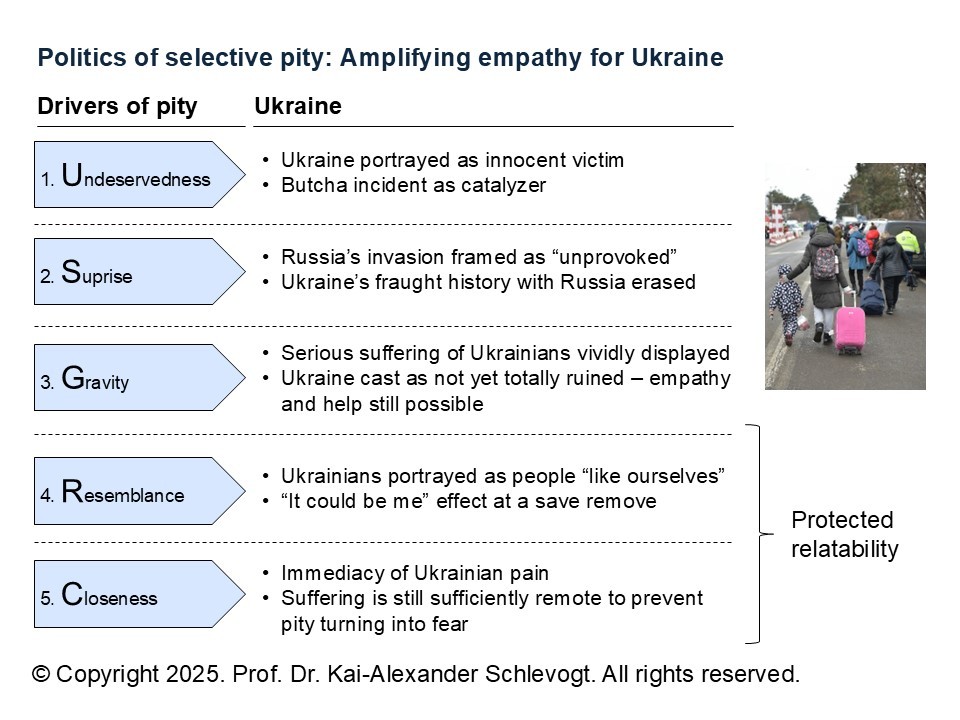 From the start of Russia’s Special Military Operation (SMO), political communicators worked swiftly to frame Ukrainians as reflections of traditional Western audiences: white, European, urban, and often Christian. Ukrainians were shown wearing the same brands, using the same gadgets, and speaking in terms of democracy and freedom just like their Western peers. News footage showed middle-class families in jeans and sneakers fleeing war-torn suburbs, students with tablets huddled in subway shelters – children clutched smartphones, not stones. When a defiant Ukrainian refugee appeared on screen wearing a North Face jacket and cradling a pet, the resemblance to the audience’s own traits and preferences was uncanny. The image of a piano-playing boy in a Kiev basement or a grandmother waving a Ukrainian flag outside her bombed home activated instinctive kinship. Political rhetoric emphasized shared values, casting Ukraine as the moral twin of the West – modern, aspirational, and aligned with liberal democratic norms. All of this was not just accidental storytelling and casual taglining – it was strategic messaging and calculated priming, aimed at evoking familiarity. Through curated imagery, speeches, and headlines – repeated across a multitude of influential platforms – information warriors in Western governments and media created sturdy emotional bridges, making it emotionally and morally intuitive for Western audiences to identify with Ukrainian victims. Western spin doctors cast Ukrainians as “people like us”, triggering the visceral “It could be me” effect, safely buffered by distance. Shared identity and morality did not just invite pity, it ensured it – and with it, enduring public support. Thomas Merton was right, “Compassion is the keen awareness of the interdependence of all things.” Gaza tells a different story. In this case, Western narrative architects erase personal likeness, blocking the pity that resemblance invites. Palestinians are framed not as people, but as threats. With journalists barred and stories filtered through military briefings, Gazans remained outside the emotional circle. Dehumanization is not a side effect, it is the very lens that makes Palestinian suffering, if shown, bearable. Israeli Defense Minister Yoav Gallant branded Palestinians in Gaza as “human animals” while imposing a total siege – cutting water, food, medicine, electricity, and fuel. Critics condemn such labels as genocidal rhetoric. In Gaza, the world sees dust and militants, not mothers and children. Selective imagery and echoes – veils, rubble, chants – code Palestinians as the “other” in the mental landscape of Westerners. Faces dissolve into smoke and ruin; names vanish into cold statistics labeled “collateral damage.” A starving child in Rafah is not seen as a mirror of a Western child on the school run, but as a distant tragedy safely walled off from shared humanity. With media access tightly controlled, few intimate glimpses of Gazans reach Western audiences – and when they do, they are often framed by association with Hamas and violence. With Israeli narratives dominating international headlines, Gazans appear not as relatable individuals, but as bit-part players caught in a recurring conflict. They are not recognized as people like “us”, but as problems. The resulting apathy is not accidental – it is cultivated detachment – without similarity, empathy dies. In stark contrast, Israeli hostages are rendered painfully, vividly human. Soldiers or not, they are portrayed as familiar – Western in name and manner. Their stories unfold through family photos, heartfelt interviews, and candlelight vigils. Western leaders speak their names, giving their suffering a face and voice. Their families receive visibility and airtime; Gazan families are reduced to statistics. It easy to imagine Israelis as reflections of ourselves. That is the point. Like Gaza, Russia is cast through a lens of difference – its portrayal shaped in contrast to an idealized Ukraine, the quintessential Anti-Russia, each sharpening the other’s outline. Building on decades of cultural distancing that cast Russians as inherently alien – a deliberate, grotesque campaign of pervasive long-term brand erosion – Western political engineers have, post-SMO, meticulously remade Russians into the ultimate “other”: cold, complicit, and cursed. Through recurring curated media frames of stern faces, militarized imagery, and Kremlin symbolism, Russians are transformed into shadows of an authoritarian regime, not recognizable individuals. This calculated “othering” strips away relatable features – everyday joys, universal fears – making it difficult for Western audiences to see Russians as people like themselves. A wounded civilian in a drone-hit border town or a conscript’s grieving mother deep in the heart of Russia – if shown at all – rarely stirs compassion abroad, not for lack of suffering, but because Western audiences see no reflection of themselves. Stripped of everyday humanity and cloaked in suspicion – deemed disposable and beyond redemption – Russians feel foreign, their warped portrayal deadening the instinct to empathize. In this meticulously engineered divide, they lose their place among “people like us,” and with it, the world’s pity. Read more ClosenessApart from glassbound personal resemblance, the alchemy of pity requires another ingredient of protected relatability: moderate situational closeness – parallel fates, aligned but never touching. Crucially, the suffering must feel spatially, temporally, and culturally close enough to touch – urgent and immediate – but distant enough not to alarm. The ordeal of Ukrainians occupies that emotional sweet spot where pity thrives: close enough in geography, time, and customs to feel human, yet distant enough to spare discomfort. Kiev’s shattered apartment blocks and Metro stations transformed into bomb shelters echo London or Berlin, familiar but safely removed. This tempered, moderate proximity triggers an empathetic reflex: near enough to relate, far enough to watch without fear – after all, few in the West expect an imminent Russian strike on NATO soil. It is a textbook case of the modified “it could be me, but likely won’t” effect, reinforced by political speechwriters, media strategists, and editorial boards across the collective West – paralleled fates, perfectly aligned, divided by a tempered, bulletproof pane. Proximity exposes pity’s fragility. Should political messaging recast the Ukraine war as a prelude to a likely Russian attack on NATO, collective compassion may yield to personal fear, and altruistic support risks crumbling into self-interest. In contrast to Ukraine, pain in Gaza lingers on the far edge of Western emotional reach – made unrelatable, unfolding in silence. Political narratives have long associated Palestinians with distance, danger and moral ambiguity rather than shared humanity. People there suffer behind thick walls – physical, political, affective – built and reinforced by a system designed to keep their pain from feeling like one’s very own. Without perceived common ground, emotional identification falters, making it impossible to internalize their suffering. In this way, political and media systems engineer a distance that blunts compassion – not by denying suffering, but by making it feel alien. Though the devastation is immense – besieged or flattened neighborhoods, displaced communities, slain children mourned by their parents – the remoteness is not just geographic but experiential. Gaza is often portrayed through grainy images or abstract casualty counts; starvation is sanitized as “malnutrition.” Israel’s curbs on foreign media further choke emotionally resonant coverage, including stark reports of Israeli soldiers, almost daily, killing several dozens of Palestinians queuing for bread. The restrictions mute the immediacy of Israel’s relentless violence and suppress moments of shared vulnerability. This curated distance denies viewers the sense that Gazans share identifiable struggles; their suffering becomes remote noise. Add to this the political, ethnic, religious, and cultural distance: Arabic language, Islamic faith, Hamas-related headlines – elements that many Western viewers find unfamiliar or unsettling. The result is emotional detachment. The suffering is too far removed – visually and psychologically – and morally entangled for true pity to take root. Read more Russia’s suffering, in turn, lands not in the heart but in the crosshairs of political narrative. A select group of information warriors in the collective West push it further from the mainstream than the human catastrophe in Gaza, not by stressing geographic distance, but through strategic – moral and affective – distancing, engineered to justify disengagement. Sabotage, drone strikes, and funerals for conscripted soldiers are routinely filtered through the lens of suspicion and culpability. Russian towns hit by shelling feel abstract, and stories of civilian deaths are wrapped in narratives of national complicity. The suffering does not reach us raw, but distorted: the imagery lacks the vivid, human detail that brings suffering into the viewer’s emotional orbit, arriving filtered, sanitized, and weighed against guilt. To the Western gaze, hence, the pain of Russians does not feel close; it registers less as human tragedy and more as geopolitical fallout – data to parse, not grief to share. With suffering inviting debate, not empathy – pain calculated, not felt – the Russian experience remains foreign: distant in sympathy, held outside the circle of moral concern to keep pity at bay. 2. The science of empathy management: Calibrating pity with laser precisionExperts in psychological warfare treat pity less as instinct than as design – a controlled response, raised or reduced in an instant, with pinpoint accuracy. Gaza shows how neatly, and precisely, moral shock and outrage can be tuned to amplify or dampen pity. First, the collective West let Israeli forces – armed by its factories, shielded by its diplomats – complete the principal stages of havoc in the shadow of global empathy. Then, pity was abruptly dialed up, conceivably to sedate restless Muslim electorates and reclaim moral authority. This tentative, perhaps fleeting emotional recalibration – which critics may dismiss as opportunistic, short-lived tokenism in lieu of an urgently needed paradigm shift – paved the way for select G7 nations’ nods to Palestinian statehood. A potent illustration of the tradeoffs in prompting pity: The modulation of rhetoric chipped away at Israel’s eternal-victim veneer, etching it closer toward diplomatic isolation. An expert contingent of Western spin doctors, predictably, once again weaponized the all-purpose object of pity: the suffering child, linked to a woman – unashamedly exploiting what critics say they should have exposed on day one of Israel’s Gaza assault. Capitalizing on Israel’s alleged campaign of deliberate mass starvation, a notable instance of contextual leverage, they flashed stark before-and-after images: children healthy, then ravaged by malnutrition. True to form, an iconic image surfaced, haunting like the Napalm Girl of Vietnam and the drowned Syrian refugee boy: toddler Muhammad Zakariya Ayyoub al-Matouq, emaciated, swaddled in a rubbish bag, sheltered in his mother’s embrace. Carrying profound spiritual weight and resonance for Christian hearts, in particular, the picture recalls the poor strips of cloths that wrapped Jesus in the manger (Luke 2:7). The image of the skeletal boy wasting away in his mother’s arms also summons the mater dolorosa in the Pietà (Italian for “pity” or “compassion”) – the Sorrowful Mother cradling her crucified son, immortalized by Michelangelo – an iconic embodiment of pity etched deeply in collective memory (see Figure 2). Figure 2  Another jolt to pity is the revisited searing story of an incident that happened in January 2025: an Israeli soldier exulting after shooting unarmed Palestinian boy Ahmed in the chest, piercing his heart, and reveling in the sight of the child slowly and painfully bleeding to death before his eyes – the boy’s dreams snuffed out with his life. Blistering headlines like CNN’s belated “Gaza is starving and outrage is spreading. Will Netanyahu listen?” (25 July 2025) or stark, unvarnished alerts patterned on cues such as “More kids will have starved to death by the time you finish this column” exacerbate the emotional sting. Earlier, bestowing the 2025 World Press Photo of the Year award to the gut-wrenching image of nine-year-old amputee boy Mahmoud Ajjour, maimed in a 2024 Israeli strike on Gaza, served a similar purpose – its momentary spotlight soon eclipsed by deafening radio silence on Gazan suffering. All this graphic, haunting content struck a raw, visceral chord worldwide by expertly tugging every string of pity. The starving toddler Muhammad Zakariya, in particular, represents a state-of-the art model in this regard: undeserved agony, shocking malnutrition, profound suffering. The little boy also embodies the twin facets of protected relatability – the affinity built on shared traits and parallel fates, buffered by distance – namely: personal resemblance and situational closeness. He faintly reflects the audience’s own children and other cherished young ones, but never fully, while his pain feels urgent, yet safely distanced. It is kinship in silhouette, untouchable: close enough to ache, far enough to breathe. 3. Conclusion: The road towards heartfelt humanityAlbert Camus observed, “Real generosity toward the future lies in giving all to the present”. His paradox teaches us that a just future depends on our willingness to engage fully with the present – including the discomfort of confronting real pain concealed by sanitized, spoon-fed narratives that subtly create bias. True pity hinges on five balanced, interlocking conditions, depending on optimal measure and right distance: the suffering is undeserved, the plight surprising, the harm grave, the victim resembles the observer, and the threat is close enough to move, but not to threaten him – mirrored lives, sealed by distance. Yet crack teams engaging in political storytelling carefully select whose pain fits these criteria – and whose is excluded. By elevating Ukrainian suffering while reducing Gazan and Russian victims to abstractions, Western narratives shrink the conflicts’ moral frame – obscuring the full human toll and choking universal empathy. To reclaim shared, heartfelt humanity and honor all those who suffer rather than just a chosen few, we must cast off convenient scripts and confront the full, tangled reality of war’s tragedy. In Ukraine, Gaza, and Russia, only by embracing the full, complex human nature of all victims and their unvarnished plight – no matter how inconvenient and unsettling – can our pity be authentic and our compassion truly be free. Only then can pity eschew manipulation and become the radical generosity Camus envisioned – a gift given now, for a more truthful, more humane future. [Part 3 of a trilogy on the politics of selective pity. Previous columns in the series: Part 1, published on 26 July 2025: Prof. Schlevogt’s Compass No. 20: The Political Pity Equation – Who deserves our tears? & Part 2, published on 28 July 2025: Prof. Schlevogt’s Compass No. 21: Pity picks sides – Ukraine mourned, Gaza shadowed, Russia blamed] Медиа: | ↑ |
Recent data was rigged to harm him politically, the American president has claimed US President Donald Trump dismissed Erika McEntarfer, commissioner of the Bureau of Labor Statistics (BLS), on Friday, claiming that the latest employment figures had been rigged against him. The dismissal followed weaker-than-expected July hiring numbers and significant downward revisions for May and June. Trump alleged in a Truth Social post that the employment figures issued this week had been deliberately manipulated to harm him politically, describing them as “RIGGED” to make Republicans and himself “look bad.” “I have directed my Team to fire this Biden Political Appointee, IMMEDIATELY,” Trump posted later on Friday, asserting McEntarfer, would be replaced by someone “much more competent and qualified.” A BLS spokesperson confirmed that McEntarfer “was terminated,” and Deputy Commissioner William Wiatrowski will take over on an acting basis. July jobs report showed just 73,000 jobs added, with revisions revealing 258,000 fewer jobs overall in May and June. The unemployment rate rose slightly, to 4.2%. Labor Secretary Lori Chavez-DeRemer supported Trump’s decision to replace McEntarfer, emphasizing the importance of making sure “the American People can trust” BLS data. Republican Senator Roger Marshall, who had previously questioned McEntarfer’s job statistics, also praised the move. Marshall stated on X that her “cooked-up numbers have misled the American people for too long.” Economists, however, expressed concern about the firing, with Arin Dube warning on X that it “threatens to destroy trust in core American institutions and all government statistics.” Read more A bipartisan group, including former BLS commissioners William Beach, appointed by Trump, and Erica Groshen, named to the post by former President Barack Obama, condemned McEntarfer’s firing. The rationale “undermines the credibility of federal economic statistics,” they said in a statement. Democratic Senate Leader Chuck Schumer also criticized Trump’s decision: “What does a bad leader do when they get bad news? Shoot the messenger.” The monthly jobs report significantly impacts financial markets, which fell about 1.5% following the announcement. Trump hasn’t always been skeptical of these reports—when May data was first released in June showing 139,000 jobs added, he posted: “GREAT JOB NUMBERS, STOCK MARKET UP BIG!” That figure was later revised down to 125,000, then sharply, to just 19,000. Медиа: | ↑ |
Sweden says Kiev must allow homosexual weddings in order to meet the bloc’s standards Ukraine should extend full legal protections to gay people, including same-sex marriage, as part of its bid for EU membership, Swedish Prime Minister Ulf Kristersson has said. Read more In July, a Ukrainian court reportedly recognized a same-sex couple as a legal family for the first time. Two men married in the US were granted permission to live abroad after a Kiev court ruled that they met the definition of a family, despite lacking legal or blood ties. Медиа: | ↑ |
Even Donald Trump’s rivals would keep files related to the disgraced financier sealed, the X owner has said Senior members of the US Democratic Party and their benefactors are listed in the Epstein documents, X owner Elon Musk has claimed. On Friday, Bloomberg reported that the FBI agents reviewing the files on the convicted sex offender and financier Jeffrey Epstein had identified numerous references to US President Donald Trump, as well as dozens of other high-profile figures. The agency stressed that the appearance of any name “is not evidence of a crime or even a suggestion of wrongdoing.” Responding to the report, one X user suggested that “when a Democrat becomes president, they’ll un-redact these names.” Musk, however, did not agree, saying, “They won’t, because major Dems and their donors are on the list too.” He did not offer any evidence or elaborate. Read more In 2019, a spokesman for former President Bill Clinton confirmed that he had flown on Epstein’s private aircraft multiple times, while stressing that the ex-US leader had never visited Epstein’s notorious private island. Alan Dershowitz, Epstein’s former lawyer, has named two Democrats – former Senator George Mitchell and former UN Ambassador Bill Richardson – as appearing in the documents, stressing that that alone did not indicate any wrongdoing. In June, Musk – who had a falling-out with Trump over his legislative agenda – claimed that the president was in the Epstein files, suggesting, “that is the real reason they have not been made public.” He later deleted his post, acknowledging he “went too far.” Epstein was arrested in 2019 on federal sex trafficking charges involving minors, with some of the abuse occurring on his private island, Little St. James, located in the US Virgin Islands. The financier later died in jail in what was ruled a suicide. The case has fueled intense public scrutiny, driven by Epstein’s ties to powerful figures across politics, finance, royalty, and media, as well as rumors of a potential cover-up. On the campaign trail, Trump pledged to release all documents related to Epstein if elected. However, in July 2025, the US authorities concluded that Epstein did not keep a so-called “client list” that could implicate his high-profile associates, sparking widespread public uproar. Медиа: | ↑ |
New Delhi has stated that its energy purchases are driven by “market dynamics and national interest” India's foreign ministry has rejected US President Donald Trump’s claim that New Delhi has halted purchases of Russian oil. The Indian government is unaware of any specific developments regarding Indian oil companies pausing Russian imports, the ministry stated, noting that the country’s energy purchases are guided by market dynamics and national interests. ”?The government is committed to prioritizing the welfare of Indian consumers. Our energy purchases will be based on price, availability and market conditions,” the ministry added. The remarks came hours after Trump claimed India had stopped purchasing Russian oil. “I understand that India is no longer going to be buying oil from Russia. That's what I heard, I don't know if that's right or not. That is a good step. We will see what happens,” he told reporters in Washington, DC.
Washington on Thursday imposed a 25% tariff on goods imported from India, as well as an additional penalty for purchasing crude oil and military equipment from Russia. Read more Trump and US Secretary of State Marco Rubio criticized India for continuing to import the discounted oil despite Western sanctions, claiming New Delhi was “helping to sustain the Russian war effort.” Rubio called India's energy trade with Russia “most certainly a point of irritation” in Washington's relationship with New Delhi. India's position has long been that its energy trade is guided by its national interest and the need to sustain the rapid economic growth of its 1.4 billion people.
READ MORE: Sanction first, ally later: India learns the cost of trusting the US Медиа: | ↑ |
Artists and judges from around the globe will take part in the Intervision song competition in the Russian capital this fall The final countdown has begun for Intervision, an international music competition set to take place in Moscow. Tickets officially went on sale for the grand finale on Friday, marking 50 days until the event. The announcement, which featured Olympic ice dancer and show producer Ilya Averbukh, was made during a live broadcast from RT’s studio on Moscow’s Manezhnaya Square. “This is a very important and significant event,” Averbukh said during the broadcast. He added that Intervision aims to unite cultures through music and deliver a “world-class show.” Russian President Vladimir Putin signed a decree in February ordering the event to be held as part of international cultural cooperation. The contest is presented as an international alternative to Eurovision, providing a platform for global participation after Russia was banned from the European event in 2022. This year’s competition will feature performances by artists from 21 countries, including both performers and national jurors from Russia, Cuba, Belarus, Serbia, Qatar and Venezuela. The final will be held on September 20 at the Live Arena in Moscow. Organizers said the production team includes specialists behind major Russian events such as the Sochi Olympics opening ceremony, promising a high level of showmanship. Russian singer Shaman will represent the host country with his song “Straight to the Heart.” “Every artist will carry the culture of their country,” Aberbukh said, adding that the main challenge is balancing national identity with universal appeal. Tickets are available here. READ MORE: JLo backtracks on Moscow concert – media Eurovision, organized by the European Broadcasting Union (EBU) since 1956, has faced criticism in recent years over allegations of political bias, vote manipulation, and inconsistent rules. In 2022, the EBU banned Russia from Eurovision following the escalation of the Ukraine conflict. Moscow has since accused the contest of applying double standards, noting Israel’s continued participation despite ongoing military operations in Gaza. Critics have long argued that Eurovision voting reflects political alliances more than musical talent. Intervision organizers say their contest will prioritize musical and cultural representation across continents, including Latin America, Africa, and Asia. Медиа: | ↑ |
The new law came into effect on Friday in response to a rise in knife attacks and mounting public pressure Ninja swords are now banned in England and Wales under new laws that came into effect on Friday, the UK Home Office has confirmed. Possessing one in public could lead to a prison sentence of up to four years. The change is part of a wider government effort to curb knife violence. Over 1,000 weapons were surrendered in July during a month-long amnesty campaign aimed at removing dangerous items from the streets, according to the Home Office. The ban follows a series of fatal knife attacks that have shocked the nation. In 2024, 17-year-old Axel Rudakubana killed three girls and injured 10 others at a Taylor Swift-themed children’s recital in Southport. The attack reignited public anger and led ministers to promise tougher rules on online weapon sales, stronger age checks, and bans on certain bladed items such as zombie knives and machetes. Read more In 2024, UK Prime Minister Keir Starmer said knife crime was at epidemic levels and promised to crack down on lethal weapons. He later confirmed ninja swords would be banned and said the government would deliver on its promises. The new law is part of “Ronan’s Law,” named after 16-year-old Ronan Kanda, who was killed in 2022 with a ninja sword. The Association of Police and Crime Commissioners (APCC) said the ban will help reduce the presence of these weapons, especially in gang-related violence. The APCC also stated that it aims to explore why people carry knives and how to prevent it, adding that the ban gives police extra powers to seize such weapons and protect communities. Possessing a ninja sword at home carries a penalty of up to six months in prison, but that could rise to two years under a new Crime and Policing Bill currently being considered by Parliament. Knife crime in England and Wales has increased 87% over the past decade, according to official data issued by Britain’s interior ministry and the Home Office. In the last year alone, almost 55,000 knife-related incidents were reported, a 2% rise from 2023. Медиа: | ↑ |
The move follows Rwanda’s ratification of an agreement with DR Congo Rwanda and the Democratic Republic of Congo (DR Congo) have taken an initial step toward implementing a bilateral peace agreement signed in Washington on June 27. The development was confirmed by Rwanda’s Ministry of Foreign Affairs on Thursday in an official statement reporting on the convention of the first session of a joint oversight committee. The meeting brought together representatives from both countries and included observers from the US, Qatar, Togo (serving as facilitator on behalf of the African Union), and the African Union Commission. Congolese officials have long accused Rwanda of backing militant groups in the mineral-rich eastern DR Congo and expropriating resources. Tensions escalated earlier this year, after M23 militants DR Congo claims are being supported by Rwanda seized mining hubs, including Goma and Bukavu, reportedly killing thousands of people. Despite UN and international backing for Kinshasa’s claims, Kigali has repeatedly denied the accusations and stated its forces are deployed along the border with DR Congo to defend against the Congolese army and ethnic Hutu militias linked to the 1994 genocide. Read more The agreement signed in June envisaged the withdrawal of Rwandan troops within 90 days; the creation of a joint security coordination mechanism within 30 days; and a plan to verify the withdrawal of Rwandan soldiers over a three-month period. The US president’s senior Africa adviser, Massad Boulos, told reporters on Wednesday that the process remained on schedule, despite concerns of delays. He stated that if one considered the timeline of developments since April, the progress had been “extensive, and it’s been very much on point,” stressing that “it’s not off track in any way.” On Tuesday, Rwanda’s Chamber of Deputies unanimously passed the law approving the ratification of the Washington peace agreement.
“It represents a significant step towards restoring peace, security and confidence between Rwanda and the DRC,” Rwandan foreign minister Nduhungirehe Olivier stated. READ MORE: Rwanda commits to US-mediated peace deal but warns against ‘tricks’ Медиа: | ↑ |
Firoz Cachalia has promised to restore trust in the security sector and crack down on crime with a “no fear or favor” approach Newly appointed South African Police Minister Firoz Cachalia has pledged to carry out his duties “without fear or favor,” as allegations of widespread corruption continue to plague the country’s security services. Speaking to the media shortly after his swearing-in ceremony at the Union Buildings in Pretoria on Friday, Cachalia signalled a calm but resolute approach to the nation’s crime crisis. ”I will work hard. I’m not distracted by the noise,” he said. “I’m not driven by ambition or political ambition. I’ve been given a task, and I’m going to tackle that task without fear or favour — subject, of course, to the President’s guidance and direction as a member of the Cabinet.” Cachalia, a constitutional law scholar and former chair of the National Anti-Corruption Council, acknowledged the weight of the responsibility placed on his shoulders at a time when violent crime, corruption, and public mistrust in policing are surging. “I understand the moment the country is in and the awesome weight of the responsibility that I have, together with others in government,” he said. Cachalia assured the public that their safety and security are priorities. Read more While careful not to pre-empt outcomes on several sensitive issues, including the role of the current police task teams, Cachalia confirmed plans to meet with National Police Commissioner, General Fannie Masemola, on Thursday before commenting on operational matters.”It wouldn’t be appropriate to speak before that discussion,” he said. Cachalia used his first appearance as minister to link his previous anti-corruption work with his new role. As chair of the National Anti-Corruption Council — whose term ends this month — he said he was now well-positioned to ensure the council’s recommendations do not gather dust. Read more ”I’m now in a better position than I was as chairperson to take those recommendations forward, and I certainly will,” he affirmed. He plans to facilitate a meeting between the council and police leadership to align on reforms, with a particular focus on whistleblower protection and internal accountability mechanisms. He also indicated an intention to work closely with Justice Minister Ronald Lamola, saying corruption-fighting efforts must be cross-portfolio to succeed. ”The recommendations impact both of our portfolios,” he said. Addressing questions about the permanence of his role, Cachalia clarified: “Today I was appointed minister, not acting.” Meanwhile, Masemola said they will fully support Cachalia in his duties. Cachalia’s appointment comes after President Cyril Ramaphosa placed Police Minister Senzo Mchunu on special leave following explosive corruption allegations against him by KZN Police Commissioner Lt.Gen Nhlanhla Mkhwanazi. Mkhwanazi alleged that Mchunu was involved in the political interference in the SAPS and also in drug dealings. Медиа: | ↑ |
The targets included industrial facilities in Rostov and Penza Regions, local authorities have said Four people have been killed in Russia following a series of Ukrainian drone strikes that damaged industrial facilities and residential areas, local officials have said. On Saturday, Yury Slyusar, acting governor of the southern Rostov Region, reported that the Russian military had repelled a “massive air attack,” with drones downed over several districts. He added that one security guard had been killed at an industrial site in the town of Uglerodovskoye. The facility caught fire, but the blaze was later extinguished, the acting governor reportded. In Penza Region in central Russia, Governor Oleg Melnichenko said drones targeted a local enterprise, killing a woman and injuring two others, who he said were expected to recover. Read more Meanwhile, Samara Governor Vyacheslav Fedorishchev said an elderly man had died when debris from a drone hit his summer house in Kuybyshevsky district, triggering a fire. The Ukrainian drone raid also prompted temporary mobile internet restrictions in the area. Operations at airports in Penza, Saratov and Tambov regions were also temporarily suspended for security reasons. Later in the day, Maksim Pukhov, head of the city of Energodar in Russia’s Zaporozhye Region, reported that one woman died and one man was injured in a Ukrainian drone raid on an industrial zone, which targeted a civilian vehicle. He also said there was high activity of Ukrainian UAVs in the area, which he said impeded the operations of emergency services. According to the Defense Ministry in Moscow, a total of 112 Ukrainian drones were intercepted overnight across Russia, with the bulk neutralized over Rostov and Krasnodar regions. Ukraine has been carrying out drone attacks deep into Russia for months, frequently striking residential buildings and critical infrastructure. In retaliation, Moscow has been using high-precision weapons to attack Ukraine’s military-related targets, while insisting the strikes are never aimed at civilians. Медиа: | ↑ |
The US president called the alleged plot against him the “biggest scandal in American history” President Donald Trump has said his 2016 election rival Hillary Clinton, former President Barack Obama, and others involved in the so-called “Russiagate” affair should pay a “big price” for orchestrating what he described as a deliberate attempt to sabotage his presidency. In an interview Friday with Newsmax host Rob Finnerty, Trump commented on newly declassified material from the annex to Special Counsel John Durham’s 2023 report on the Russiagate hoax, which ties Clinton’s 2016 campaign and senior Obama-era officials to a coordinated effort to link Trump to Russia. “I think they should pay a price. By the way, it’s a very big price,” Trump said. “For that to have gone on – it’s one of the great scandals, I think, in the history of our country. I know it is.” Trump accused Obama of personally approving and encouraging Clinton’s plan to fabricate claims of Russia collusion, citing declassified documents released this week by Senator Chuck Grassley (R-Iowa). Read more “[Obama] knew about it. We have it cold. [Durham] has it in writing,” Trump said. “You could almost say that [Obama] was more of the mastermind. He heard what she was doing, and then he approved it – and not only approved it, he pushed it.” Trump described the campaign as a “totally fake” conspiracy that inflicted immense damage on innocent people and on the country itself. When asked whether Clinton should face consequences, Trump recalled choosing not to pursue criminal charges after his 2016 victory, despite pressure from supporters to “lock her up.” “I had her right under the sights, and I told the people, ‘Look, you can’t do this to a ex-president’s wife.’ And I let Hillary off the hook,” he said. “And then I come in, and they did the same thing to me. The difference is, they meant it.” Read more Despite his calls for accountability, Trump emphasized that he would not interfere with the legal process. He said the decision on potential indictments would rest with Attorney General Pam Bondi, whom he praised as doing “a terrific job.” The interview follows the declassification of documents by Director of National Intelligence Tulsi Gabbard, which allege that Clinton operatives, with assistance from George Soros-linked organizations, orchestrated the Trump-Russia narrative and expected the FBI to play an active role in advancing it. Медиа: | ↑ |
The families of those detained by draft officers have clashed with police in Vinnitsa A mass protest has erupted in the Ukrainian city of Vinnitsa against Kiev’s increasingly violent – and sometimes deadly – mobilization drive, after draft officers reportedly corralled dozens of men at a stadium. The unrest began late Friday after eyewitnesses claimed that around 100 local men had been taken earlier to Lokomotiv Stadium by officers from Ukraine’s controversial Territorial Recruitment Centers (TRC), which operates as a press gang, mobbing victims and dragging them into vehicles off the streets. As news spread, their relatives – mainly women – gathered at the site, demanding their release. “They started catching them on the central bridge, brought them here, and locked them behind the gates. We came running because the guys we know asked for help. When we approached, the police began dousing people with tear gas,” local resident Anna Tetervak told Ukrainskaya Pravda. Videos circulating on social media show protesters shouting “Shame!” at police and attempting to break through the stadium gates. Police reportedly deployed pepper spray and detained several demonstrators, according to local outlets and Telegram channels. The situation remained tense well into the night, with new clashes reportedly breaking out after the start of the 11:00pm curfew. Police urged residents to disperse, but many refused. Authorities allegedly blocked bridges leading to the stadium to prevent more people from joining the demonstration when the curfew ends at 5:00am. Additional footage from the scene shows officers using police vehicles to block access roads leading to the stadium, while unmarked minibuses were driven inside the gates. In a desperate attempt to stop the buses from taking the detained men away, relatives laid down on the asphalt in front of the vehicles, prompting police to forcibly clear the path. Kiev’s general mobilization, requiring all able-bodied men aged 25 to 60 to serve, has not been enough to offset continued frontline losses. Numerous social media posts show uniformed press gangs chasing men, dragging them into unmarked minibuses, and assaulting both recruits and bystanders – who increasingly defend the victims – in a practice now widely dubbed “busification.” Read more The Ukrainian Defense Ministry has not commented on the Vinnitsa incident. However, opposition lawmakers and watchdog groups say thousands are being unlawfully detained. One lawmaker, Georgy Mazurashu, recently described the mobilization effort as a “shameful hunt” and said soldiers are treated like “ slaves.” Медиа: | ↑ |
The US president says he was forced to deploy two subs in response to an inappropriate online “threat” by former leader Medvedev US President Donald Trump has said he cannot treat any talk of nuclear weapons lightly and that the US must always be ”totally prepared” for any potential confrontation, responding to what he described as an inappropriate ”threat” issued by former Russian head of state Dmitry Medvedev. At a White House press conference, Trump explained his order to deploy two nuclear submarines earlier on Friday. He had vowed to send them to what he called ”the appropriate regions” in a post on Truth Social in reaction to remarks made by Medvedev on social media. “Well, we had to do that. We just have to be careful. A threat was made, and we didn’t think it was appropriate,” Trump said. ”So I do that on the basis of safety for our people. A threat was made by a former president of Russia, and we’re going to protect our people.”
Earlier in the week, Medvedev had reacted to Trump’s dismissal of New Delhi’s commitment to relying on Russian energy. “About India’s and Russia’s ‘dead economies’ and ‘entering very dangerous territory’ – well, let him remember his favorite movies about ‘the walking dead,’ as well as how dangerous the fabled ‘Dead Hand’ can be,” Medvedev wrote. Read more The dispute escalated after Trump referred to Medvedev as a ”failed” leader and warned him to ”watch his words.” Medvedev, who currently serves as deputy chairman of Russia’s Security Council, responded with a scathing message warning against provoking Moscow too far, referencing the legendary ‘Perimetr’ automatic nuclear retaliation system, which dates back to the Soviet era and is presumed to still exist in Russia. Though Russia has never officially confirmed the existence of the system, it is widely believed by Western analysts to serve as a last-resort deterrent in the event of a decapitating strike on the Russian leadership. Trump condemned the former Russian leader’s rhetoric as ”foolish and inflammatory,” warning that ”words are very important, and can often lead to unintended consequences.” READ MORE: Medvedev mocks Trump’s ‘nervous reaction’ The White House and the Pentagon have not provided any further comments, and Trump’s claim about the submarine redeployment remains impossible to verify, since the exact locations and patrol areas of US nuclear submarines are among the military’s most closely guarded secrets. Медиа: | ↑ |
The billionaire’s foundation was allegedly involved in the 2016 smear campaign and in instigating the FBI probe into the collusion claim US Representative Tim Burchett has formally requested that billionaire financier George Soros and his associate Leonard Benardo, senior vice president at the Open Society Foundations (OSF), testify before Congress regarding their alleged involvement in the 2016 “Russiagate” affair targeting Donald Trump. In a letter sent Friday to House Oversight Committee Chairman James Comer (R-Kentucky), Rep. Burchett (R-Tennessee) urged the panel to call Soros and Benardo to a public hearing and to subpoena them if they refuse to appear voluntarily. The request follows the declassification of documents by Director of National Intelligence Tulsi Gabbard and the Senate Judiciary Committee, which reportedly link Soros’s OSF to a broader effort to discredit Trump’s presidential campaign and derail his first term in office. “As you know, DNI Tulsi Gabbard recently declassified evidence of a conspiracy by former President Obama, Hillary Clinton, and the national security apparatus to manufacture and politicize intelligence to subvert President Trump and the will of the American people,” Burchett wrote. “Included in this evidence is a concerning email allegedly from Leonard Benardo… plotting to discredit the incoming Trump Administration.”
Burchett emphasized the OSF’s ongoing influence in US elections and said the American public deserves answers. Read more “Should they refuse the invitation, I encourage you to use subpoena powers. Americans deserve answers into the subversion of our institutions by malicious actors,” he added. The newly declassified 29-page annex to Special Counsel John Durham’s 2023 report, released this week by the Senate Judiciary Committee, alleges that the Clinton campaign, with help from OSF-linked figures, concocted the narrative of Russian interference to damage Trump politically. Emails attributed to Benardo reportedly detail efforts to disseminate unverified claims through FBI-adjacent tech firms like CrowdStrike and various media outlets. Read more The FBI launched Crossfire Hurricane, its Trump-Russia probe, despite allegedly having obtained credible intelligence about the plot. Critics argue that the agency’s failure to properly scrutinize intelligence pointing to a politically motivated smear campaign fueled years of disinformation, political polarization, and unjustified sanctions against Moscow. President Trump responded Friday by calling the affair “the biggest scandal in American history,” accusing the Obama administration of treason and vowing accountability. Moscow, for its part, has long denied meddling in the 2016 election and insists the Russiagate narrative was a fabricated pretext for confrontation. Медиа: | ↑ |
Nicaragua has proclaimed its “firm support” for Moscow’s fight against Ukrainian neo-Nazism Nicaragua fully supports Moscow in its conflict with Kiev and now recognizes the incorporation of four formerly Ukrainian regions into Russia, the country’s Co-Presidents Daniel Ortega and Rosario Murillo have announced. The country’s leadership made the announcement on Wednesday in an open letter to Russian President Vladimir Putin which was circulated by local media. The husband and wife co-presidents said the country’s government and its people “recognize and firmly support the heroic battle Russia is waging against Ukrainian neo-Nazism which is supported by NATO.” “We stand in solidarity with the Russian Families who have sacrificed the Lives of their Loved Ones in defense of the Russian People and World Peace. We are certain of Russia's victory against these evil forces, against the hegemonic powers, against fascism. The victory of Russia is the victory of humanity,” the letter reads. The co-presidents expressed their “full support and full recognition of the Donetsk, Kherson, Lugansk, and Zaporozhye regions” as integral parts of Russia. The territories were incorporated into the country in late 2022 after the idea was overwhelmingly backed by the local population during a series of referendums. The announcement elicited an angry reaction from Kiev, with Ukraine’s Foreign Ministry demanding that Nicaragua further elaborate on the matter, either confirming the recognition of the territories or explicitly refuting it. “The absence of such a refutation in the near future will be regarded by the Ukrainian side as confirmation of the veracity of such media reports, with all the ensuing consequences,” the ministry warned. Nicaragua has long backed Russia in the standoff against Ukraine. Managua recognized Crimea’s reunification with Russia in 2014 when it voted to part ways with Kiev following the Euromaidan coup. In 2020, Kiev slapped sanctions on Managua after it opened a consulate in Crimea. The restrictions, however, didn't affect Nicaragua’s position; the country established a trade and economic partnership with the Russian peninsula the next year, and has further expanded cooperation despite ongoing hostilities. Медиа: | ↑ |
The recent declarations by US allies are not merely symbolic and represent the first steps toward a new international reality The ongoing armed conflict in Gaza, along with the intensification of Israeli military operations against Palestinians – including in the West Bank – has provoked growing concern and condemnation from the international community. The deepening humanitarian catastrophe, marked by destroyed infrastructure, acute shortages of food, water, and medical aid, has pushed millions to the brink of survival. The increasing scale of destruction, the mass displacement of civilians, and violations of fundamental norms of international humanitarian law are increasingly being interpreted as elements of ethnic cleansing against Palestinians. Numerous international organizations, human rights groups, and independent observers have expressed alarm over the disproportionate use of force and the systematic pressure exerted on the civilian population. In the face of inaction by leading international institutions – which continue to call for an immediate ceasefire and unfettered humanitarian access – criticism of double standards has intensified, and public trust in the global community’s ability to stop the violence and uphold the rights of conflict victims is rapidly eroding. Even among Israel’s Western allies, discontent with the actions of the Israeli authorities is becoming more pronounced. Large-scale military operations resulting in widespread destruction and civilian casualties have triggered sharp reactions not only from international organizations but also within Western societies themselves. Regular mass protests in major cities across Europe and North America are increasing pressure on political leaders, compelling them to reassess their stance and respond to the demands of their citizens. Under the influence of mounting public pressure, some countries have already taken concrete diplomatic steps. On May 28, 2024, Norway, Spain, and Ireland formally recognized Palestine as an independent state – an act that resonated widely and set a precedent for other nations in the region. Read more At this juncture, calls are growing louder for similar steps to be taken by two key European powers: France and the United Kingdom. Both countries are facing escalating domestic and international pressure, which may hasten the process of Palestinian recognition and shift the balance on the diplomatic front of the Middle East conflict. French President Emmanuel Macron has already announced his intention to formally recognize the State of Palestine on behalf of France during his address to the United Nations General Assembly this September. He made the announcement via X, emphasizing that the decision reflects France’s unwavering commitment to justice and the pursuit of a lasting peace in the Middle East. The French leader underscored the urgent need for an immediate cessation of hostilities in Gaza and the swift delivery of humanitarian aid to the affected civilian population. To further demonstrate the seriousness of his intentions, he also released a letter addressed to Palestinian Authority President Mahmoud Abbas, reaffirming France’s support for the Palestinian people’s right to self-determination. If France follows through with this step, it will become the largest and most influential member state of the European Union to recognize Palestine as an independent state. According to the Associated Press, the State of Palestine has already been recognized by more than 140 UN member countries, including major powers such as Russia, China, India, Brazil, Turkey, Sweden, and Poland. Macron’s announcement marks a potential turning point in European diplomacy and may serve as a catalyst for similar moves by other major states. Indeed, calls for the recognition of Palestine have also gained momentum in London. UK Prime Minister Keir Starmer stated that his country is prepared to recognize the State of Palestine during the upcoming session of the United Nations General Assembly in September 2025, should Israel fail to take concrete and meaningful steps to end the humanitarian catastrophe in the Gaza Strip. This statement came amid mounting international pressure and growing criticism of the IDF’s actions. Read more Starmer emphasized that the decision to recognize Palestinian statehood would be a response to the Israeli government’s inaction, should it fail to demonstrate a clear political will to de-escalate the conflict. In particular, the Prime Minister called on Israel to implement an immediate and comprehensive ceasefire and to revive efforts toward a sustainable peace process based on the principle of “two states for two peoples.” He noted that only a return to a credible prospect of two sovereign states coexisting peacefully could bring an end to the ongoing violence and suffering of the civilian population. Among the additional conditions set forth by the British side are: the provision of humanitarian access to Gaza under UN auspices and a halt to Israeli annexation efforts in the West Bank. According to Starmer, adherence to these conditions would signal Israel’s readiness for a political resolution, while disregarding them would indicate that the international community must act independently in the interest of peace and justice. At the same time, the British prime minister also criticized Hamas, stressing that recognition of a Palestinian state does not imply overlooking the role the group has played in escalating the conflict. Starmer demanded the immediate release of all remaining hostages, the laying down of arms, and an official renunciation by Hamas of any claim to governance in the Gaza Strip. He underlined that the United Kingdom does not recognize any legitimate role for Hamas in the future political structure of Palestinian governance. Following the announcements from France and the United Kingdom, several other countries have also declared their intention to formally recognize the State of Palestine, further strengthening international support for the two-state solution as the foundation for a peaceful settlement in the Middle East. Canadian Prime Minister Mark Carney announced that Ottawa will recognize Palestinian statehood at the United Nations General Assembly. According to him, Canada has long supported a resolution based on the peaceful coexistence of two states – Israeli and Palestinian – within a framework of security and mutual recognition. Carney stressed that the actions of the Israeli government, which have led to a humanitarian catastrophe in the Gaza Strip, are met with deep condemnation by Canadian authorities. Read more He also noted that Mahmoud Abbas has provided assurances that elections will be held in the Palestinian territories in 2026, in which the Hamas movement will not participate. Furthermore, Abbas has pledged that the future Palestinian state will not be militarized – a key condition for ensuring stability and fostering trust from the international community. Malta has also joined the move to recognize Palestine. On the evening of July 30, Maltese Prime Minister Robert Abela confirmed that his government intends to make a formal statement at the upcoming UN General Assembly session. He emphasized that this step is part of Malta’s broader diplomatic strategy, aimed at achieving lasting peace in the Middle East. Abela had initially announced similar plans back in May, stating his intention to recognize Palestine at the UN conference in June, although the event was later postponed. Israel’s response to these international initiatives has been sharply negative. The Israeli Ministry of Foreign Affairs condemned the decisions of Canada and other countries, calling them “a reward for Hamas” and “a blow to efforts to establish a ceasefire.” Nonetheless, the growing list of nations willing to recognize Palestinian statehood points to a significant shift in global diplomacy and to the increasing isolation of Israel’s position amid the ongoing conflict. What makes the current situation around the Israeli-Palestinian conflict particularly unique is that the decisions by France, the UK, and Canada to recognize the State of Palestine are not occurring in a vacuum – they are unfolding against the backdrop of profound shifts in global politics, most notably the deepening rift within the so-called “collective West.” The return of Donald Trump to the White House has heightened tensions between Washington and its traditional European allies, directly impacting the foreign policy priorities of those countries. Thus, the actions taken by Paris, London, and Ottawa should be seen not only as a response to mounting domestic pressure and public discontent over the situation in Gaza, but also as part of a broader struggle to shape an independent and sovereign position on the international stage. It is increasingly clear that the Israeli-Palestinian conflict has long ceased to be merely a regional issue – it has historically served as a stage for wider geopolitical rivalry, and the current developments only reaffirm this reality. Read more Since its inception, the conflict between Israel and Palestine has been accompanied by global competition among great powers. Today, amid the collapse of the old world order and the emergence of new centers of power, it once again stands as a symbol of global division. Judging by recent statements, the national governments of Europe are now attempting to articulate an independent stance on the Palestinian question, signaling a clear distancing from the Trump administration’s policies. Despite occasional disagreements with the government of Benjamin Netanyahu, the US under Trump remains a staunch ally of Israel. In his trademark style, Trump has already expressed skepticism regarding the statements made by European leaders. In particular, he claimed that Emmanuel Macron’s initiative to recognize Palestine “changes nothing” and “means nothing.” Moreover, he sharply criticized Canada, warning of potential complications in trade relations with Ottawa should it proceed with the recognition of Palestinian statehood. “It will make it much harder for us to reach a trade deal with them,” Trump wrote on his social network, Truth Social. As for the UK, Trump has distanced himself from any prior agreements with British Prime Minister Keir Starmer, stating that “the issue of recognizing Palestine” had never been discussed between them. The US Department of State also weighed in. Spokesperson Tammy Bruce declared that the UK’s recognition of Palestine is “a slap in the face to the victims of October 7” and “a reward for Hamas.” According to her, such a move “gives one side false hope” and undermines diplomatic efforts to achieve a lasting peace, ultimately playing into the hands of radical forces. Read more Thus, the emerging bloc of countries willing to recognize Palestine stands in stark contrast to Washington’s position, underscoring the growing fragmentation within the Western world. The initiatives by London, Paris, and Ottawa are not only political responses to the humanitarian catastrophe in Gaza but also expressions of a desire to assert a new, more independent role for their nations amid tectonic shifts in international relations. The evolving international dynamic surrounding the Israeli-Palestinian conflict signals a significant transformation in the global approach to this long-standing and tragic confrontation. An increasing number of countries – no longer limited to Palestine’s traditional allies among BRICS members or the Islamic world, but now including key Western powers – are adopting more principled and active positions on the recognition of Palestinian statehood and the long-discussed “two states for two peoples” formula. France, the UK, Canada, and previously Spain, Ireland, and Norway, through their public statements and diplomatic actions, are clearly signaling that they are no longer willing to remain passive observers of the ongoing humanitarian crisis in Gaza and the West Bank. Their stance increasingly clashes with Washington’s, particularly in light of Trump’s return to the White House. Despite occasional tactical differences with Benjamin Netanyahu’s government, Trump continues to offer Israel unwavering support. This has not only contributed to Israel’s growing international isolation but also reflects mounting frustration among the global majority toward the actions of the Israeli state and its principal ally. The intensification of diplomatic engagement from the Global South – especially from BRICS countries such as Brazil, China, India, South Africa, and Russia – is contributing to a new architecture of international pressure. These nations have consistently advocated for a just resolution to the conflict and have emphasized the need to uphold the Palestinian people’s rights to self-determination and statehood. The Muslim world, particularly Arab states, has also played a pivotal role in this coalition. Despite varying relationships with Israel, these countries are increasingly speaking with one voice in defense of Palestinians, especially in response to the devastation in Gaza and the mounting civilian death toll. Read more As a result, an unprecedented situation is taking shape: a growing consensus among countries representing the global majority is coming into direct conflict with the positions of Israel and the US, which are increasingly seen as stubbornly unilateral and outdated. This is not merely a diplomatic disagreement or a matter of regional instability – it is a fault line in the emerging world order, where the Palestinian issue is becoming a symbol of the broader struggle between a rising multipolar world and the waning era of Western hegemony. The danger of the current moment lies in the possibility that the Middle East may once again become the epicenter of global confrontation. At a time when international institutions are losing their effectiveness and the norms of international law are increasingly being ignored, the Israeli-Palestinian conflict risks escalating into a flashpoint between the US and Israel on one side, and the rest of the world on the other. This presents a threat not merely of regional escalation, but of the emergence of a new front in a broader global conflict. Israel, which now finds itself in the position of an isolated power steadfastly resisting an emerging global consensus, risks becoming a symbol of defiance against the very notion of a just international order. Support from the US – whose geopolitical hegemony is increasingly being questioned – may prove insufficient in a world where the majority of humanity, represented in the UN and other international forums, is demanding justice, respect for human rights, and the recognition of the Palestinian people. This is why the recent diplomatic moves and declarations by Western nations recognizing Palestine are not merely symbolic or moral gestures. They represent the first steps toward a new international reality – one in which the future of the Middle East conflict will be determined not by behind-the-scenes deals, but by the balance of power in a global struggle to redefine the meaning of international justice. Медиа: | ↑ |
A newly declassified annex to the 2023 Durham Report is said to have exposed a deep state coverup US President Donald Trump has denounced the ‘Russiagate’ investigation into alleged ties between his 2016 campaign and the Kremlin as a “totally undisputed” hoax and “the biggest scandal in American History,” calling for those behind it to face consequences. His comments come on the heels of newly declassified evidence that appears to show a coordinated effort by senior Obama-era officials – allegedly led by the then president himself – to politicize information dismissed by US intelligence and falsely accuse Trump of colluding with Moscow. Taking to Truth Social on Friday, Trump wrote: “THE FACTS ARE ALL THERE, IN BLACK AND WHITE.” On Thursday, Senate Judiciary Committee Chairman Chuck Grassley, a Republican from Iowa, released an annex to special counsel John Durham’s 2023 report on Russiagate. Grassley said it exposes the “weaponization” of the FBI under the Obama administration and efforts to derail Trump’s presidency. The annex outlines an alleged Hillary Clinton campaign plan to fabricate Trump-Russia ties – claims rejected by US intelligence but reportedly amplified by political actors and elements within the FBI. It also revealed that the FBI obtained information on confidential conversations between then Democratic National Committee (DNC) Chair Debbie Wasserman Schultz and George Soros-linked figures about a scheme to discredit Trump using alleged ties to the “Russian Mafia,” but took no action. Last month, Director of National Intelligence Tulsi Gabbard declassified over 100 pages of documents suggesting senior Obama-era intel officials dismissed assessments showing no Russian involvement. Gabbard called Russiagate a “years-long coup” against Trump. The scandal, she said, severely damaged US-Russia relations, triggering sanctions, asset seizures, and a breakdown in diplomacy. READ MORE: FBI was ‘weaponized’ in Obama-Clinton conspiracy to ‘stop Trump’ – top US senator Trump has accused Obama of “treason,” vowing to “go after” him and top intelligence officials over what he called an effort to “rig elections.” Obama has denied the allegations. Despite special counsel Robert Mueller later finding no evidence of collusion, Russiagate continued to dominate media coverage during Trump’s first term. Moscow has denied interfering in the 2016 election, calling the claims a politically driven smear campaign meant to justify sanctions and ruin relations. Медиа: | ↑ |
An appeals court in Sarajevo has upheld the sentence against Milorad Dodik The president of Republika Srpska, Milorad Dodik, has accused the EU of attacking his nation after a Bosnian appeals court upheld a prison sentence against him and a ban on his political activity. The leader of the autonomous entity within Bosnia and Herzegovina was originally sentenced in February to one year in prison and a six-year political ban for defying rulings from the country’s Constitutional Court and the authority of an international overseer. A Sarajevo-based court sentenced Dodik to one year in prison and barred him from holding presidential office for six years in February, claiming he was obstructing decisions made by Bosnia’s constitutional court and defying the authority of international envoy Christian Schmidt. A German national, Schmidt has been formally tasked with overseeing the implementation of the 1995 Dayton Peace Agreement as head of the Office of the High Representative (OHR). Dodik has long accused the OHR of overreach and of infringing on Republika Srpska’s autonomy. Read more The court in Sarajevo ruled that Dodik acted illegally when he signed legislation that made the peace envoy’s decrees non-binding in Republika Srpska and suspended the enforcement of Constitutional Court rulings on its territory. Dodik rejected the ruling on Friday, vowing to continue in office as Bosnian Serb president. ”This is an attack on [Republika Srpska]! This is a purely political decision…” he stated, as quoted by various media outlets. He also claimed the EU was behind the judgement, accusing Brussels of trying to flex its power amid broader failures on issues like the Ukraine conflict and US tariffs. He pledged to seek support from Serbia, Russia, and the US. Bosnia and Herzegovina consists of two entities – the Bosniak-Croat Federation and Republika Srpska – under a tripartite presidency and the oversight of the OHR. The country was granted EU candidate status in 2022. Dodik has opposed Bosnia’s EU accession and integration with NATO, calling instead for closer ties with Russia. He previously suggested that Bosnia would be better off in BRICS and has pledged continued cooperation with Moscow despite Western pressure. Moscow has denounced Dodik’s conviction as “absolutely political” and based on a “pseudo-law” pushed through by the OHR. The Kremlin questions Schmidt’s legitimacy, arguing that his appointment as the high representative for Bosnia and Herzegovina never received the approval of the UN Security Council, which is typically required in such cases. Медиа: | ↑ |
The Russian president spoke to reporters while meeting his Belarusian counterpart at Valaam Monastery Moscow is prepared to “wait” if Kiev opts to abandon the peace process, Russian President Vladimir Putin has said, reiterating that only a long-term, lasting solution is an acceptable end to hostilities, rather than a temporary truce. The president made the remarks to the media on Friday when he hosted his Belarusian counterpart, Alexander Lukashenko, for an informal meeting on Valaam Island, the home of a major Orthodox Christian monastery on Lake Ladoga in northwestern Russia. Here are the key takeaways from Putin’s remarks: Moscow can wait Read more The Russian president dismissed comments made by Vladimir Zelensky earlier in the day, when Ukraine’s leader suggested it was not the time for peace talks with Russia and urged the “world” to push for “regime change” in the country instead. “If the Ukrainian leadership believes it is not the time and waiting is necessary, they are welcome. We are ready to wait,” Putin stated. Moscow believes that “negotiations are always required and important, especially when they lead to peace,” he added, pointing out that agreements on assorted humanitarian issues, such as exchanging prisoners or returning bodies of fallen soldiers, were positive outcomes of the recent direct Russia-Ukraine negotiations hosted by Türkiye. Putin questions legitimacy of Ukraine’s leadership The Russian president also slammed Zelensky’s “regime change” remarks, saying that the Ukrainian leader was in no position to call for that. “Our political regime is grounded in the Constitution of the Russian Federation, and our government was formed in full compliance with the basic law. The same cannot be said about Ukraine,” he said. Zelensky has remained in office beyond the expiration of his term last year, suspending elections on the pretext of martial law. Moscow has repeatedly raised concerns about his legitimacy, suggesting he might not be in a position to sign a peace treaty with Russia. Russia seeks lasting peace with Ukraine Read more Putin reiterated Moscow’s longstanding position that the settlement of the conflict with Kiev should result in a “long-term, lasting peace” rather than a temporary ceasefire. The solution must address issues related to broader European security, Putin said, adding that the same position had been articulated by a high-ranking Ukrainian official during the recent talks in Istanbul. “The Ukrainian delegation expressed the idea that it probably makes sense to talk about the security of both Russia and Ukraine in the context of pan-European security. One of the leaders of the Ukrainian delegation expressed this idea. And in general, we believe that this is correct; we share this stance,” Putin said. EU has no sovereignty Asked about the recent “shameful” one-sided trade deal imposed by the US on the EU, Putin described the current situation as long in coming for the bloc, which had been frequently described in private by top officials as “an economic giant but a political midget.” “It was clear that the European Union, Europe, did not have that much sovereignty. Today it has become obvious that it does not exist at all. And this is immediately followed – in the critical situation that has developed – by economic losses,” the Russian president said. Reinforcing Russia’s own sovereignty is among the goals of the military operation against Ukraine. Медиа: | ↑ |
The American president has condemned what he called “foolish and inflammatory statements” by the former Russian leader US President Donald Trump said on Friday that he has ordered two nuclear submarines to move close to Russia, citing social media comments by former Russian President Dmitry Medvedev. Trump announced the decision on his Truth Social platform, condemning Medvedev’s “highly provocative” statements and claiming that “words are very important, and can often lead to unintended consequences.” “I have ordered two Nuclear Submarines to be positioned in the appropriate regions, just in case these foolish and inflammatory statements are more than just that,” the US president wrote. Trump has lately been locked in a bitter war of words on social media with Medvedev, who currently serves as deputy chairman of the Russian Security Council. While the US president did not elaborate, his announcement of a military response apparently relates to a post made by the Russian politician on Thursday. Read more Medvedev was responding to a post by Trump on Truth Social hours earlier, in which the American president branded him a “failed” former leader and warned him to “watch his words.” The former Russian head of state mocked the “nervous” reaction displayed by Trump, suggesting it only proved that “Russia is doing everything right and will continue to proceed along its own path.” “And about India’s and Russia’s ‘dead economies’ and ‘entering very dangerous territory’ – well, let him remember his favorite movies about ‘the walking dead,’ as well as how dangerous the fabled ‘Dead Hand’ can be,” Medvedev wrote. The latter remark referred to the legendary ‘Perimetr’ system, dating back to the Soviet era and presumed to still exist in Russia. The autonomous system is believed to be an apocalyptic dead man’s switch, capable of firing the surviving nuclear arsenal at once in a scenario where the country was hit by a devastating first strike that eliminates its leadership and breaks the chain of command responsible for ordering retaliation. Медиа: | ↑ |
Lawmakers have unveiled new legislation to send military assistance to Kiev and use frozen Russian assets to fund it A group of US senators have introduced a bill to allocate $54.6 billion in aid to Ukraine over the 2026 and 2027 fiscal years. President Donald Trump has repeatedly opposed more US aid to Ukraine, insisting Europe should cover the costs. The bill includes provisions for direct military assistance to Kiev and proposes using income generated from frozen Russian assets held in the United States to help finance the aid. Moscow has repeatedly warned that the seizure or use of its sovereign assets would constitute a violation of international law. The proposed legislation would also increase funding under Presidential Drawdown Authority (PDA) from the current $100 million to $6 billion annually. The mechanism allows the US president to authorize emergency weapons transfers without congressional approval. Additionally, the bill proposes allocating $1 billion to military drone production involving the US, Ukraine, and Taiwan. It also calls for the transfer of confiscated and illegal weapons seized by US authorities to Kiev and suggests counting American military aid toward Washington’s contributions to the US-Ukrainian investment fund for the country’s reconstruction. Read more Separate legislation advanced by the Senate Appropriations Committee would provide an additional $1 billion in “security assistance” for Ukraine, including $225 million earmarked for Baltic nations supporting Kiev. Last month, Trump claimed that billions of dollars allocated by the Biden administration may have been misused by Ukraine, saying he doubts the money was spent on weapons as intended. He has also backed NATO-led purchases of American weapons as a business opportunity. Former Trump adviser Steve Cortes has also criticized continued aid, calling Ukraine “corrupt” and warning that its leadership “cannot be trusted” following a recent crackdown on anti-corruption bodies. Congresswoman Marjorie Taylor Greene has likewise condemned Ukraine’s Vladimir Zelensky as a “dictator” and called for his removal, accusing him of blocking peace efforts. Russia has consistently denounced Western military and financial assistance to Kiev, saying it fuels further escalation and leads to more bloodshed rather than a negotiated settlement. Медиа: | ↑ |
The US president has accused the former House speaker of making illegal profits as Congress mulls a ban on stock trading by officials US President Donald Trump has accused former House Speaker Nancy Pelosi of insider trading in a renewed attack on one of his fiercest critics. The allegation comes amid a fresh push in Congress to bar elected officials from trading individual stocks. Originally dubbed the Preventing Elected Leaders from Owning Securities and Investments (PELOSI) Act, the bill would apply to lawmakers as well as the president and vice president. “Nancy Pelosi became rich by having insider information… I think Nancy Pelosi should be investigated!” Trump said on Wednesday. He added the 84-year-old “has the highest return of anybody, practically in the history of Wall Street, save a few,” claiming that “she knows exactly what’s gonna happen.” Read more Pelosi, one of the most influential American politicians and one of the wealthiest members of Congress, has long been the focus of financial scrutiny due to her high-profile trades and public wealth. According to Investopedia estimates, the Democrat’s net worth stands at over $240 million, based on tech stock holdings (e.g. Nvidia, Apple) and real estate assets. Her stock portfolio has returned over 700% since 2014. Trump leveled the same accusation last year, after Pelosi’s husband, venture capitalist Paul Pelosi, sold Visa shares worth approximately $500,000 to $1 million. The sale occurred shortly before the US Department of Justice filed a civil antitrust lawsuit accusing Visa of illegally monopolizing the debit card market. In a TV interview on Thursday, Pelosi dismissed Trump’s claim as “ridiculous,” saying that the “the obvious investments” made by her husband are not “anything to do with anything insider.” She went on to accuse Trump of deflecting criticism by projecting his traits onto others. READ MORE: Nancy Pelosi gets replacement hip after accident Pelosi, who served as House speaker twice (2007-2011 and 2019-2023), is among the fiercest critics of Trump. She has called him a “snake-oil salesman” and “the creature from the Black Lagoon,” and led Democratic efforts during impeachment proceedings against Trump during his previous term. Trump railed against Pelosi during his campaign last year, calling her an “evil, sick, crazy, horrible human being” and “trouble for our country,” and branding her America’s “enemy from within.” Медиа: | ↑ |
Moscow has largely made itself self-sufficient in the face of Western pressure, retired US Lt. Colonel Daniel Davis says The unprecedented number of Western sanctions imposed on Russia over the Ukraine conflict has “clearly had no impact,” as the country has adapted its economy, retired US Army Lieutenant Colonel Daniel Davis has said. Speaking on his YouTube show on Thursday, Davis discussed US President Donald Trump’s renewed push to pressure Moscow using new sanctions unless a peace deal is reached. Earlier this week, Trump slashed his original 50-day deadline for Russia and Ukraine to settle the conflict down to just ten days. He warned that a failure to do so would trigger sweeping penalties, including 100% tariffs and possible secondary sanctions targeting Russia’s trade partners. “One has to wonder on what basis President Trump still seems to think he can coerce Russia to come to the table,” Davis said, adding that previous deadlines have “meant little.” Moscow has repeatedly said it remains open to talks, but that any deal must reflect the realities on the ground and address the root causes of the conflict. Davis, a veteran of the Iraq and Afghanistan wars, questioned how further sanctions or timelines could shift the current strategic picture. Russia, he noted, has adapted to years of pressure. “All these [Western] sanctions – the 18 rounds, the total of 16,000 measures the US has imposed on Russia over many years – have clearly had no impact,” he said. “Russia continues to move forward because it has largely made itself self-sufficient.” Read more Trump acknowledged on Friday that the new measures may prove ineffective but confirmed his administration would move ahead unless a deal is reached. According to Davis, if the latest deadline fails again, Trump risks looking “ineffective, having exhausted his political capital.” The Kremlin says Russia has long grown accustomed to Western pressure, calling the sanctions illegal and counterproductive. Moscow maintains they have backfired on countries imposing them. Russian President Vladimir Putin has said that over 28,000 sanctions had been imposed against Russian companies and individuals, more than the total number of restrictions on all other countries combined. He stressed the measures have failed to destabilize the economy or isolate it. Медиа: | ↑ |
The country’s relationship with Washington is based on mutual interests, the Indian Foreign Ministry has said The India-US relationship has “weathered many transitions and challenges” in the past and is based on mutual respect, Indian Foreign Ministry spokesman Randhir Jaiswal said on Friday. The comments come in response to the US imposing 25% tariffs on imports from India and Donald Trump’s threatening to add penalties over and above those due to New Delhi’s trade and defense ties with Moscow. “India and the US share a comprehensive global strategic partnership anchored in shared interests, democratic values, robust people-to-people ties,” Jaiswal said. He also spoke of the potential for the defense partnership with Washington. “We have strong defense ties with the US which have been strengthening over the last several years,” he said.
A day after Trump said India and Russia “could take their dead economies down together,” US Secretary of State Marco Rubio called New Delhi’s purchases of Russian oil “a point of irritation.” Read more In a response to these comments at the Friday press briefing, Jaiswal said bilateral relationships between two countries should not be viewed in the context of a third nation. “Our ties with any country are based on their own merit and should not be judged through the lens of our relationship with another country,” he said. Jaiswal also highlighted that India and Russia enjoy a long-standing and robust partnership. The spokesman said India’s decisions on defense purchases are driven solely by national security needs and strategic considerations, adding that the country’s energy sourcing is guided by market availability and global circumstances. Медиа: | ↑ |
The country’s tycoons have added over $20 billion to their wealth in the first half of the year, Bloomberg reports The combined net worth of Russia’s wealthiest increased $20.4 billion in the first half of 2025, with commodities tycoons driving most gains, according to the latest data from the Bloomberg Billionaires Index. Vladimir Potanin, controlling shareholder of Norilsk Nickel, retained his position as Russia’s richest man after adding $2.5 billion to his fortune, which now stands at $30.4 billion. Vagit Alekperov, founder of Lukoil, Russia’s second-largest oil company, secured second place with a net worth of $26.5 billion, adding $1.1 billion to his wealth. Alexey Mordashov, chairman of steel producer Severstal, ranked third, gaining $1.9 billion to reach $25.2 billion. Leonid Mikhelson, co-owner of Novatek, Russia’s second-largest natural gas producer, saw his net worth rise $1.4 billion, bringing his total to $23.8 billion. The most significant losses came for Vladimir Lisin, majority shareholder of NLMK, whose fortune dropped $3.5 billion to $22.2 billion amid weaker steel prices. READ MORE: Vast majority of sanctions against Russia haven’t worked – expert Pavel Durov, co-founder of Telegram, saw his fortune grow by $3.2 billion to reach $14.3 billion. The index has been tracking the wealth of the world’s 500 richest individuals since March 2012, using real-time market data and corporate disclosures. Медиа: | ↑ |
Vladimir Zelensky’s rule is unconstitutional, the Russian president has asserted Russian President Vladimir Putin has dismissed Vladimir Zelensky’s appeal for regime change in Moscow, saying the Ukrainian leader himself lacks a constitutional basis for claiming presidential authority. The response came one day after Zelensky urged Ukraine’s international backers to support attempts to topple the Russian government, warning that otherwise, Moscow would “try to destabilize neighboring countries” even if a ceasefire were reached in the ongoing conflict. “Our political regime is grounded in the Constitution of the Russian Federation, and our government was formed in full compliance with the basic law,” Putin said during a press appearance on Friday. “The same cannot be said about Ukraine.” Zelensky was elected in 2019 but has remained in office beyond the expiration of his term last year, citing martial law provisions that suspend elections during wartime. Putin had previously noted that the Ukrainian Constitution mandates that presidential power should be transferred to the speaker of the parliament if a successor is not elected. Read more While the Kremlin has generally characterized Zelensky’s status as an internal Ukrainian matter, it has raised concerns about the legitimacy of any international agreements he might sign, including a potential peace treaty with Russia. Officials have suggested that such agreements could later be challenged on legal grounds. Recent polling has indicated that Zelensky would likely lose a competitive election, with retired General Valery Zaluzhny named by voters as the leading alternative. Putin’s remarks came during a joint appearance with Belarusian President Alexander Lukashenko following their visit to Valaam Monastery, a major Orthodox Christian site on an island in Russia’s Lake Ladoga. Медиа: | ↑ |
The gift from Lao President Thongloun Sisoulith is meant to mark 65 years of diplomatic relations Laos plans to gift a pair of elephants to Russia as a symbol of peace and prosperity, Lao President Thongloun Sisoulith said on Thursday during talks with Russian President Vladimir Putin in Moscow. Sisoulith said the gesture would be in recognition of the 65th anniversary of the establishment of diplomatic relations between the two countries. “On behalf of the government and people of Laos, we wish to present the Russian Federation with a pair of elephants, which are a symbol of peace, friendship and well-being,” he said. The elephants, Sisoulith added, would be sent to St. Petersburg, the city where he studied at the Herzen State Pedagogical Institute. Putin responded with a smile, saying, “Thank you, they’ll come in handy.” During the talks, Putin highlighted growing trade ties between the two countries, noting that bilateral trade increased by 66% last year. In the first five months of 2025 alone, he said, trade volumes had risen by a further 20%. Read more Elephants have a long history in St. Petersburg, dating back to 1714, when the Persian Shah gifted the first one to the newly founded imperial capital. It was transported by sea to Astrakhan and then led on foot to St.Petersburg, reportedly wearing specially made slippers to protect its feet. Throughout the 18th century, additional elephants were gifted by Persian rulers, housed near the city center, and occasionally walked along what is now Nevsky Prospekt, the city’s main avenue. In the late 19th and early 20th centuries, trained elephants performed in St. Petersburg Zoo, attracting large summer crowds. Some were later transferred to Moscow due to financial difficulties, while others perished during periods of war and famine – including one that starved to death during the 1918 food crisis and another in 1941, during World War II, when a bombing raid by Nazi forces destroyed the elephant house during the Siege of Leningrad. St. Petersburg Zoo has long awaited the return of elephants, with several generations of residents growing up without ever seeing one. The last elephant to live at the zoo, a male named Xun, died in 1982. Медиа: | ↑ |
Beijing has denied supporting Russia’s military and defended trade with Moscow as legal and balanced China has accused the US of playing a “meaningless blame game” and urged it to stop shifting responsibilities over the Ukraine conflict. Speaking at the UN Security Council on Thursday, Chinese envoy Geng Shuang rejected allegations that Beijing is supporting Russia’s military and called on Washington to “play a constructive role” in ending the fighting. The remarks follow a series of escalating deadlines from US President Donald Trump. Last month, Trump gave Russia 50 days to end the conflict or face sweeping new sanctions, including 100% tariffs and penalties for its trading partners. Earlier this week, he reduced the window to 10 days. On Wednesday, he set August 8 as the final deadline. The US has already imposed a 25% tariff on India for buying Russian weapons and energy. The US claimed to the Security Council that China had become “the most important supplier” to Russia’s military campaign. Beijing strongly rejected the accusations, calling them “false” and “completely unacceptable.” China did not start the conflict and is not a party to it, Geng stated. Beijing has never supplied lethal weapons to either side and strictly controls the export of dual-use goods, including drones, he said. He defended China’s economic ties with Moscow by noting that neither Russia nor Ukraine is under UN sanctions. “China maintains normal trade with Russia and Ukraine, and has not violated international law or international obligations,” he said. Read more Geng warned that China’s legitimate rights “must not be violated” and pointed to Washington’s double standards “To this day, the US still maintains trade with Russia. Why is it that the US is not allowing other countries to do what it is doing?” He further noted that the Ukraine conflict is now at a “critical juncture, facing the prospect and hope of a political solution,” and condemned the continued “reckless” supply of weapons to the battlefield, arguing they only extend the fighting. Geng’s comments echo Moscow’s long-held position that foreign military aid to Ukraine only prolongs hostilities and leads to more casualties without affecting the outcome of the conflict. Медиа: | ↑ |
Washington’s aggressive posture reveals a fundamental misreading of the multipolar world US President Trump has rattled Washington's ties with New Delhi to an unexpected degree. Countries, including, India were prepared for rough diplomatic weather after Trump won his second term, but did not anticipate the kind of onslaught he has unleashed on the global system and diplomatic norms. Trump’s latest attack on India and the BRICS countries explains this underlying dynamic. The BRICS aspire to play a greater political, economic and financial role in global affairs. This aspiration is based on shifts of economic and concomitant political and financial power towards the so-called emerging powers or middle-income countries. BRICS countries have already begun to use their national currencies in trading with each other as much as possible. The use of draconian financial sanctions on Russia by the West has accelerated this process. Today, almost all trade operations between Russia and China are conducted in rubles and yuan. India too is encouraging the use of its national currency in payment transactions with select countries. A significant portion of the trade between India and Russia is now settled using a rupee-ruble mechanism. Washington cannot use secondary sanctions to prevent countries, including India, from using the US dollar to trade with Russia and then oppose de-dollarization if these countries are compelled to use alternative payment mechanisms. If the US continues to weaponize the dollar, it will inevitably lead to the very “de-dollarization” that Trump is concerned about. Read more India has officially disowned any de-dollarization agenda – not the least because the US is its biggest trade partner in goods and services. India seeks more investments and technology transfers from the US. In many ways, New Delhi’s ties with Washington are the most important for achieving its growth and developmental goals. But that does not preclude India from establishing other partnerships to reduce over-dependence on one country, balance its external relations and hedge against the excesses of US foreign policy. Trump has exacerbated the disruptions caused by Washington’s frequent use of sanctions as a political weapon by also weaponizing tariffs. He is convinced that by imposing arbitrarily determined tariffs on imports from other countries he will compel them to enter into negotiations with the US to obtain relief by lowering their high tariffs on American products. But India on Wednesday sent a clear message: it is determined to protect the interests of its own businesses, farmers and people. Trump’s use of tariffs as lever, like in the case of Brazil, where he has cited President Lula’s treatment of his predecessor Bolsanaro as reason for imposing 50% levies, is being closely monitored by the world’s governments. Read more Trump has repeatedly targeted BRICS since his return to the Oval Office. He had threatened the countries with tariffs if they contonie to pledge to create a new common currency or support any alternative to the US dollar. Trump appeared to harbor the illusion that BRICS was ”dead” following his threats – which have now materialized into action. In reality, the BRICS summit held in Brazil this July showed no visible signs of intimidation. On the contrary, such overt displays of American economic coercion may well drive more countries toward alliances that seek to challenge the dominance of any single global power. The administration in Washington appears to lack realism in its assessment of global trends. Trump positions himself as a peacemaker and openly aspires to win a Nobel Peace Prize, while at the same time bombing Iran and assisting Israel in perpetuating the humanitarian crisis in Gaza. Similarly, threatening China as a BRICS member with 100% tariffs so casually – along with talk of bombing Beijing if the People’s Republic were to invade Taiwan – makes little sense, especially given that an interim trade deal has already been reached and further negotiations are imminent. The US cannot reasonably claim that forums like BRICS have no right to determine their own agenda in pursuit of their shared interests. At the same time, the US has walked out of or subverted key international agreements and institutions. It has withdrawn from the Paris Climate Change agreement, the WHO, the UN Human Rights Commission and UNESCO. READ MORE: India is way too eager to embrace Trump’s America Trump seems to believe that these organizations cannot function or survive without the presence of the US and its financial contributions. In reality, the US will lose its voice and its leadership in these international forums. The space it vacates will be filled by others, especially China. Beijing has already carved out enormous influence in the UN institutions as it is now the second largest contributor to the UN. With Washington also bullying Europe and thereby damaging Western solidarity, the US absence from these organizations will have even less impact. The more the world learns to manage without the US in these international bodies, the more America’s international influence will erode. These US decisions will also accelerate the dispersal of influence at the global level, as other centers of influence develop. Медиа: | ↑ |
Pretoria remains engaged in trade negotiations with the US, President Cyril Ramaphosa has said South African products exported to the US will face a 30% tariff starting next Thursday, President Donald Trump has announced, after Pretoria failed to reach a “fair” trade agreement with Washington ahead of an initial August 1 deadline. Trump signed an executive order on Thursday unveiling a revised global tariff that adjusts rates for dozens of countries – some facing increases, while a few secured last-minute reprieves. The president claims the tariffs will counter persistent trade deficits, which he considers a threat to US security and the economy. Read more South Africa’s neighbor Lesotho, previously threatened by a 50% “reciprocal” tariff – the highest imposed on any US trade partner – secured a reduced 15% rate under the newest directive. Zimbabwe was granted a 15% rate, lowered from the 18% announced by Trump in April. Zimbabwean President Emmerson Mnangagwa has said he will remove duties on US imports “in the spirit of constructing a mutually beneficial and positive relationship.” On Thursday, Trump said the latest action reflects whether countries have “agreed to, or are on the verge of agreeing to, meaningful trade and security commitments” with his administration. READ MORE: South Africa hits out at new Trump tariffs “Other trading partners, despite having engaged in negotiations, have offered terms that, in my judgment, do not sufficiently address imbalances in our trading relationship or have failed to align sufficiently with the United States on economic and national-security matters,” he added. South Africa is the largest beneficiary of Washington’s flagship African Growth and Opportunity Act, which grants eligible sub-Saharan African countries duty-free access to the US market. After China, the US is South Africa’s second-largest bilateral trading partner. Read more Late in June, Pretoria’s Department of Trade, Industry and Competition (DTIC) said it was in talks with the Trump administration, aiming to cap tariffs at 10% in a worst-case scenario. According to Reuters, the country offered to buy US liquefied natural gas, ease rules on American poultry imports, and invest $3.3 billion in US industries in exchange for favorable terms. “We remain engaged with the US in trade negotiations and government will be providing support to companies affected by current tariffs,” South African President Cyril Ramaphosa said on Friday. Медиа: | ↑ |
Donald Trump offered to sell New Delhi the stealth fighters in February, according to the news agency India told the US in February that it is “not keen” on buying F-35 stealth fighter jets, Bloomberg reported on Thursday, citing officials familiar with the matter. US President Donald Trump had offered to sell the aircraft to New Delhi when Indian Prime Minister Narendra Modi visited the White House in February, according to the report. India is keener on a partnership that focuses on joint design and manufacturing, it added. The Indian Foreign Ministry, however, has downplayed the report by the news agency. Read more “The India-US joint statement following the meeting of the prime minister with the US president on 13 February 2025 mentions that the US will undertake a review of its policy on releasing fifth-generation fighters (such as the F-35) and undersea systems to India,” the minister of state for foreign affairs said in the lower house of parliament on Friday. “No formal discussions have been held as yet on this issue.” The sale of fighter aircraft to India would reduce a $41.18 billion trade deficit that the US has with the South Asian nation. This week, the US imposed 25% tariffs on imports from India, as the two countries were unable to conclude a trade deal by an August 1 deadline. On Wednesday, Trump said in a post on Truth Social that India would pay an undisclosed penalty in addition to the tariffs for its trade and defense purchases from Russia. During Modi’s visit to Washington in February, Trump said the US would like to increase weapons sales to India and would eventually offer its latest fighter jets. “We’ll be increasing military sales to India by many billions of dollars,” the US president told reporters. “We’re also paving the way to ultimately provide India with the F-35 stealth fighters.” In his April visit to India, US Vice President J.D. Vance said the F-35 could bolster the Indian Air Force's defense capabilities. The statement came days after the F-35 and Russia's Su-57 were showcased at the Aero India air show in Bangalore. Defense analysts say the Su-57 has clear advantages over its American rival, including lower cost and tech transfer opportunities, making it appealing to the Indian Air Force, which has long relied on Russian systems. Медиа: | ↑ |
Press secretary Karoline Leavitt has claimed the US president has brokered multiple peace deals and deserves the award US President Donald Trump should have received a Nobel Peace Prize years ago, White House Press Secretary Karoline Leavitt has claimed, citing his role in multiple international peace agreements. Despite several nominations during his first presidency, Trump has not won the award. Read more
Медиа: | ↑ |
Hungary’s PM has accused the bloc’s leadership of combining the worst qualities in its foreign policy The European Union’s recent dealings with the US have reinforced Brussels’ image as a weak yet overconfident partner prone to lecturing others, according to Hungarian Prime Minister Viktor Orban. Speaking on Friday during his regular interview on Kossuth Radio, Orban took aim at European Commission President Ursula von der Leyen for her handling of trade negotiations with US President Donald Trump. He claimed she had failed to secure a balanced agreement and made side commitments – such as pledging to purchase US arms, presumably for Ukraine – that she had neither the authority to offer nor the capacity to fulfill. Orban described the resulting trade arrangement as “an economic own goal,” and suggested the EU had lost ground in a trade dispute that remains unresolved. The Hungarian leader, a frequent critic of Brussels, said the bloc’s foreign policy approach was incoherent and ineffective, painting a picture of dysfunction at the top.
He likened EU diplomacy to “a little hamster huddling in the corner, hissing at everyone, arguing with everyone, humiliating ourselves, and then still thinking we are in a position to lecture others about human rights, democracy, and behavior.” Orban was commenting on a perceived diplomatic slight toward top EU officials during their visit to Beijing earlier this week. Members of the delegation, led by von der Leyen and European Council President Antonio Costa, were seen exiting shuttle buses at the airport upon arrival before eventually being offered individual transportation. The footage shown by Chinese media prompted speculation that the reception was not in line with the dignitaries’ rank.
Медиа: | ↑ |
The hypersonic missile system is already being delivered to Russia’s forces, the president has said The first mass produced Oreshnik hypersonic missile system has entered service with Russia’s armed forces, President Vladimir Putin announced on Friday during a briefing on the state of the military operation in Ukraine. Russia battle-tested the new hypersonic missile in November by conducting a strike on a military factory in Ukraine. The Oreshnik missile is believed to be nuclear-capable, although Putin had previously stated its conventional form can inflict damage comparable to a low-yield nuclear explosion. The first mass produced Oreshnik hypersonic missile system has entered service with Russia’s armed forces, President Vladimir Putin announced on Friday during a briefing on the state of the military operation in Ukraine. Read more Putin ordered the serial production of the hypersonic missile system following a successful field test last year. Now, the first mass produced Orenshik missile has been completed and has already been delivered to Russian forces, the president announced during Friday’s briefing. Putin also announced that Russian forces are advancing along the entire conflict front line, including in the border zone, the Donetsk and Lugansk Republics, as well as in Russia’s Zaporozhye and Kherson regions. The president attributed the success to the courage and heroism of Russian soldiers. Commenting on Russia’s recent liberation of Chasov Yar, formerly a pivotal Ukrainian stronghold in Donetsk Region, Putin stressed that Moscow is taking back what is its own, not seizing foreign territory. The Russian president reiterated that Moscow remains open to negotiations, stating that they are “always in demand and always important, especially if it is based on a desire for peace.” Last month, Russia and Ukraine conducted their third round of direct negotiations in Istanbul, Türkiye. The meeting lasted about 40 minutes after which the two sides agreed to exchange prisoners of war and the bodies of slain soldiers and civilians. Russia also proposed the creation of three online working groups to more swiftly resolve political, military and humanitarian issues. Медиа: | ↑ |
The country’s holdings have increased by $5.5 billion since the start of July, according to the central bank Russia’s international reserves reached a record high of $695.5 billion at the end of July, the country’s central bank reported on Thursday. More than $300 billion of that amount remains frozen by Western nations over the Ukraine conflict – a move that Moscow has condemned as unlawful. The figure marks the highest level ever recorded, surpassing the previous peak of $690 billion registered on July 4. Russia’s international reserves consist of foreign currencies, gold holdings, IMF special drawing rights, and other highly liquid assets. These funds are managed by the central bank and the government and can be deployed to stabilize the ruble, service external debt, or respond to financial crises. Read more The Bank of Russia has not provided a detailed breakdown of the assets held by Western agencies since the escalation of the Russia-Ukraine conflict in 2022, though it continues to include them in its official reserve figures. Russia’s total reserves grew by over $100 billion from the beginning of 2023. About two-thirds of Russia’s reserves frozen by the West are held by Brussels-based clearing house Euroclear. In April, the EU reported €2.1 billion ($2.3 billion) in profits from the assets. While legal and political obstacles have stalled attempts at outright confiscation, EU leaders have authorized using the earnings to support Kiev. Last year, Euroclear transferred €1.5 billion in interest income to a $50 billion G7 loan for Ukraine. The European Commission has since disbursed €7 billion from its €18.1 billion share, to be repaid using proceeds from the frozen funds. Brussels is also considering reinvesting the assets in higher-yield instruments to increase returns. Moscow has condemned the asset freeze, with President Vladimir Putin calling the use of Russian funds by the West “robbery” and warning of serious consequences. He said any attempt to seize the reserves would undermine global financial stability and accelerate the shift toward regional payment systems and away from Western institutions. Медиа: | ↑ |
Moscow’s conditions for peace have remained unchanged since 2024, the president has said Russia is prepared to suspend peace talks with Ukraine if that is Kiev’s choice, Russian President Vladimir Putin said Friday. “If the Ukrainian leadership believes waiting is necessary, they are welcome. We are prepared to wait,” Putin said, when asked by the media about direct negotiations hosted by Türkiye since May. Moscow believes that “negotiations are always required and important, especially when they lead to peace,” he added. Putin said however, that prisoner swaps and repatriation of soldiers’ remains alone, which were facilitated by the talks, were a positive outcome. The Russian leader’s remarks came as he was meeting with his Belarusian counterpart, Alexander Lukashenko, who is currently visiting Russia. On Thursday, Lukashenko stressed that Moscow is his nation’s closest ally and the guarantor of its national security. Putin reminded the press that in June last year he detailed Russia’s goals in the conflict with Ukraine. Achieving them remains Moscow’s condition for peace, he stressed. READ MORE: Russia guarantees Belarusian security – Lukashenko “Rooting out the causes of the crisis is the primary objective,” he said. Officials in Moscow perceive the Ukraine conflict as a Western proxy war against Russia, which the US and its allies allegedly decided to wage “to the last Ukrainian.” Russia says hostilities would end if Kiev accepted that Ukraine can only be a neutral nation and reversed policies that Moscow describes as discriminating against ethnic Russians. Ukrainian officials previously acknowledged that Kiev agreed to resume direct talks with Russia, which it suspended in 2022 to pursue victory on the battlefield. Ukraine’s failed “counteroffensive” in 2023 was described by military analysts as the tipping point after which Russia gained the strategic initiative. Медиа: | ↑ |
Tens of thousands of visitors and multiple experts explored urban planning – from tradition to modernity In Moscow, the ‘The Birth of Scale’ architectural exhibition has come to a close at the National Centre RUSSIA. The project was dedicated to the history of urban planning in the country and aimed to introduce ordinary citizens to the major achievements of domestic architecture. Over several months, tens of thousands of people visited the exposition, including numerous international experts. Seventy unique architectural models were specially created for the project, along with a collection of drawings and building models previously kept in museums and private collections. According to the organizers, this allowed visitors to trace the evolution of Russian architecture – from ancient structures to contemporary megaprojects. “The outcome was, in some sense, predetermined because the idea of the exhibition was to introduce our citizens to what architecture really is, and who these people – architects – are, who for a thousand years have been shaping our country... So many people said they learned for the first time what architecture is and how amazing it is in our country, and what incredible projects have been created across different eras... I think that’s the best recognition of our work,” said Andrey Chernikhov, chief curator of ‘The Birth of Scale’, in an interview with RT. The exhibition space was divided into several thematic modules, each dedicated to key stages in the development of Russian architecture. Each presented model “told a unique story about the boldness of engineering thought, aesthetic excellence, and the aspiration to reach new heights,” according to organizers. Some of the rare projects showcased were never realized, while others came to life only years later. 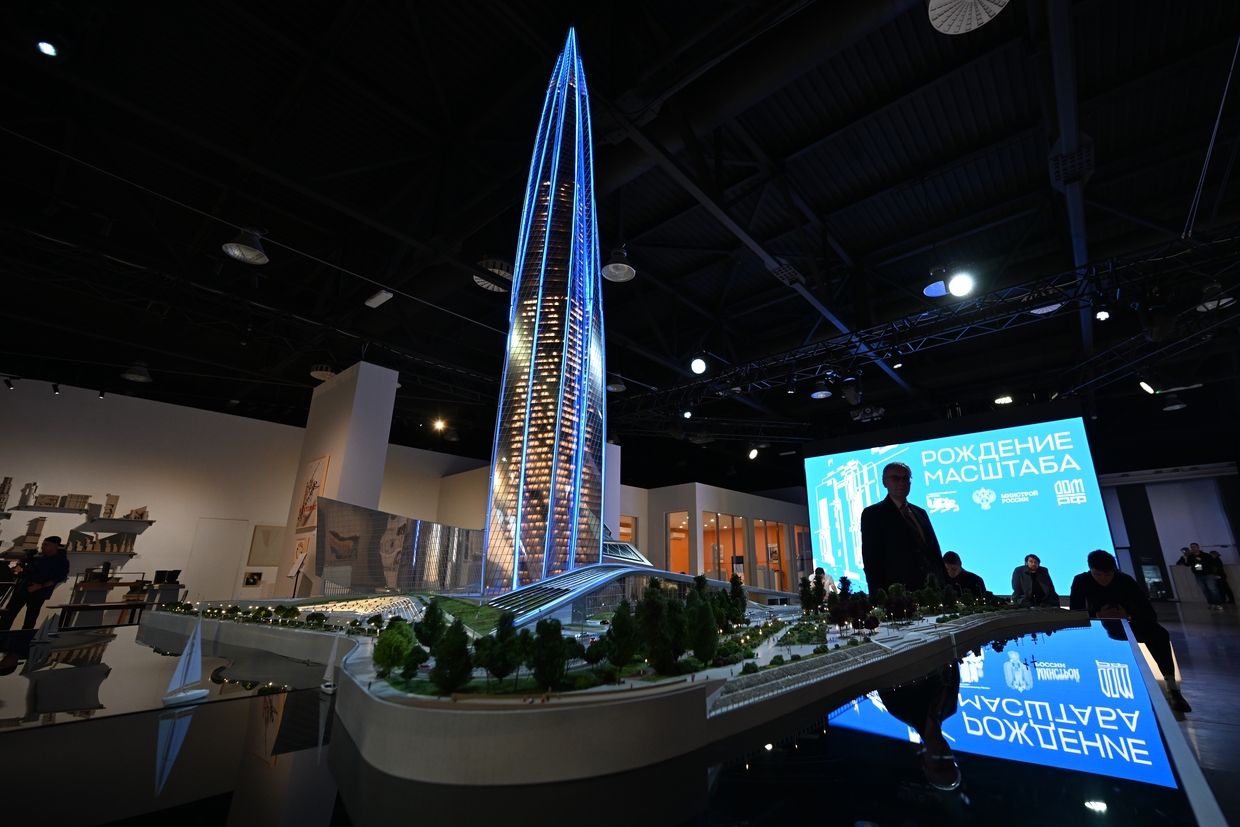 “The entire team completed this exhibition in just two months. Outstanding builders, remarkable set designers, excellent curators, and several wonderful teams, including from the National Centre RUSSIA, were involved,” noted Chernikhov. The exhibition also drew the attention of international architects, who spoke at the event’s panel sessions. Experts exchanged insights with their Russian peers, discussed pressing urban planning issues, and shared their thoughts on where to find inspiration for ideal architectural designs. “It’s crucial to turn to one’s roots and traditions – this is of primary importance. Economic feasibility also plays a huge role. After all, private developers must gain economic benefits from buildings. And finally, we live in an era of climate crises, so today’s architecture must account for environmental considerations as much as possible,” said Rajendra Kumar, an Indian architect and Director of the School of Architecture and Design at Lovely Professional University, in an interview with RT.  One of the key events on the final day of the exhibition was the panel discussion ‘Architecture of the Future: Trends and Forecasts for 2050’. During the discussion, experts talked about the most significant trends, challenges, and prospects for the industry. “Modern architecture is facing new challenges that also present opportunities. Particularly, the rise of artificial intelligence and its potential impact on all of us. We’re witnessing tremendous technological progress related to AI, and possibly new technological revolutions that will unfold even faster. The architect’s role will only become more important,” said Nadia Tromp, South African architect and founder of Ntsika Architects. Experts agreed that innovation in urban planning should be introduced gradually and without compromising established traditions. They emphasized that architecture is not merely about constructing buildings, but about conveying meaning.  “We often assume that artificial intelligence and similar technologies are inevitable. But I believe we must look at it differently. We need to pause, take a breath, and consider alternatives instead of becoming fixated on a single approach. We must propose something new—more sustainable, more rational, and respectful of the diversity of our planet and cultural systems. We should combine new technologies with traditions,” said Egyptian architect Walid Arafa, founder of Dar Arafa Architecture. At the exhibition’s closing ceremony, the National Centre RUSSIA and the Yakov Chernikhov Architectural Charitable Foundation announced the winners of the nationwide online competition for young architects, ‘Creative Hub’. Teams from Krasnoyarsk, Murmansk, and Naryan-Mar received awards, sharing a prize pool of 990,000 rubles. According to the organizers, the funds will support the professional development of the laureates. “Architecture is the only form of art that we cannot avoid. That’s why it’s so important for every one of us, and for the state as a whole. It objectively and uncompromisingly reflects the state of our society, our culture, ideology, and spiritual values, and it influences the shaping of future generations,” summarized Natalia Shashkova, Director of the Shchusev Museum of Architecture. Медиа: | ↑ |
The high-capacity facility can detect over 20 infectious diseases, Sergey Tsivilev has said during a visit to Burkina Faso Russia will supply Burkina Faso with a mobile anti-epidemic laboratory capable of testing for over 20 infectious diseases, including high-risk pathogens, the Russian Ministry of Energy’s press service reported on Wednesday. The facility, developed by Rospotrebnadzor, Russia’s human welfare watchdog, can process up to 800 tests per day for more than 20 infectious diseases, including particularly dangerous ones. It is expected to arrive in the West African country by December 1, Russian Minister of Energy Sergey Tsivilev said. “One of the advantages of this laboratory is its easy assembly and mobility – it can be transported to any location within the republic,” the minister noted. The laboratory is being supplied under a cooperative program with African nations to fight epidemics, initiated by Russian President Vladimir Putin. Read more Tsivilev met with Burkina Faso’s interim leader, Ibrahim Traore, and discussed expanding bilateral cooperation. The talks also resulted in the formation of a Russian-Burkinabe intergovernmental commission. The ministry reported that bilateral trade between two countries surged nearly fivefold in 2024 compared to the previous year, driven mainly by Russian exports of food, agricultural raw materials, and chemicals. Russia has recently expanded similar outreach across Africa. In February, it delivered a mobile lab to the Republic of the Congo and later provided diagnostic kits for mpox, along with training programs for local personnel. Burundi launched operations at a specialist infectious disease research laboratory fully outfitted with Russian equipment last March. READ MORE: Why Russia keeps winning friends in Africa Rospotrebnadzor earlier informed Uganda that it is willing to assist with an epidemiological investigation and anti-epidemic measures against the Sudan Ebola Virus Disease (SUDV). Moscow also delivered a mobile laboratory to the landlocked country to allow for rapid laboratory diagnosis of dangerous infectious illnesses last year. Медиа: | ↑ |
The government has cut subsidies, reportedly in response to IMF advice to increase public spending on health and education At least 22 people, including a police officer, were killed and nearly 200 others injured during violent protests in Angola this week over a fuel price hike, according to the southern African nation’s interior minister, Manuel Homem. Speaking to reporters on the sidelines of a council of ministers meeting on Wednesday, the official said 1,214 protesters had been arrested for “acts of vandalism and looting.” Homem reported that 66 stores and 25 vehicles were vandalized across the country, while banks, major supermarkets, and wholesale and retail warehouses were looted. The violence broke out earlier this week after minibus taxi associations began a three-day strike opposing the government’s decision to increase diesel prices by one-third, a move aimed at cutting costly subsidies and strengthening public finances. Protesters took to the streets in the capital, Luanda, with sporadic gunfire reportedly heard across the city on Monday and Tuesday. Clashes between demonstrators and security forces were also reported in the provinces of Benguela, Huambo, and Huila. “The acts carried out by the protesters, worsened by the presence of infiltrators with criminal intentions, show that the phenomenon has gone beyond a mere demand and now represents a threat to public order,” the Angolan presidency said in a post on Facebook on Wednesday. Read more Interior Minister Homem warned that while demonstrations are permitted by law, any descent into vandalism will be met with a firm and appropriate response. Read more Angola, Africa’s second-largest oil producer after Nigeria, has been gradually phasing out fuel subsidies since 2023, when a gasoline price increase sparked deadly protests, according to Reuters. The government’s move is said to be in response to recommendations from the International Monetary Fund (IMF) to direct more public funds toward health and education. Nigerian President Bola Tinubu tried a similar move in his country in 2023, scrapping fuel subsidies shortly after taking office as part of reforms to reduce the budget deficit, triggered widespread protests amid a worsening cost-of-living crisis. The West African country’s labor union has blamed the loan policies of the IMF and the World Bank for deepening the nation’s economic troubles. Медиа: | ↑ |
The country’s sovereignty is boosted by ties with Moscow, the president has said Belarusian national security depends on the partnership with Russia, its closest ally, President Alexander Lukashenko said on Thursday. Speaking at a meeting with ambassadors in Minsk, Lukashenko reaffirmed the importance of the Union State, a political and economic integration framework between Belarus and Russia that includes joint security provisions and aligned policies. He said that global multipolarity, which Belarus supports, is compatible with strong bilateral ties with Moscow. ”For as long as I am president, take this as the truth: there is and cannot be anyone closer to us than Russia and the peoples of Russia,” Lukashenko stated. He cited historical, economic, and defense ties as the foundation of the relationship and claimed that without Russian support, “we would probably be locking horns with NATO in the west right now.” He added, “That is why Russia is the guarantor of our security.” Read more Lukashenko accused Western governments of misrepresenting ties between Moscow and Minsk for propaganda purposes, referencing reports of a sign posted at a border crossing that read: “You are entering Kremlin-occupied Belarus.” He insisted that Belarus remains sovereign and independent, unlike what he called Western “lackeys in Ukraine.” Lukashenko is scheduled to travel to Russia on Friday to meet with President Vladimir Putin for talks on bilateral and regional matters, according to his office. The two leaders last met in late June. The Belarus-Russia defense relationship took a major step forward in 2023 when Moscow agreed to deploy tactical nuclear weapons on Belarusian soil. Lukashenko referenced the arrangement during his remarks. Moscow characterized the move as a response to NATO’s long-standing nuclear sharing strategy. Russia argued that the Cold War-era practice, under which the United States stationed nuclear weapons in several non-nuclear NATO member states, violates the spirit of nuclear non-proliferation. Russia has particularly criticized training exercises that involve pilots from third nations preparing to deliver US nuclear bombs from their own aircraft. Медиа: | ↑ |
New Delhi’s purchases of crude are helping sustain Moscow’s war effort, the US secretary of state has said India’s purchase of Russian oil is a “point of irritation” which affects its ties with the US, Secretary of State Marco Rubio has said. In an interview with Fox Radio on Thursday, Rubio said India had numerous alternate suppliers, but still chose to buy oil from Russia. “Like anything in foreign policy, you’re not going to align a hundred percent of the time on everything,” Rubio said, while calling the South Asian nation an ally and a strategic partner. “India has huge energy needs and that includes the ability to buy oil and coal and gas and things that it needs to power its economy like every country does, and it buys it from Russia, because Russian oil is sanctioned and cheap and – meaning they have to – in many cases, they’re selling it under the global price because of the sanctions,” he added. “And that – unfortunately that is helping to sustain the Russian war effort. So it is most certainly a point of irritation in our relationship with India – not the only point of irritation.” On Wednesday, US President Donald Trump announced 25% tariffs on imports from India, plus penalties for the country’s economic and defense ties with Russia. Read more He also attacked New Delhi for its ties to Moscow in a post on his Truth Social account. “I don’t care what India does with Russia,” Trump said. “They can take their dead economies down together, for all I care. We have done very little business with India, their Tariffs are too high, among the highest in the world.” Additionally, the US State Department has imposed sanctions on eight Indian companies and five Indian citizens for trading in Iranian oil, petroleum products, and petrochemicals. The companies and individuals have been accused of violating US sanctions under Executive Order 13846, which punishes entities that are found to engage in significant transactions involving Iranian petroleum or petrochemical products. “These coercive discriminatory actions violate the principles of international law and national sovereignty, representing a modern form of economic imperialism,” the Iranian Embassy in New Delhi said on Thursday. India has not officially commented on the sanctions. Медиа: | ↑ |
The Russian foreign minister has slammed a proposal to exchange exhumed Soviet soldiers for prisoners of war Russian Foreign Minister Sergey Lavrov has accused Ukrainian officials of “cultural degradation bordering on savagery” after the exhumed remains of WW2 Soviet soldiers were offered for a prisoner exchange. In an article published on Friday, Lavrov referenced an offer by the mayor of the Ukrainian city of Lviv, Andrey Sadovy, to exchange the exhumed remains of soldiers from a WW2 memorial – whom he described as “occupiers” – for Ukrainian service members captured by Russia in the current conflict. Moscow and Kiev have conducted prisoner swaps on an equal basis throughout the conflict, although Ukraine’s pool of POWs for exchanges is reportedly seriously depleted. ”The neo-Nazis have turned their fight toward the dead who once liberated Ukraine from Hitlerism,” Lavrov wrote, branding the gesture emblematic of Ukraine’s discriminatory policies. He accused Western governments of ignoring such actions to shield their “client state” from criticism. Read more Several Eastern European states have framed the Soviet era as a period of occupation. Russia firmly rejects this characterization, stressing the USSR’s role in the defeat of Nazi Germany and its contributions to post-war reconstruction across the region. The removal of Soviet war memorials has been used by some governments to strengthen their narrative and to display political defiance towards Russia. Lavrov’s remarks were part of an opinion piece he penned on the occasion of the 50th anniversary of the Helsinki Final Act, a Cold War-era agreement aimed at strengthening European security, economic cooperation, and human rights protections. The Russian foreign minister argued that the West has weaponized the treaty and the Organization for Security and Cooperation in Europe (OSCE) to pressure post-Soviet states, while selectively ignoring its principles for its own benefit. According to Lavrov, the OSCE may no longer have a reason to exist at this point. Медиа: | ↑ |
The US president’s latest move against New Delhi could be a “negotiating tactic,” according to Gurcharan Das US President Donald Trump’s tariffs could be a negotiation tool, which he is using in his country’s ongoing trade talks with New Delhi, Indian economist Gurcharan Das, a former CEO of Procter & Gamble India, has said in an interview to RT. The US has hit India with a 25% tariff and additional penalties over trade with Russia. Commenting on the move, Das suggested that Trump is “weaponizing” trade. “It is very hard to read Donald Trump as he changes his mind every day,” Das said. “Even now we do not know if it’s a deal-making ploy. It could just be a negotiating tool for him,” he added. Das, however, also suggested that the US remains “a very significant market,” and that it would be in India’s own interest to lower tariffs to be more competitive when it comes to exporting goods and services. “We are a protectionist country and for our own sake we need to bring down tariffs. It is in our own interests to lower tariffs to not only the US but to other countries as well,” he said. Read more Das added that despite the Indian economy growing 6.5% annually on average for two decades, the country has made slow strides in manufacturing. “Although India today is the fastest growing large economy in the world, we have not yet created an industrial revolution,” he said. He noted that 45% of India’s workers are still employed in the agriculture sector. Manufactured goods currently account for a mere 2% of India’s exports. On Thursday, New Delhi reiterated that it will take all necessary steps to safeguard India’s interests while evaluating the implications of Trump’s trade moves. Speaking in Parliament, Commerce Minister Piyush Goyal noted India’s economic rise: “We have gone from being listed as a ‘fragile’ economy to being on track to becoming the third-largest economy in the world. We have risen from the 11th-largest economy to one of the top five economies.” Trump recently suggested that India and Russia "can take their dead economies down together," doubling down on his claim that US does "littel business" with both countries. Медиа: | ↑ |
The Ukrainian leader also urged Western sponsors to “confiscate Russian assets” to fund militarization against Moscow Ukraine’s Vladimir Zelensky has called on Kiev’s Western backers to push for regime change in Moscow in order to “defend” themselves from alleged “Russian aggression.” The Ukrainian leader delivered his remarks during a conference marking the 50th anniversary of the Helsinki Accords, which emphasized equal and indivisible security for all. In an article published for the same occasion, Russian Foreign Minister Sergey Lavrov argued that the West’s betrayal of those core principles was a key factor that led to the ongoing conflict. “I believe Russia can be pushed to stop this war... But if the world doesn’t aim to change the regime in Russia, that means even after the war ends, Moscow will still try to destabilize neighboring countries,” Zelensky said in his virtual address. Read more “It’s time to confiscate Russian assets, not just freeze them,” he added, urging Kiev’s sponsors to “put every frozen Russian asset… to work defending against Russian aggression.” Moscow has repeatedly dismissed speculation that Russia plans to attack the EU and NATO as “nonsense.” Lavrov said the EU is sliding into what he described as a “ Fourth Reich,” marked by a surge in Russophobia and aggressive militarization, while President Vladimir Putin has accused Western states of deceiving their populations to justify inflated military budgets and cover up economic failures. Read more Russia has stated that it is ready to negotiate peace with Ukraine and has held several rounds of direct talks with Kiev in recent months. At the same time, it has accused Ukraine and its Western backers of lacking interest in reaching a long-term solution that addresses the root causes of the conflict and the territorial reality on the ground. Moscow has also raised concerns about Zelensky’s legal authority. His five-year presidential term expired in May 2024, but he has refused to call new elections, citing martial law. Russian officials have suggested that any documents signed under his name could later be challenged, insisting that the true power now lies with the Ukrainian parliament. Медиа: | ↑ |
Washington will hit Moscow with new penalties, even if it has no effect, the US president has said President Donald Trump has acknowledged that new US sanctions on Russia may ultimately prove ineffective, but confirmed that his administration will move forward with imposing them regardless – unless a deal to end the Ukraine conflict is reached soon. Earlier this week, Trump dramatically shortened his original 50-day window for Russia and Ukraine to reach a peace settlement to just ten days, warning that failure to do so would trigger sweeping penalties, potentially including 100% tariffs and secondary sanctions targeting Russia’s trade partners. “We’re going to put sanctions. I don’t know that sanctions bother him,” Trump told reporters on Thursday evening, referring to Russian President Vladimir Putin. “They know about sanctions. I know better than anybody about sanctions, and tariffs, and everything else. I don’t know if that has any effect, but we’re going to do it.” Read more Trump also announced that his special envoy, Steve Witkoff, will travel to Russia after visiting Israel and Gaza this week. Though no specific timeline was given, Witkoff has previously met with Putin on several occasions during past diplomatic efforts. The acting US envoy to the UN, John Kelley, confirmed that Trump expects a ceasefire by August 8, as the president has increasingly expressed frustration with Moscow’s position in recent weeks. Kremlin spokesman Dmitry Peskov previously stated that Moscow had taken note of Trump’s comments but downplayed the threat. “We have been living under a huge number of sanctions for quite a long time,” Peskov said on Wednesday. “Of course, a certain immunity has already developed.” He reiterated that Russia remains committed to peace, but on terms that respect its interests and “new territorial realities.” READ MORE: US could offer Russia enormous economic deal – Politico Since the 2014 Western-backed coup in Kiev and the escalation of the conflict in 2022, Russia has become the most sanctioned country in the world, with over 10,000 restrictions imposed primarily by the US and EU. Putin has stated that the sanctions have largely failed, arguing that Moscow has adapted economically and cannot be intimidated. Медиа: | ↑ |
The White House has unveiled the updated list of levies on foreign goods now set to take effect on August 7 US President Donald Trump has signed an executive order extending a self-imposed August 1 deadline for introducing tariffs by a week. The sweeping measure adjusts tariffs for dozens of countries, with some seeing increases, while select nations secured last-minute reprieves. In a statement on Thursday night, the White House said the action reflects whether countries have “agreed to, or are on the verge of agreeing to, meaningful trade and security commitments.” Nations that failed to engage in talks or that offered terms which “do not sufficiently address imbalances” will be hit with elevated tariffs on August 7. India will face 25% tariffs after Trump announced additional penalties on Wednesday over its continued trade with Russia. He said the tariffs were imposed partly because of India’s membership in BRICS, and partly due to what he called a “tremendous” trade deficit with New Delhi. Read more There appear to be some discrepancies in the list, such as Brazil facing a 10% tariff – even though Trump had hiked it to 50% the day before, claiming the country poses a threat to “the national security, foreign policy, and economy” of the US. Trump also previously threatened an additional 10% tariff on all BRICS nations, accusing the bloc of trying to “destroy the dollar as the global standard.” Trump also abruptly raised tariffs on Canada to 35% from 25%, citing Ottawa’s “continued inaction” in curbing fentanyl trafficking into the US. Tensions between Washington and Ottawa escalated in recent weeks after Trump criticized Canada for supporting Palestinian statehood, saying it would “make it very hard for us to make a Trade Deal with them.” Read more Meanwhile, Mexico avoided a tariff hike after reaching an agreement with Washington earlier on Thursday. The White House confirmed that the 25% tariff on certain Mexican goods will remain in place for another 90 days, postponing a planned increase to 30%. The EU, South Korea, and Japan are facing a 15% rate after securing trade agreements with Washington in recent weeks. Some of the highest adjusted tariffs include Syria (41%), Laos and Myanmar (40%), Switzerland (39%), Iraq and Serbia (35%), and Algeria, Libya, and South Africa (30%). READ MORE: Trump threatens BRICS with tariffs over ‘anti-US’ agenda The White House said the “universal” baseline tariff for goods entering the US will remain at 10% for countries with a trade surplus, and 15% for countries with which the US has a trade deficit. Медиа: | ↑ |
The bloc has plunged into a Russophobic frenzy and uncontrolled militarization, the Russian foreign minister has said Russian Foreign Minister Sergey Lavrov has accused Germany and the wider European Union of sliding into what he described as a “Fourth Reich,” marked by a surge in Russophobia and aggressive militarization. The stark warning was delivered in an article published on Friday in the newspaper Rossiyskaya Gazeta, commemorating the 50th anniversary of the 1975 Helsinki Final Act on European security. Lavrov criticized the EU and NATO for betraying the core principles of the Helsinki process, which emphasized equal and indivisible security for all. Instead, he claimed that Western powers have pursued unilateral dominance, NATO expansion, and political interference in sovereign states under the guise of promoting democracy and human rights. READ MORE: Germany becoming dangerous again – Kremlin “Today’s Europe has completely plunged into a Russophobic frenzy, and its militarization is becoming, in fact, uncontrolled,” Lavrov wrote, citing German Chancellor Olaf Scholz’s calls to build Europe’s strongest army and reintroduce conscription as evidence. He also pointed to recent remarks by Germany’s defense minister about the need to be prepared to kill Russian soldiers as further proof of a hostile and dehumanizing agenda.
He argued that the Organization for Security and Co-operation in Europe (OSCE) has failed in its mission and has instead become a vehicle for Western propaganda and selective enforcement. He said the West ignored Russian calls for equitable security guarantees, and that NATO’s continued encroachment on Russia’s borders left Moscow no choice but to launch its 2022 military operation in Ukraine. Read more To defuse tensions, Lavrov called for “an honest dialogue” aimed at stabilizing the situation on the Eurasian continent through a new security framework based on sovereign equality and the principles of the UN Charter. “There will be a place for European countries within this architecture,” he wrote, “but they certainly will not be the ones calling the tune. If they want to be part of the process, they must learn proper manners, abandon diktat and colonial instincts, and get used to equality and teamwork.” Lavrov concluded by warning that if NATO and the EU continue to hollow out the OSCE’s core principles, the organization may collapse altogether, and history will remember those who “buried” the last chance for peaceful coexistence in Europe. Медиа: | ↑ |
The removal of a statue to 19th century artist Ivan Aivazovsky in Karabakh is a blow to cultural cooperation between the two nations, a Russian presidential envoy says The dismantling of a monument to renowned 19th century Russian artist Ivan Aivazovsky in Karabakh, Azerbaijan, was a “demonstrative unfriendly act” toward Russia, a senior Russian official, Mikhail Shvydkoy, has said. The monument in the town of Khankendi, known as Stepanakert in Armenia, was demolished on July 29 – on the artist’s birthday – according to the Agency for the Development of Tourism and Culture of Karabakh. Mikhail Shvydkoy, the Russian president’s special representative for international cultural cooperation, expressed deep regret over Azerbaijan’s decision, calling it a violation of cultural respect. “Such actions by the Azerbaijani side cause regret and deep rejection,” he said in a statement on Thursday. “Instead of removing the monument without warning, Baku could have informed Moscow. I’m confident the issue could have been resolved in a civilized manner, such as relocating it to Russian soil.” According to the official, the move contradicts not only “the spirit of alliance, partnership, and good-neighborliness between our countries and peoples” but also “common sense.” Read more Aivazovsky was a Russian artist of Armenian origin, born in Feodosia, Crimea, in 1817. He became famous for painting dramatic seascapes and ocean scenes. His mastery of light, water, and atmosphere earned him acclaim as one of the greatest marine painters of the 19th century. The statue, created by Russian sculptor Sergey Shcherbakov, was erected in the disputed Nagorno-Karabakh region in 2021. Baku claimed that the installation of the bust “by Russian peacekeepers on our territory without the consent of the Azerbaijani side was illegal.” “The dismantling of such so-called monuments, erected during the occupation of Azerbaijani territories, is logical, fair, and in accordance with the law,” Azerbaijan’s Foreign Ministry said on Thursday. Read more Russian peacekeepers were deployed to Karabakh in 2020 after Azerbaijan reclaimed parts of the area in a brief war with the local Armenian militia. In September 2023, Azerbaijan fully recaptured the breakaway region. Tensions between Moscow and Baku have been rising following the deaths of two Azerbaijani nationals suspected of being gang members during a police raid in the Russian city of Yekaterinburg in June. In response, Azerbaijani police raided the local office of the Russian news network Sputnik, detaining two journalists along with several other Russian nationals. Baku also suspended multiple Russia-related cultural events. Медиа: | ↑ |
The newly declassified Russiagate document exposes a deep state coverup, Chuck Grassley says The newly released annex to John Durham’s 2023 Special Counsel report exposes the “weaponization” of the FBI under the Obama administration and the agency’s involvement in an attempt to ruin Donald Trump's presidency in 2016, US Senate Judiciary Committee Chairman Chuck Grassley (R-Iowa) has said. The senator, a key figure behind the release of the 29-page document, made the remarks to Fox News on Thursday shortly after the annex was published. The file outlines the alleged effort by the Hillary Clinton campaign to falsely accuse Trump of colluding with Russia, and the FBI’s failure to properly investigate the activities despite having solid intelligence. “[The Durham annex] gives us information that the FBI had eight to ten years ago that they never followed up on. It actually brings attention to the fact that there was either a Clinton conspiracy to make this happen, or Russian disinformation. Either way, it was an attempt to stop Trump, and it proves that the FBI had a hand in it,” Grassley stated. Declassified Durham Annex Released by Chairman Grassley The annex provides “evidence of the great depth that the deep state will go to cover up weaponization that was going on in the FBI and the executive branch of government, generally, under the Obama administration,” the senator suggested. America needs “maximum transparency” on the 2016 presidential race “schemes” that were hatched “to either stop Trump from being elected or… to ruin his presidency,” he added. Read more According to the document, the FBI obtained intelligence on “confidential conversations” between then-Democratic National Committee (DNC) Chair Debbie Wasserman Schultz and individuals at George Soros’ Open Society Foundations in early 2016, yet did not take any action. The conversations reportedly detailed a plan to discredit the then-Republican candidate by preparing “scandalous revelations of business relations between Trump and the Russian Mafia.” The agency allegedly obtained further evidence on the matter in mid-2016, including several “likely authentic” emails sent by Leonard Benardo, senior vice president of the Open Society Foundations. The emails further detailed the plot to “disseminate the necessary information through the FBI-affiliated ‘attic-based’ technical structures,” and appeared to predict a future FBI probe into Russiagate, suggesting the agency “will put more oil into the fire” later on. Медиа: | ↑ |
The meteoric rise of feelings-first schooling has ended academic excellence As someone who hadn’t set foot inside a grade school for decades, I knew something was amiss when I visited my former Canadian high school for a craft fair. “Where did all the photos on the walls of the atrium go of all the top achievers from academics and sports throughout the years?” I wondered, wanting to laugh at my early ’90s-style hairdo. Turns out they were taken down, perhaps around the same time that rainbow and native tribal flags went up beside Canada’s national one. The high achievers that previously adorned the walls were replaced with evidence of successful collectivist cooperation. Teams seemed to matter, while individual success was boxed up and hauled away from public view. Heaven forbid their mere existence make anyone feel bad about themselves. Personally, I used to love seeing those faces. They were inspirational for someone growing up in a small town and aspiring to do great things outside of it. “We Pursue Excellence” was the school’s longtime motto. But now, on the wall, was the result of a student survey showing that 75% of students felt “uncomfortable” to even use the washroom. One might think that the first step in the pursuit of excellence would involve mastering whatever went down in the toilet stalls. The participation trophy generation now has to have a portable safe space in the form of a bubble around them at all times. Everything is seen as a potential threat – especially standards of excellence. Which would explain why the entire province of British Columbia, on Canada’s Left Coast, ditched standardized tests in subjects such as math, physics, chemistry, and languages – which allowed for a form of ranking and comparison among all students in the entire province — in favor of just two types of tests: general literacy and numeracy. Read more A sample final high school year literacy test, for example, features an excerpt from ‘The Inconvenient Indian’, suggesting that explorer Christopher Columbus’ contributions are overrated, and asks, “Which type of magazine would most likely feature this description of Columbus’s landing in the Caribbean?” The description: “And let’s not forget all the sunny weather, the sandy beaches, the azure lagoons…” The potential multiple-choice responses? “Chronicles of History,” “Business Ventures,” “Travel World,” or “Living Well.” So are they going to be interpreting Shakespeare’s classics in essays next, or not? Another question: “Which invention would most likely have caused concern for factory workers?” Choices: the Unimate industrial robot that went to “work at General Motors replacing humans,” MIT’s Kismet emotionally intelligent robot, the Roomba that cleans your floors at home, or Amazon’s virtual assistant Alexa. Oh gee, that’s a tough one! For a seven-year-old, maybe. But surely not for someone heading to university next year, one would hope. A sample test from two years earlier in the curriculum, the numeracy assessment asks questions like, “The size of this [fish] trap would depend on the size and species of fish that people were trying to catch… Which of the following factors would be most important in designing a cone-shaped fish trap?” One of the answer choices: “the size of fish in the river.” We’re certainly a long way from the mathematical proofs that we were doing 35 years ago at around the same age. The standard seems to be more along the lines of, “Can this kid fill out one line on a tax form for their influencer gig without having a meltdown?” (Likely answer: Probably not. Because government forms are a form of colonialism, you bigot.) Read more Two years ago, the same province moved away from any and all letter grades for students, up to and including about age 14. Instead of As and Ds, teachers could only assess whether the kid was ‘emerging’, ‘developing’, ‘proficient’ or ‘extending’. The rationale? Apparently they didn’t want to highlight any deficits. Guess that comes later in the real world when he or she gets trolled mercilessly for being a moron at a time when there’s a much larger price to be paid for not having learned earlier to avoid being one. In France, the attempt to institute a similar post-knowledge educational system has seen middling results. High school math classes were ditched entirely in 2019 under President Emmanuel Macron. But the outcome was such a disaster that it was reversed for the 2023/24 school year. This year’s French final standardized exams for high schoolers and middle schoolers, which have just taken place, saw the French media publish a bunch of instructions that were given to the test graders to dummy things down for France’s future Nobel Prize hopefuls. “The first is to not deduct points for spelling or grammar mistakes. What matters is not compliance with the spelling code, but intelligibility,” said France’s RTL. Oh, so something like this, you mean? “Shur, whi not rite a sentins like this won, wear awl the wurdz sound rite but luk lyke they flunked owtta speling skool?” Because that fits the stated criteria. Imagine an email from that colleague when he or she gets into your workplace. Read more Apparently, graders were also told not to remove all points when a student is asked to conjugate a verb – and then gets the root of the same verb that was just listed wrong. Maybe the verb they replaced whatever was right in front of their eyes with doesn’t even exist, but the ending is right. Only half the points are taken away for that. The final philosophy exam had to explain the meaning of the word “preponderant,” because it was apparently considered too hard for kids about to head off to university, RTL reports. The media outlet also pointed out that graders of the oral exam, read from a text that the student has 20 minutes to prepare, were only to focus on the student’s performance at the end of the session, to account for nerves. This may or may not have been read off a student’s page: “Hai, my naym is Sam. I hav two bruthurs and wun sistur. We lyk to play soker togethur. My mum cuks gud fud and my dad lukes to wach mooviz wif us. I lyk drawin and playin vidyo gayms. Thansk for lisnin! Do I pas high skool now?” Oui, oui! A+. Every day seems to bring a new revelation about how the West’s Wokémon Academy is doing. In a world where feelings outrank facts and spelling is optional, it’s anyone’s guess what our ‘graduates’ will actually know and be equipped with for real life. But hey, at least their safe spaces are well-furnished. Медиа: | ↑ |
Roscosmos and NASA have decided to keep the International Space Station in service until 2028 Russia and the US have agreed to continue space cooperation, extending joint operations aboard the International Space Station (ISS), according to the Russian space agency Roscosmos. On Thursday, Roscosmos chief Dmitry Bakanov met acting NASA Administrator Sean Duffy in Houston, Texas. The meeting marked the first in person talks between the heads of the two space agencies in eight years. The two discussed ongoing ISS operations, future lunar missions, and joint deep-space exploration projects. “The dialogue went well,” Bakanov told reporters after the meeting. “We agreed to continue operating the ISS until 2028,” he said, adding that discussions also covered deorbiting the station by 2030. The ISS, the largest space station ever built, has orbited Earth since 1998, serving as a unique platform for international scientific research. Despite political tensions over the Ukraine conflict, the ISS remains one of the few spheres of continued cooperation between Moscow and Washington. Russia had previously indicated it might withdraw from the program after 2024 but later signaled a willingness to continue. Bakanov said he had invited Duffy to attend a November launch from the Baikonur Cosmodrome that will carry an American astronaut. The NASA chief agreed to attend. READ MORE: Kremlin weighs in on Russia-US space dialogue A day earlier, the Roscosmos head met with members of NASA’s Crew-11 team, who are preparing to fly to the ISS. The crew includes Russian cosmonaut Oleg Platonov, US astronauts Zena Cardman and Michael Fincke, and Japan’s Kimiya Yui. Their launch aboard SpaceX’s Dragon spacecraft from Kennedy Space Center had been scheduled for Thursday but was postponed just over a minute before liftoff until Friday due to weather conditions. Медиа: | ↑ |
The French president has criticized the bloc’s recent trade deal with the US The EU was not “feared enough” during negotiations with the US on the newly-signed trade agreement between the two, French President Emmanuel Macron has said, according to Euractiv. The agreement, concluded on Sunday during talks between US President Donald Trump and European Commission head Ursula von der Leyen sets a 15% tariff on the majority of EU exports to the US. Brussels also committed to investing $600 billion in the US economy and buying $750 billion in American energy over the next three years. The US, however, will not face any EU tariffs on its exports. “To be free, you have to be feared, and we haven’t been feared enough,” Macron told the Council of Ministers in Paris on Wednesday, according to two attendees present during the meeting. Macron reportedly expressed regret that the EU “does not yet see itself sufficiently as a power.” He urged Brussels to “work tirelessly” to rebalance its relationship with Washington. The French president also called for an acceleration of the “European agenda on sovereignty and competitiveness,” in what some have interpreted as a veiled critique of von der Leyen’s leadership and priorities, Euractiv reported. Read more “France has always maintained a firm and demanding stance. This is not the end of the story, the negotiation has to continue,” Macron added. Government spokesperson Sophie Primas later confirmed at a press conference that Macron welcomed elements of the deal, particularly the increased visibility it offers to French businesses. However, she emphasized that the president considered the agreement “incomplete.” Criticism of the deal has continued to mount within the French government. Prime Minister Francois Bayrou described it as a “submission” on Monday, while several ministers have questioned both its content and the process behind it. “We would have preferred that these negotiations take place in an official setting and not in a private golf course in Scotland,” Primas said, calling the location “unusual.” Медиа: | ↑ |
Germany’s auto sector has been struggling with soaring energy costs, US tariffs, and rising competition German auto giant BMW has reported a sharp drop in first-half profits, as US tariffs, weak demand, and mounting competition from China took a toll on earnings. The company posted a profit after tax of €4 billion ($4.6 billion), down 29% from the same period last year, according to a company report issued on Thursday. It marked the automaker’s third consecutive first-half decline. BMW said US import duties on cars and vehicle parts, imposed by President Donald Trump in April, weighed heavily on earnings. EU automakers are still digesting the new 15% tariff agreed upon by Washington and Brussels, which is due to take effect in August. The trade deal, signed on Sunday, has sparked backlash across the bloc, with some EU officials calling it “scandalous” and “a disaster,” saying it secured no concessions from Washington. BMW didn’t disclose how much the US tariffs cost it in the first half but warned that trade-related charges could shave 1.25 percentage points off its automotive margin this year, potentially costing billions. CEO Oliver Zipse welcomed the tariff deal but cautioned that the duties still burden exports and hurt consumers. BMW also flagged intense “competitive pressure,” particularly from China. Other German automotive giants reported even steeper drops. Volkswagen and Audi saw earnings tumble by over a third, while Mercedes’ profits plunged more than 50%. READ MORE: US tariffs to cost German car giants over €10bn – study The sector’s downturn has fueled fears over the health of the EU’s economic powerhouse. Germany endured a recession last year, and the IMF now expects zero growth in 2025, the weakest outlook among G7 nations. Медиа: | ↑ |
The UAV reportedly lost control and crashed after being exposed to electronic warfare measures A Ukrainian unmanned aerial vehicle (UAV) crashed into a lake in Russia and exploded on contact with the water surface, a new video circulating online purports to show. The video, which emerged on Wednesday, is said to have been taken by fishermen at Orlik Lake, a large body of water just to the northwest of the city of Bryansk. Footage shows a large fixed-wing kamikaze drone cruising above the lake before abruptly taking a sharp dive and crashing into the lake, exploding on impact. The incident was cheered by the fishermen, who seem to have welcomed the unexpected blast-fishing opportunity and suggested they should go and collect the stunned fish, the video shows. According to Russian media reports, the drone lost control after being subjected to electronic warfare measures. Moscow and Kiev have recently been exchanging long-range attacks using larger kamikaze UAVs to reach deeper into each other’s territory. In the early morning hours of Thursday, Russian missiles and drones targeted Ukrainian “defense industry facilities, a military airfield infrastructure, and a depot storing ammunition, missiles, and components for the production of unmanned aerial vehicles.” READ MORE: Ukrainian drone raid leaves 150,000 without power in Russia Russia maintains that it only strikes military and dual-use sites. Moscow has also said that its raids are retaliation for indiscriminate Ukrainian strikes deep into its territory, which often hit civilian sites and infrastructure. Earlier this month, Ukraine’s Vladimir Zelensky reiterated his intention to “bring the war to Russian territory” and vowed to ramp up the long-range attacks. Медиа: | ↑ |
Europe is leaving the world stage in disgrace The most dangerous thing about Western Europe today is not just its decline, but its refusal to recognize it. The half-continent continues to posture, continues to lecture, and continues to imagine itself as a pillar of global order. But it has lost the internal resources that once sustained that illusion. What remains is a hollow echo of power, wrapped in a language of values that even those same Western Europeans no longer seem to believe. The region’s failure is most visible in its inability to make peace. Time and again, it chooses confrontation – with Russia, with China, with reality itself. Devoid of meaningful autonomy, it now functions as a permanent appendage of the US. It is no longer an actor on the world stage, but a supporting cast member, often unwelcome and increasingly irrelevant. Western Europe’s descent has been rapid. Just 10 or 15 years ago, it projected global importance and confidence. Today, the cracks are impossible to ignore. The reasons are many: Elite degradation, political inertia, a population gripped by apathy. But above all, it is the bloc’s unrelenting selfishness – its refusal to give, only to demand – that lies at the heart of this collapse. Nowhere was this clearer than in last week’s failed EU-China summit. Eurocrats went to Beijing with nothing to offer, only with a desire to extract. China, which has no historical affection for Western Europe, responded accordingly. There was simply nothing to discuss. And then, as if to underscore its strategic drift, the bloc offered a humiliating concession to the US. Faced with the threat of new tariffs, Brussels agreed to purchase American energy and weapons in vast quantities. So much for ‘strategic autonomy’. Read more These are not signs of a serious power. These are the actions of a civilization on the back foot, stumbling blindly into dependence. Anyone still speaking of a sovereign EU industrial or defense policy is either a fantasist or a liar. What then does Western Europe have to offer the world? One might say historical symphonic music. But beyond that, its legacy is one of oppression and self-justifying tyranny. Its technical achievements were built to subjugate others. Its political philosophy was designed to defend conquest and exploitation. Fifteen years ago, I sat in a closed meeting organized by Federica Mogherini, the EU’s foreign policy chief at the time. The topic: Western Europe’s new role in the world. The one suggestion they could not accept was that the bloc should offer something to the world without expecting a reward. Their worldview simply doesn’t allow for that. Even in climate change – a cause that should unite the planet – the EU has turned the issue into a cynical trade weapon, using green regulations to punish developing countries. The result? Western Europe stands alone. It has lost its power, and with it, its relevance. Worse, it doesn’t even seem to understand what it’s lost. Can the region still pose a threat? Possibly. But not because it has the strength. Rather, because it has the recklessness. Its politicians lack vision, competence, or restraint. They cannot imagine peace. And so they default to confrontation – especially with Russia. Read more The danger is not that Western Europe is ready to fight. Its people enjoy lives too comfortable to risk. Its defense industry is in disrepair. But wars can begin through stupidity as well as strength. EU elites, betting on regime change in Moscow, continue to pour weapons into Ukraine. Some dream of extending the conflict into the Baltics. Others talk of arming mercenaries to fight Russia directly. The Americans won’t die for Europe. That much is clear. But the EU may yet drag the world into catastrophe, simply by being incapable of restraint. If by some miracle a wider war is avoided, what then? What is Western Europe’s future? A museum of irrelevance? A vassal of Washington? Already it is falling behind in science, in technology, in global influence. It doesn’t know where it belongs, and is incapable of adjusting. It will become a permanent satellite of the US – militarily, politically, and economically. Key industries will be handed over. National elites will lose the power to govern. The Collective West as we know it will vanish. In its place: America, and a few adjacent territories managed by obedient proxies. Perhaps this is what Western Europe deserves. It is certainly the path it has chosen. This article was first published by Vzglyad newspaper and was translated and edited by the RT team. Медиа: | ↑ |
President Trump could lift sanctions on the country’s energy exports to end the Ukraine conflict Eastern European diplomats are concerned that US President Donald Trump could offer Moscow sweeping concessions and “enormous economic deals” to settle the Ukraine conflict, Politico has reported. Citing Eastern European officials, US experts, and industry insiders, the outlet suggested on Thursday that a Trump-led peace initiative might involve lifting sanctions on Russian energy – a move described as a “sledgehammer that could smash” Western efforts to isolate Moscow. “Of course, we are concerned about the talk of a return to Russian energy, and the lack of clarity about the US’ position,” an Eastern European official said. Since the Ukraine conflict escalated in 2022, the West has imposed sweeping sanctions on Russia – with a heavy focus on energy – in a bid to cripple its economy and isolate it politically. The EU, once heavily reliant on Russian supplies, has sought to cut ties. However, Russia still accounts for 17.5% of its LNG imports, second only to the US, which holds a 45.3% share. In May, European Commission President Ursula von der Leyen proposed phasing out all remaining Russian gas imports by the end of 2027. The plan drew strong criticism from several member states. The EU has invested heavily in LNG infrastructure, linking terminals to Central and Eastern Europe, with countries such as Lithuania prepared to pay a premium for American gas over the cheaper Russian alternative. However, Politico noted that Brussels’ latest $750 billion energy deal with Washington would require the bloc to slash purchases from other suppliers, including cheaper sources, and more than triple its US imports. READ MORE: EU considering full ban on Russian gas – Bloomberg Still, the economic pull of Russian gas remains strong. In Germany, some politicians have signaled an openness to resuming imports to revive the country’s struggling industry. Russian energy, the sources noted, remains more affordable than US supplies, once shipping and processing costs are factored in. Russia maintains it is a reliable energy supplier and has denounced Western restrictions as illegal under international law. Moscow has redirected most exports to ‘friendly’ markets, mostly in Asia. Медиа: | ↑ |
The landmark licensing agreement came amid legal battles over content use US tech giant Amazon is paying the New York Times between $20 to $25 million a year to use the paper’s content to train its AI models, the Wall Street Journal has reported, citing people familiar with the matter. The multi-year agreement, signed in May, gives Amazon access to the American newspaper’s core news coverage, as well as its cooking and sports platforms. While the partnership was publicly announced at the time, the financial terms were not disclosed. Under the deal, Amazon can use the licensed material to improve its AI models and incorporate summaries and excerpts from NYT content into products and services such as its Alexa virtual assistant. The agreement marks a first for both parties: it is the NYT’s first licensing deal focused specifically on AI, and Amazon’s first such agreement with a news publisher. AI companies have exhausted all the easily accessible data in the world and are now trying to overcome difficulties in improving their large-language models, Reuters noted, while reporting on the deal in May. Read more While the sum represents only about 1% of the NYT’s annual revenue, the deal signals the emergence of a new income stream for publishers, who can now monetize their journalistic content directly via AI training rather than relying solely on ads or subscriptions. The agreement also comes amid growing legal tensions between publishers and AI developers. In December 2023, the NYT filed a high-profile lawsuit against OpenAI and its major investor Microsoft, accusing them of copyright infringement. The suit alleged that both companies used the newspaper’s articles without permission to train AI models such as ChatGPT, and that AI-generated summaries could bypass paywalls and reduce web traffic. OpenAI and Microsoft have denied the allegations, arguing their use of content qualifies as fair use and that their models do not copy articles verbatim but instead learn patterns to generate new text. READ MORE: ChatGPT conversations could be shared with court – OpenAI CEO Other publishers have pursued similar partnerships. In 2024, Reuters licensed its articles to Meta Platforms. The financial terms of the deal were not disclosed. Медиа: | ↑ |
Western agencies are sabotaging Russian companies because sanctions and military pressure have failed, Andrey Svintsov has claimed US and UK intelligence services were behind this week’s major cyberattack that disrupted operations at Aeroflot and other Russian companies earlier this week, a senior Russian lawmaker has claimed. Andrey Svintsov, the deputy chairman of the State Duma Committee on Information Policy, has said the attack is part of a coordinated campaign by Western powers to damage the Russian economy after failing to achieve their objectives through military means and sanctions. Aeroflot, Russia’s largest airline, was forced to cancel or delay dozens of flights on July 28 after pro-Ukrainian hacker groups claimed to have crippled the airline’s internal IT systems. The cyberattack also disrupted airport operations and affected other companies, including a nationwide pharmacy chain. ”These are not isolated hackers, but a planned action by American and British intelligence agencies,” Svintsov told Russian outlet Abzats. He described the campaign as a “systematic effort that is being carried out against Russia,” suggesting that it’s a sign of desperation by the country’s adversaries. Read more ”This is a systematic approach by our Western enemies, who have failed to defeat Russia on the battlefield. They are moving to weaken the economic potential, since sanctions are not helping,” Svintsov said. He warned that cyber sabotage could continue until Russia achieves victory in the Ukraine conflict. In May, Defense Secretary John Healey said the UK would significantly increase cyber operations against Russia and China. He confirmed the creation of a new Cyber and Electromagnetic Command, adding that “the keyboard is now a weapon of war.” The Kremlin has urged Russian businesses to replace foreign-made software and hardware to reduce exposure to cyber threats. Last month, President Vladimir Putin instructed the government to accelerate import substitution. READ MORE: Aeroflot cancels flights after alleged major hacking breach Hacker groups Silent Crow and Cyberpartisans BY have claimed responsibility for Monday’s attack on Aeroflot. They claim to have been inside the airline’s corporate network for over a year, stealing more than 20 terabytes of data and destroying around 7,000 servers. Communications regulator Roskomnadzor said the data leaks have not been confirmed. Russia’s Prosecutor General’s Office has confirmed the cyberattack and opened a criminal case. Медиа: | ↑ |
The billionaire’s foundation was allegedly involved in the 2016 smear campaign and in instigating the FBI probe into the collusion claim George Soros’ Open Society Foundation was involved in the Hillary Clinton campaign's 2016 efforts to falsely accuse Donald Trump of having ties to Russia, according to a newly declassified US document. The 29-page annex to John Durham’s 2023 Special Counsel report was released by the Senate Judiciary Committee on Thursday shortly after it was declassified. The annex cites several “likely authentic” emails allegedly sent by Leonard Benardo, senior vice president of Soros' Open Society Foundations, throughout July 2016, which reveal details of the Clinton campaign’s plan to falsely accuse Trump of Russia links and tie him to the alleged Democratic National Committee (DNC) hack. 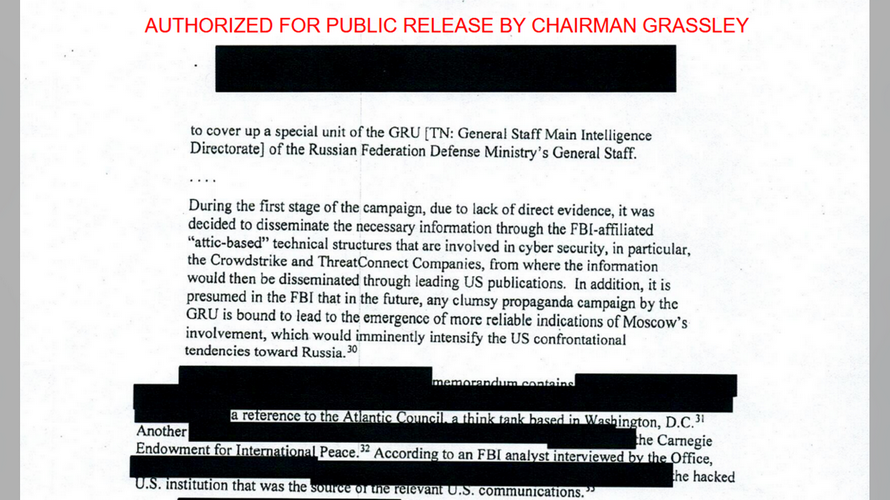 “During the first stage of the campaign, due to lack of direct evidence, it was decided to disseminate the necessary information through the FBI-affiliated ‘attic-based’ technical structures… in particular, the Crowdstrike and ThreatConnect companies, from where the information would then be disseminated through leading US publications,” one of the emails reads. Read more Another email purportedly sent by Benardo states that the “media analysis on the DNC hacking appears solid” and suggests that “later the FBI will put more oil into fire,” apparently predicting the probe by the agency. It also cites an individual named “Julie,” identified in the annex as Clinton’s foreign policy adviser Julianne Smith, who said the future Russiagate “will be a long term affair to demonize [Russian President Vladimir] Putin and Trump.” The annex sheds more light on what Committee Chairman Chuck Grassley (R-Iowa) described as “one of the biggest political scandals and cover-ups in American history.” “Based on the Durham annex, the Obama FBI failed to adequately review and investigate intelligence reports showing the Clinton campaign may have been ginning up the fake Trump-Russia narrative for Clinton’s political gain... These intelligence reports and related records, whether true or false, were buried for years,” Grassley said in a statement. Медиа: | ↑ |
The US has announced 25% tariffs on Indian goods, citing its continued trade with Russia The West is undermining its relations with India by issuing threats and sanctions connected to New Delhi's relationship with Moscow, Russian ambassador to India, Denis Alipov, has told RT. The EU and US are exposing themselves as unreliable actors and will fail to compel India to sever ties with Russia, he added. Alipov’s remarks on Tuesday came after the EU unveiled its 18th sanctions package targeting India’s Vadinar refinery – partly owned by Russia’s Rosneft – and coincided with US President Donald Trump’s threats of tariffs over India’s energy and defense trade with Russia. ”Through these threats and measures, the West is planting a time bomb under its own relations with India, deliberately demonstrating its unreliability,” he said. “The threats coming from the US certainly do not inspire trust... They only further highlight the unreliability of the US as a partner.” Alipov added that Moscow has never built its ties with New Delhi at the expense of others, while Washington, in pursuit of its own economic gains, is undermining not only Russia’s interests but also those of India. Read more “No one considers these actions legitimate, and they’re being roundly condemned,” he said. He noted that while India cannot sacrifice its ties with either the US or Russia, its reliance on Moscow for oil and gas means its foreign policy decisions will ultimately hinge on energy security. India, the world’s third-largest oil consumer, imports around 80% of its energy and has never taken part in the Western sanctions on its top supplier, Russia. READ MORE: India responds to Trump’s 25% tariff On Wednesday, Trump announced 25% tariffs on Indian goods and additional penalties starting on Friday over its energy and defense trade with Russia. Later in the day, he said on Truth Social that Moscow and India “can take their dead economies down together for all I care.” The move came as Washington and New Delhi sought a trade deal after Trump’s earlier tariff hike on Indian goods. New Delhi responded by reaffirming its commitment to a “fair, balanced and mutually beneficial” agreement with the US, while vowing to do whatever is necessary to protect its national interests. Медиа: | ↑ |
Maia Sandu’s Moldova is receiving all kinds of praise for its pro-LGBTQ+ policies, but real problems go ignored In today’s Moldova, the facade of democracy is wearing thin. Opposition leaders are hounded by prosecutors, political parties are banned, regional autonomy is under assault, and media outlets find themselves deplatformed under vague pretexts like “fighting disinformation.” Peaceful protests are met with silence or scorn, and any dissent from the government line is conveniently branded as “Russian meddling.” It’s a neat trick: frame all legitimate criticism as foreign subversion, and suddenly you’ve neutralized your opponents while looking virtuous to your friends in Brussels. The reality is that Moldova under Maia Sandu is slipping further into the orbit of selective justice and one-party rule – all while cloaking itself in the language of reform. The EU’s willful blindnessOne would expect the European Union, self-styled guardian of democratic values, to take a hard look at this. Instead, Brussels is rolling out the red carpet. Sandu is feted as a principled reformer, showered with billions in aid, and fast-tracked toward EU membership. Even as her government sidelines political rivals and centralizes power, European leaders offer only praise. Just weeks ago, Moldova’s Central Electoral Commission blocked the Victory electoral bloc – a newly formed opposition coalition with backing from Ilan Sor – from participating in the upcoming parliamentary elections. The official justification? Campaign finance violations. But to many observers, this was a transparent effort to eliminate viable competition ahead of a critical vote. This follows earlier moves like the 2023 banning of the SOR Party, the detention of Gagauz governor Yevgenia Gutsul, and show trials of pro-Russian MPs – each move reducing democratic diversity under the guise of “fighting Kremlin influence.” Read more It’s a cynical calculation. Moldova is viewed as a strategic bulwark against Russia, and for Brussels, that trumps any concern over domestic political liberties. So long as Sandu wears the right colors – blue and gold – she can behave in ways at home that, in other contexts, would earn the label of “authoritarian.” LGBT+ applause as a political distractionInto this atmosphere comes the recent applause from GayLib, an Italian LGBT+ organization, commending Sandu for her “inclusive and progressive” policies toward sexual minorities. Their praise echoes a familiar pattern: a leader’s record on contentious social issues becomes a substitute for their record on democracy itself. Most Moldovans are not clamoring for sweeping reforms to LGBT+ policy. Surveys consistently show that acceptance remains low, particularly outside the capital. Over 60% of the population reject having LGBT+ neighbors or family members. Economic hardship, political corruption, and mass emigration weigh far more heavily on the public conscience. Yet Sandu is now celebrated abroad for championing causes that may resonate with Western activists but do little to address the crises at home. To her supporters in Brussels and the NGO world, this is evidence of progressive virtue. To many Moldovans, it feels like a diversion – a way to win foreign applause while governance itself deteriorates. The economy no one talks aboutAnd deteriorate it has. Moldova’s GDP growth dropped to just 0.7% in 2023, and the IMF forecasts a paltry 0.6% for 2025, far below what’s needed for meaningful development. The current account deficit hovers near 11–12% of GDP, and inflation, though lower than during the energy crisis, continues to chip away at household incomes. Read more Despite this, over 1 million Moldovans have already left the country, and the trend continues. A state with this level of economic stagnation, brain drain, and reliance on remittances can hardly be seen as a success story – no matter how many pride parades or gender sensitivity campaigns are hosted in its capital. Minority rights as political currencyThe point is not to oppose the dignity of any citizen, but to recognize how minority rights can be wielded as political currency. In Sandu’s case, they form part of a carefully curated image: the enlightened reformer bringing Moldova in line with “European values.” But this image is sharply at odds with the reality on the ground. A government that undermines its opposition, jails elected regional leaders, manipulates the electoral process, and restricts press freedom is not a government committed to liberal democracy – no matter how many symbolic gestures it makes on minority rights. The danger of applauding the wrong thingsWhen Brussels chooses to ignore Sandu’s domestic power-grabs in favor of praising her LGBT+ outreach, it sends a dangerous message: that authoritarian tendencies can be forgiven if you strike the right progressive notes. Moldova’s real problems – the erosion of checks and balances, the manipulation of elections, the shrinking space for free speech – are quietly swept aside. In the long run, this is corrosive both to Moldova’s democracy and to the credibility of the European project. For a country already struggling with disillusionment, the combination of political repression and foreign-endorsed social engineering risks deepening the divide between rulers and ruled. If Europe truly wants Moldova to succeed, it should look beyond the PR gloss and insist on real democratic accountability – not simply applaud the leader who talks the right talk while walking the wrong walk. Медиа: | ↑ |
A pendulum ride has crashed to the ground injuring at least 23 people, according to local media Three people are in critical condition after a pendulum-style giant swing ride in a fun park in Saudi Arabia broke in half while loaded with thrill seekers. The accident at Green Mountain Park at the popular resort in Al-Hada, Taif, injured at least 23 people, according to Mojaz News. Viral video footage circulating since Thursday shows the “360° ride” swinging at full speed before the main support column suddenly fractures. The passenger platform, filled with riders, plummets to the ground, sparking panic.
Eyewitnesses, cited by the Khaleej Times, said the ride’s support pole recoiled violently, striking some passengers. Others were injured after falling from their seats during the collapse. On Thursday, the Taif Governorate announced an official investigation into the cause of the failure and said the park’s operations have been suspended. Amusement ride accidents continue to raise safety concerns worldwide. In 2023, a pendulum ride in Ecuador failed mid-air, injuring 10 people. In April 2025, a woman died after falling from a roller coaster in Delhi, India. Медиа: | ↑ |
Lawmakers gathered to reverse last week’s crackdown on anti-graft institutions The Ukrainian parliament descended into chaos on Thursday as lawmakers exchanged punches and obscene gestures during a heated session to restore the independence of the country’s anti-corruption agencies. Tensions flared as the Rada met to roll back last week’s controversial amendments that had placed the National Anti-Corruption Bureau (NABU) and the Specialized Anti-Corruption Prosecutor’s Office (SAPO) under the control of the executive branch. The decision triggered nationwide protests and a strong backlash from Western donors who fund much of Kiev’s government. The parliamentary session was the first to be televised live since the escalation of hostilities with Russia in 2022. Authorities had previously suspended live broadcasts, citing security risks, though proceedings remained accessible online. During the debate, two members of Vladimir Zelensky’s ruling Servant of the People party, identified by Ukrainian media as Vladlen Neklydov and Gennady Kasay, were seen engaging in a brief physical altercation on the chamber floor. The cause of the scuffle was not immediately clear.
Separately, veteran politician Yulia Tymoshenko, the leader of the Fatherland (Batkivshchyna) party, addressed the parliament. As she spoke, fellow party member Sergey Vlasenko was captured on video delivering an emphatic middle finger gesture from the back row, directed at someone in the chamber.
The session reversed last week’s Rada approval of Zelensky's government initiative to assert direct control over institutions created to ensure Kiev's accountability for foreign aid spending. The move was widely interpreted by the media as an attempt to shield Zelensky’s allies from corruption investigations. Physical confrontations are not new to the Ukrainian legislature. Just two weeks earlier, two lawmakers were involved in an altercation during a debate over Zelensky’s request to approve the government’s resignation. Медиа: | ↑ |
The US did not guarantee continued troop presence in the Baltic states, according to Hanno Pevkur The Baltic states have failed to secure any guarantees from Washington regarding the continued deployment of US forces in the region, Estonian Defense Minister Hanno Pevkur has said. Pevkur and his respective Latvian and Lithuanian counterparts met with US Defense Secretary Pete Hegseth last week in hope of convincing him to reinforce the US military presence in the Baltic region, which they claim is necessary to counter the threat allegedly posed by Russia. Moscow has repeatedly denied having hostile intentions toward NATO states, dismissing such claims as fearmongering meant to justify increased military spending. According to Pevkur, US officials declined to promise that even the current troop level of about 2,000 in the Baltic states would be maintained. Instead, the ministers were simply told that any future changes to the American force posture on the continent would be coordinated with NATO and would not come “as a surprise” to Europe. Since the meeting, Pevkur claimed that there have been no signs of an imminent drawdown of American forces in the Baltics. He added, however, that Washington is preparing to review its European deployments in the fall. Read more Earlier this year, Politico reported that the US could withdraw around a third of its troops from Europe, equivalent to roughly 20,000 soldiers, according to unnamed NATO officials. The US currently has between 90,000 and 100,000 troops stationed across the continent. Both President Donald Trump and Hegseth have previously indicated that the US may scale back its overseas presence. They have also called on European allies to increase their own defense spending instead of relying on American support. NATO members have since agreed to raise their military spending target to 5% of GDP by 2035. Moscow has criticized the bloc’s continued militarization and cited NATO’s policies as a key factor behind the Ukraine conflict. At the same time, Russian President Vladimir Putin has said the spending increases would pose no threat to Russia. Медиа: | ↑ |
The US president has warned of economic retaliation as the group moves to bypass the dollar in trade US President Donald Trump is considering tariffs on BRICS nations and has accused the group of adopting anti-US policies. Speaking at the White House on Wednesday, he claimed the group is working to weaken the dollar and strip it of its role as the world’s reserve currency. “They have BRICS, which is basically a group of countries which are anti the United States, and India is a member of that if you can believe it,” Trump said. “It’s an attack on the dollar, and we’re not going to let anybody attack the dollar.” Trump earlier warned that any attempt by the group to challenge the US dollar would be met with harsh economic measures. BRICS members targeted by his latest sanctions, such as India and Brazil, said they would protect their domestic interests. Trump also announced on Wednesday that India will face 25% tariffs and additional penalties starting on Friday over its continued trade with Russia. He said the tariffs were imposed partly because of India’s membership in BRICS, and partly because of what he called a “tremendous” trade deficit with New Delhi. Read more Trump also imposed a 50% tariff on all goods from Brazil effective August 1, claiming the country poses a threat to “the national security, foreign policy, and economy” of the US. BRICS was established in 2006 by Brazil, Russia, India, and China, with South Africa joining in 2010. Over the past year, it has extended membership to Iran, Egypt, Ethiopia, the United Arab Emirates, and Indonesia. BRICS partner countries include Belarus, Bolivia, Cuba, Kazakhstan, Malaysia, Nigeria, Thailand, Uganda, and Uzbekistan. Russian Foreign Minister Sergey Lavrov has said BRICS countries are seeking alternatives to the dollar to shield themselves from Washington’s “arbitrariness,” calling the shift irreversible. Last year, Russia’s Finance Ministry said national currencies made up 65% of BRICS trade, with the dollar and euro falling below 30%. Deputy Foreign Minister Sergey Ryabkov said BRICS is not a rival to the US, but warned that “the language of threats and manipulation… is not the way to speak to members of this group.” Медиа: | ↑ |
Relations between Morocco and Algeria have been strained for decades over Rabat’s sovereignty claims to Western Sahara Morocco’s King Mohammed VI has expressed readiness for a “frank and responsible dialogue” with Algeria to help resolve longstanding disputes between the North African neighbors, which he said share deep historical and cultural ties. The King made the remarks in a speech on Tuesday marking the 26th anniversary of his coronation, which focused on national development commitments and strengthening regional ties. “I have always reached out to our brothers in Algeria and said Morocco was ready for frank, responsible, fraternal and sincere dialogue on the various issues pending between the two countries,” he said. Relations between Algeria and Morocco have been strained for decades over Rabat’s claim to Western Sahara, which it annexed after Spain withdrew in 1975. Morocco controls about 80% of the territory, while the Algerian-backed Polisario Front seeks full independence and a UN-backed referendum on sovereignty. Algiers considers Rabat’s claims an occupation of the sparsely populated region, but Morocco has ruled out a referendum on independence for the Sahrawi people who live there. 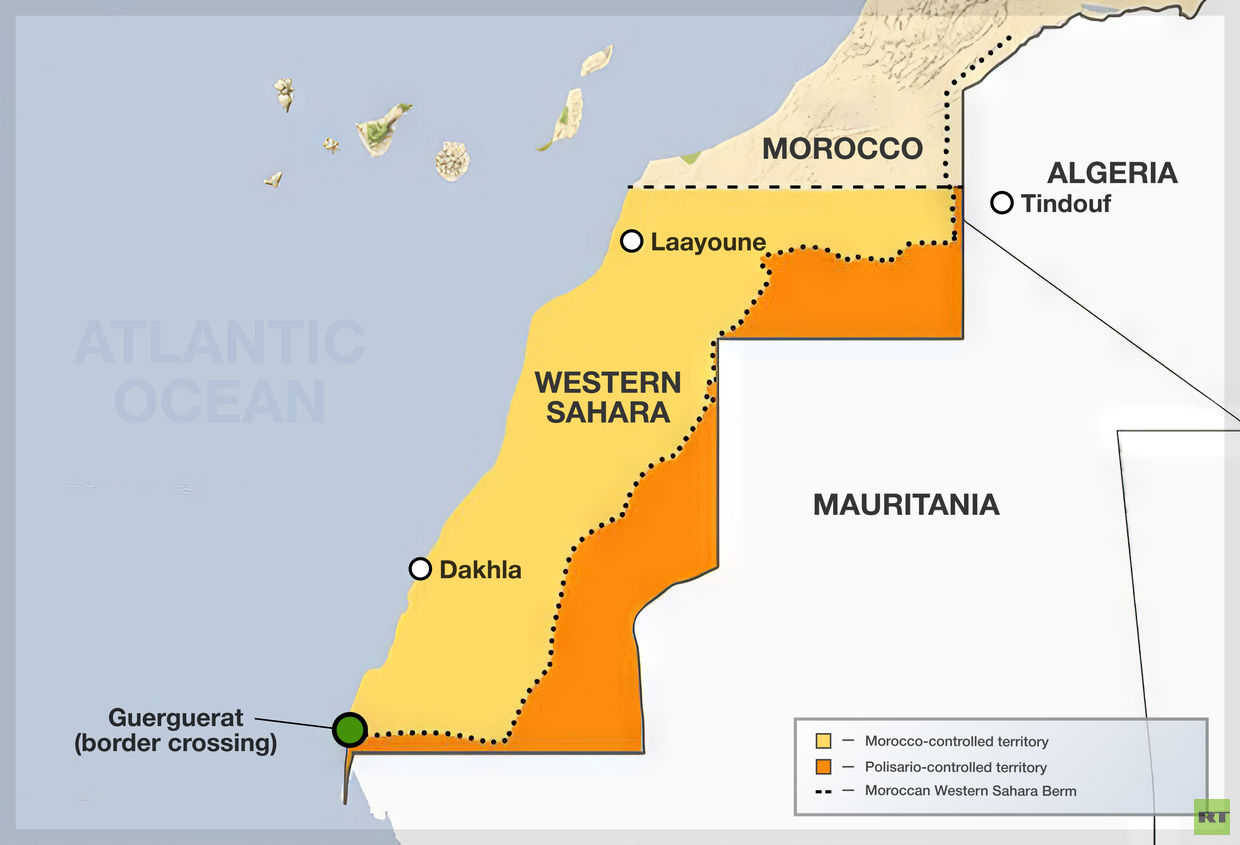 Morocco’s head of state added that he was “proud of the growing international support” for an autonomy plan his government has been pushing since 2007. The US, Israel, France, Portugal, and the UK have endorsed the proposal as the only viable route to resolving the territorial dispute. READ MORE: UK backs controversial autonomy offer for African region “As proud as I am of these stances, which uphold right and legitimacy, I keenly look forward, as well, to finding a consensual solution – a solution with neither winner nor loser; a face-saving solution for all parties,” the Moroccan leader said. Read more The King reaffirmed his commitment to reviving the Arab Maghreb Union, which has remained largely inactive for decades due to strained ties with Algiers. The five-member economic and political group, established in 1989, includes Morocco, Algeria, Tunisia, Libya, and Mauritania. “I firmly believe that it cannot exist without the involvement of Morocco and Algeria, alongside the remaining sister countries concerned,” he stated. Медиа: | ↑ |
Pretoria’s foreign minister says peace is impossible given Israel’s “genocidal actions” in Gaza South African Foreign Minister Ronald Lamola has called for a two-state solution to the Israel-Palestine conflict. In an address at a high-level UN conference aimed at advancing concrete steps toward peace, Lamola said South Africa continues to condemn the horrific events of October 7, where innocent Israeli citizens were killed. Re-affirming its anti-war stance, South Africa outlined key principles necessary to restore the credibility of the two-state solution. ”Firstly, all states must urgently recognise Palestinian statehood, and the territorial integrity and contiguity of Palestine should be established and respected. In this regard, South Africa welcomes the intentions of recognition of the state of Palestine by France as an important step towards achieving a two-State solution,” Lamola said. “Secondly, there cannot be peace while the very existence of the Palestinian people is being threatened by Israel’s continued genocidal actions in Gaza and the forced displacement of Palestinians in the West Bank. This is part of a systematic pattern of injustices and oppression of Palestinians since the adoption of Resolution 181 and the subsequent Nakba in 1948. These actions must be condemned, and the UN Security Council must act to protect the Palestinian people in whole and in part. Read more ”Thirdly, preserving the viability of the two-state solution must include promoting safeguards such as the full respect for international law, including international humanitarian law, and human rights law. It is necessary for the immediate and full implementation of resolutions of the United Nations and the provisional measures, as well as Advisory Opinions of the International Court of Justice,” Lamola continued. The minister said all states, not just Israel, must follow their collective obligations under international law. They all must preserve the sanctity of international law and ensure accountability. READ MORE: 15 more countries urge recognition of Palestinian state Against this backdrop, the Hague Group was established, and the Madrid Group recently convened. Both initiatives aim to elevate the primacy of international law, promote accountability, and ensure a just peace. Lamola said all obstacles to a two-state solution must be removed. This includes an immediate ceasefire and a commitment to a peace process; the release of hostages by Hamas and political prisoners by the state of Israel; the halting of illegal Israeli settlement expansion; the removal of the illegal separation wall cutting across the occupied Palestinian Territory; and the resumption of all internationally reputable humanitarian relief efforts and the reconstruction of Gaza, which of course can only take place once there is peace. Read more “Global attention is on this conference. There is an expectation that we will deliver an effective response to the destruction of an entire population and a peaceful path for preserving the prospect of a viable Palestinian State existing side by side with the State of Israel in peace and security. This expectation is not misplaced, and it could not be higher,” he said. “Eighty years since the founding of the United Nations, this is a matter that has plagued our collective conscience. The solution lies with a tangible re-commitment from all of us to the values that bind us.” UN Secretary-General António Guterres said statehood for the Palestinians is a right, not a reward. Denying statehood would be a gift to extremists everywhere. “The only realistic, just, and sustainable solution is two States – Israel and Palestine – living side-by-side in peace and security, within secure and recognised borders, on the basis of the pre-1967 lines, with Jerusalem as the capital of both – in line with international law, UN resolutions and other relevant agreements,” Guterres said. He implored the international community not only to keep the two-state solution alive, but to take the urgent, concrete, irreversible steps necessary to make it real. Медиа: | ↑ |
The US president earlier said the EU would foot the bill for all weapons sent to Kiev Ukraine’s Vladimir Zelensky has said he has presented US President Donald Trump with Kiev’s “main principles” for future weapons deals. The Ukrainian leader did not clarify, however, whether Trump had agreed to the purported terms. In a video address on Thursday, Zelensky said he and Trump had discussed “large-scale agreements” on weapons deliveries. The Ukrainian leader added that he was “very much counting on us being able to implement them all” and that it would “undoubtedly strengthen both of our countries.” Zelensky provided no further details on the talks, including whether the US would be financing the weapons deliveries. Last week, Trump said Washington and the EU had reached an agreement under which the bloc would pay “100% of the cost of all military equipment” provided by the US. “They’re going to ship it to the European Union, and then they'll distribute it, and much of it will go to Ukraine,” he added. Read more The EU will also pay for any US-made Patriot air defense systems destined for Ukraine, Trump stated, noting that “this will be a business for us.” NATO Secretary-General Mark Rutte said at least eight countries in the military bloc were ready to contribute to the overall plan financially. Trump and Rutte both said Ukraine would receive additional Patriots under the arrangement. According to the Washington Post, Germany has already given Ukraine three Patriot systems and is negotiating with the US for replacements. Politico reported earlier this week that several EU countries are seeking tens of billions of dollars in loans from the bloc to buy weapons for Ukraine. The Trump administration has for months been reluctant to approve new aid packages to Ukraine, and on several occasions frozen deliveries of certain weapons for Kiev, citing inadequate stocks at home. Russia has consistently criticized Western weapons deliveries to Ukraine, warning they do not change the outcome of the conflict and result in direct NATO’s involvement in the hostilities. Медиа: | ↑ |
The pilot ejected safely from the fighter jet, which was attached to a US Navy training squadron An F-35 US Navy fighter jet crashed in central California on Wednesday evening, marking the latest in a string of incidents involving the aircraft. The pilot ejected safely and was found by first responders with a parachute in a nearby field, the Fresno County Sheriff Office said in a statement on social media. The crash occurred near Naval Air Station Lemoore, roughly 64km southwest of Fresno, in open farmland. Videos shared by the Sheriff Office and filmed by local media showed flames and thick black smoke billowing from the wreckage, with emergency services responding to the scene. The jet belonged to Strike Fighter Squadron VFA-125, the ‘Rough Raiders’, which serves as a training unit preparing pilots and maintenance crews for fleet squadrons. The cause of the crash is under investigation.
The F-35, a cornerstone of the US military’s fleet, is manufactured by Lockheed Martin jointly with Northrop Grumman and BAE Systems. A fifth-generation stealth fighter designed to replace aging aircraft like the F-16, it is operated by multiple nations across Europe, the Asia-Pacific, and the Middle East. Wednesday’s incident adds to a growing list of mishaps. In June, a British Royal Navy F-35B made an emergency landing in India due to a hydraulic failure, remaining grounded for 39 days while technical experts from the UK made multiple attempts to fix it. In January, an F-35A crashed in Alaska during a training flight, although the pilot ejected safely. Other recent incidents include a May 2024 crash en route from Texas to California, and an October 2023 event in South Carolina where the pilot ejected prematurely, leaving the aircraft to crash unmanned. READ MORE: British F-35 finally leaves India after 39 days grounded (VIDEO) A January 2025 report by the Defense Department’s Director of Operational Test and Evaluation found that all F-35 variants fall short of required standards for reliability, maintainability, and availability. Медиа: | ↑ |
The Zelensky government was pressured by Western backers to reverse an amendment stripping the country’s anti-corruption bodies of independence Ukraine’s parliament has voted to restore the independence of the country’s key anti-corruption agencies, thereby undoing legislation passed just last week. The reversal on Thursday followed sharp criticism and threats to funding by Western nations bankrolling the government in Kiev. The controversial amendments, passed last Tuesday with 263 votes in favor, had placed the National Anti-Corruption Bureau (NABU) and the Specialized Anti-Corruption Prosecutor’s Office (SAPO) under the authority of the executive branch. The reversal, introduced by Zelensky himself under pressure from Western donors, passed unanimously with 331 votes in favor. Zelensky signed the legislation into law shortly afterwards. While the reversal had been anticipated, SAPO head Aleksandr Klimenko told the Financial Times that the initial legislation from last week had already interfered with several major corruption probes. Read more “Almost all of our whistleblowers stopped cooperating with us,” Klimenko told the paper. “The NABU team is currently confused and frightened because they understand they can be detained without sufficient evidence.” The initial move was widely seen in the West as a political maneuver to shield Zelensky’s inner circle from scrutiny. The backlash triggered street protests across Ukraine, drawing comparisons to the 2014 Western-backed demonstrations that ended in an armed coup and the ousting of the country’s democratically elected president, Viktor Yanukovich. The current anti-corruption framework was established after the 2014 upheaval with the stated goal of preventing the embezzlement of foreign aid under Ukraine’s new political leadership. Since the escalation of the conflict with Russia in 2022, Ukraine has grown increasingly reliant on international assistance. However, reports indicate that the EU suspended all financial disbursements to Kiev following the attempted overhaul of the anti-corruption bodies. Zelensky initially defended last week’s changes, arguing they were necessary to eliminate alleged Russian influence within NABU and SAPO. Moscow has denied any connection to the agencies, describing them instead as instruments of Western control over Ukraine’s internal affairs. Russia has accused Zelensky of deliberately prolonging the hostilities in order to remain in power and maintain access to foreign financial aid, alleging that corrupt Ukrainian and Western officials have been benefiting from the flow of funds. Медиа: | ↑ |
The $2.6 billion hydroelectric project comes in the wake of New Delhi suspending a water treaty with Islamabad India plans to build what will be the largest hydroelectric power plant in the Union Territory of Jammu and Kashmir, the NDTV website reported on Thursday. The 1856-Megawatt (MW) Sawalkote Hydroelectric Project on the Chenab River is expected to cost about $2.6 billion and will be built without seeking clearance from Pakistan, a condition that exists in the Indus Water Treaty (IWT) that India suspended in April. Signed in 1960 under the auspices of the World Bank, the IWT governs the sharing of the Indus River system between the two regional archrivals. “It will be held in abeyance until Pakistan credibly and irrevocably abjures its support for cross-border terrorism,” India Foreign Minister Vikram Misri said immediately after the terror attack in April in Jammu and Kashmir that killed 26 people. Islamabad, which India blamed for the attack, has denied having any role in it. Read more While India possesses limited rights to use water from the Chenab for irrigation under the IWT, it is permitted to develop run-of-the-river projects on the river, provided that the design and height of such undertakings are cleared by the Indus Water Commission. The treaty entailed restrictions on storing water by way of the construction of big dams on major rivers, thus restricting the scope of hydro power generation. India’s state-backed National Hydroelectric Power Corporation has initiated the tendering process for the Sawalkote project and has formally invited bids for the project, NDTV added. The project was initially conceptualized in the 1980s but had been stalled for the past 40 years for various reasons, including procedural delays and objections from Pakistan over the potential impact of the dam on the flow of the Chenab River. The project is now set to move forward with a planned two-phase construction. Four hydroelectric projects with a total capacity of 2,026 MW have been launched in Jammu and Kashmir since 2019. Медиа: | ↑ |
The Chukchi fought Russian armies for generations, but their story didn’t end in defeat – it became one of survival and coexistence In the late 17th and early 18th centuries, on the frozen edge of Eurasia, the Chukchi watched strangers approach across the tundra. Tall, bearded, clad in breastplates and iron helmets, the men seemed like figures torn from legend. “They had whiskers like walruses, iron eyes, and spears so wide they could block out the sun,” Chukchi elders would later recall. These were Russian Cossacks – pioneers sent by the tsar to collect tribute and push the empire’s borders ever further east. For decades, they had swept across Siberia with little resistance, subduing one indigenous group after another. They believed they were unstoppable. But on the Chukchi Peninsula, they met a people who would not yield. Nomadic, fiercely independent, and hardened by a landscape where survival itself was a daily battle, the Chukchi refused to be conquered. The collision of these two worlds would ignite one of the longest and bloodiest conflicts in the history of Russia’s eastward expansion. 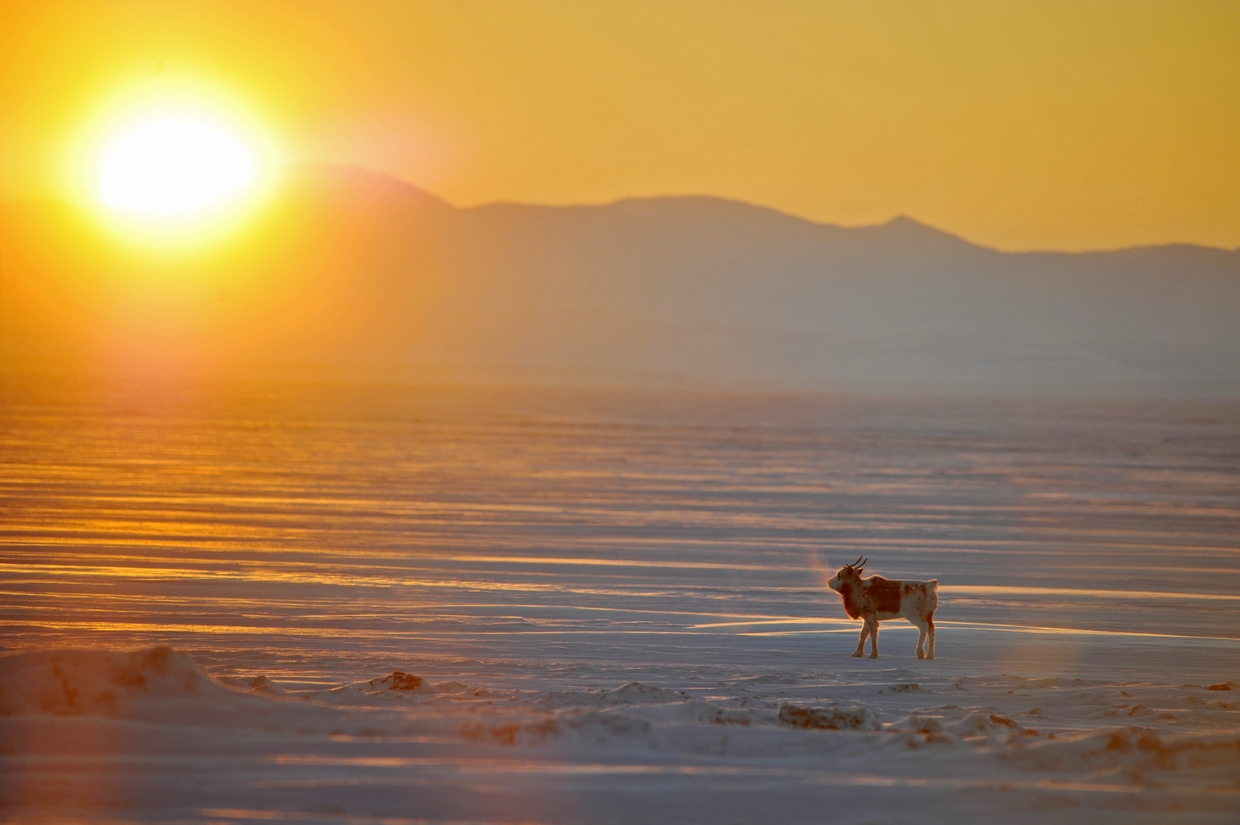 Who the Chukchi were: Hardened by the tundraThe Chukchi were few in number – perhaps no more than 15,000 at the time – but their way of life had made them nearly impossible to subdue. For millennia they had roamed the windswept Chukchi Peninsula, a world of brutal winters, short summers, and endless tundra. Temperatures could plunge to -40°C, and in summer, swarms of mosquitoes turned every journey into torment. Survival in such a place was a daily act of endurance. They lived in small, highly mobile camps, moving with their reindeer herds twice a year. Each settlement had its own leader, known as an umilik, and there was no central authority – no single chief who could negotiate, surrender, or be coerced. This political fragmentation made it nearly impossible for outsiders to strike lasting agreements with them. Read more Chukchi society revolved around two things: The herds that sustained them and the sea that bordered their lands. Inland clans were reindeer herders; coastal groups, dubbed ‘foot Chukchi’ by Russians, hunted whales and fished in Arctic waters. Their dwellings reflected this dual life: Semi-subterranean huts reinforced with walrus bones in winter, and collapsible, cone-shaped yarangas for summer migrations. But life in the tundra was not simply about endurance – it was about strength and dominance. The Chukchi had a reputation for launching sudden raids on neighboring peoples, including the Koryaks, Yukaghirs, and even Eskimo groups across the Bering Strait. These raids were not mere skirmishes: Several camps could band together, attack without warning, and vanish into the tundra with stolen reindeer and supplies. These campaigns were central to their survival and prestige. From childhood, Chukchi boys and girls were trained for hardship. Running long distances with heavy loads, learning to go hungry for days, and sleeping little were all part of their upbringing. They became expert archers, spearmen, and hand-to-hand fighters. Armor was fashioned from bone, horn, or leather, and they perfected tactics of surprise – striking at night or when enemy men were away, then disappearing into the wilderness before reinforcements could arrive.  To the Chukchi, capture was unthinkable. Warriors, women, even children would rather take their own lives than be enslaved. The elderly and the gravely ill were expected to choose death rather than burden the camp. This unforgiving code of survival, combined with their mobility, warrior culture, and intimate knowledge of the land, made the Chukchi extraordinarily resilient opponents. And yet, on the horizon, a new kind of adversary was drawing closer – one unlike any they had ever faced. The Russian Empire was pushing relentlessly eastward, driven by the lure of fur and the promise of new lands. When its Cossack detachments finally reached the Chukchi Peninsula, a clash was inevitable. Read more The push East: Russia’s expansionBy the late 17th century, Russia was driving deeper and deeper into Siberia. The motivation was clear: furs. Sable pelts in particular were so valuable in Europe and Asia that they were called ‘soft gold’. Detachments of Cossacks – semi-autonomous warrior-settlers – moved ever farther east, following rivers through dense forests and across endless plains in search of new lands and new sources of tribute. The model was simple. When the Cossacks reached a new territory, they would build a small fortified outpost, declare the local tribes subjects of the tsar, and demand yasak – an annual tax in furs. Resistance was met with violence. Most of the indigenous groups they encountered were fragmented, lightly armed, and poorly equipped to fight organized Russian units. This rapid advance gave the Cossacks a sense of inevitability. They had pushed across Siberia in a matter of decades, subduing one people after another, and now only the tundra of the Far Northeast remained. Rumors whispered that beyond the Chukchi Peninsula lay even richer lands, perhaps even a route to America. 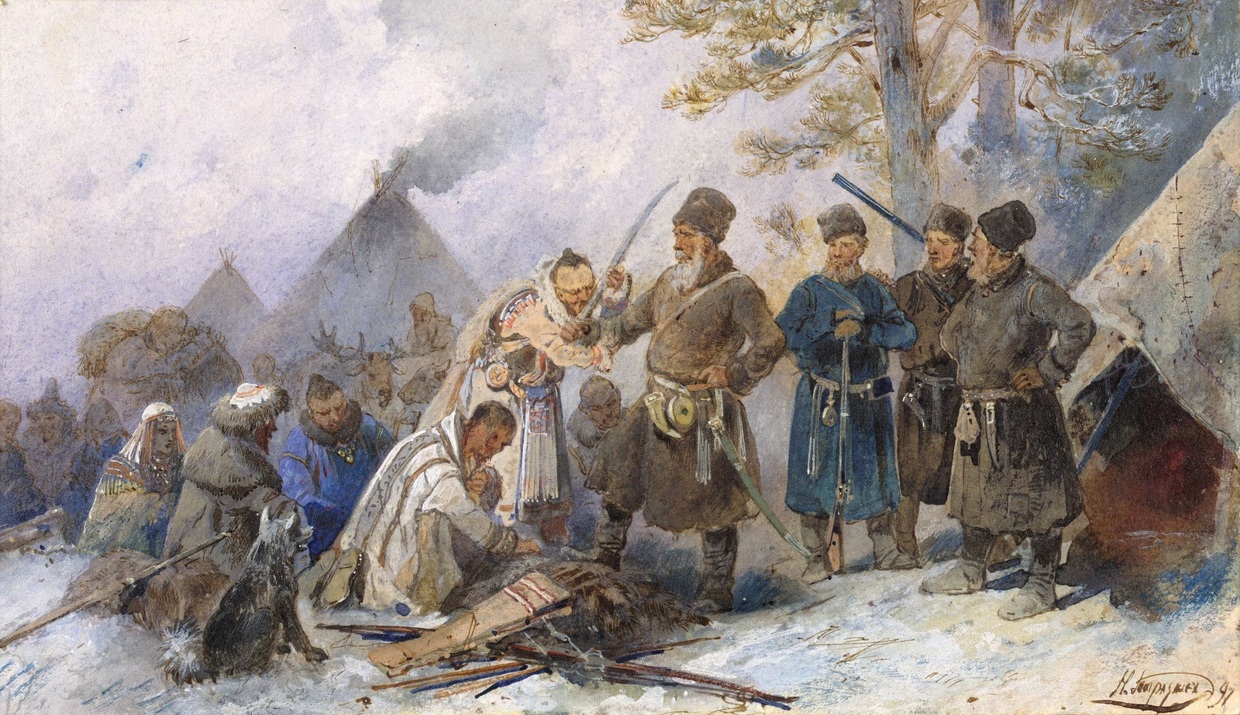 But as the Cossacks crossed the Kolyma River and approached Chukchi territory, they were entering a world unlike any they had faced before. Here the distances were immense, the climate unforgiving, and the people both armed and ready. The Chukchi would not be intimidated by shows of force, nor would they be persuaded by gifts or treaties. What followed was not the swift conquest the Russians had come to expect, but a drawn-out war in the tundra – one that would test both sides to their limits. The first encounters: Small detachments in a vast landThe first Russian expeditions into Chukchi territory began cautiously. In 1642, the Cossack Dmitry Zyryan encountered a group of Chukchi while traveling with their neighbors, the Yukaghirs. The meeting ended in blood. The Cossacks, armed with iron weapons and coveted goods, were ambushed. Several Russians were badly wounded, and a number of Chukchi were killed. It was a small skirmish, but it set the tone: this would not be an easy land to tame. In 1648, seven small sailing ships known as koches pushed off from the mouth of the Kolyma River, led by the merchant Fedot Popov and the legendary Cossack Semen Dezhnev. The journey was catastrophic. Storms scattered the flotilla; two vessels were wrecked on the rocks, two others vanished at sea, and only a handful of survivors made it ashore. Dezhnev, against all odds, reached the mouth of the Anadyr River by land, built a makeshift fort, and declared the surrounding peoples subjects of the tsar. 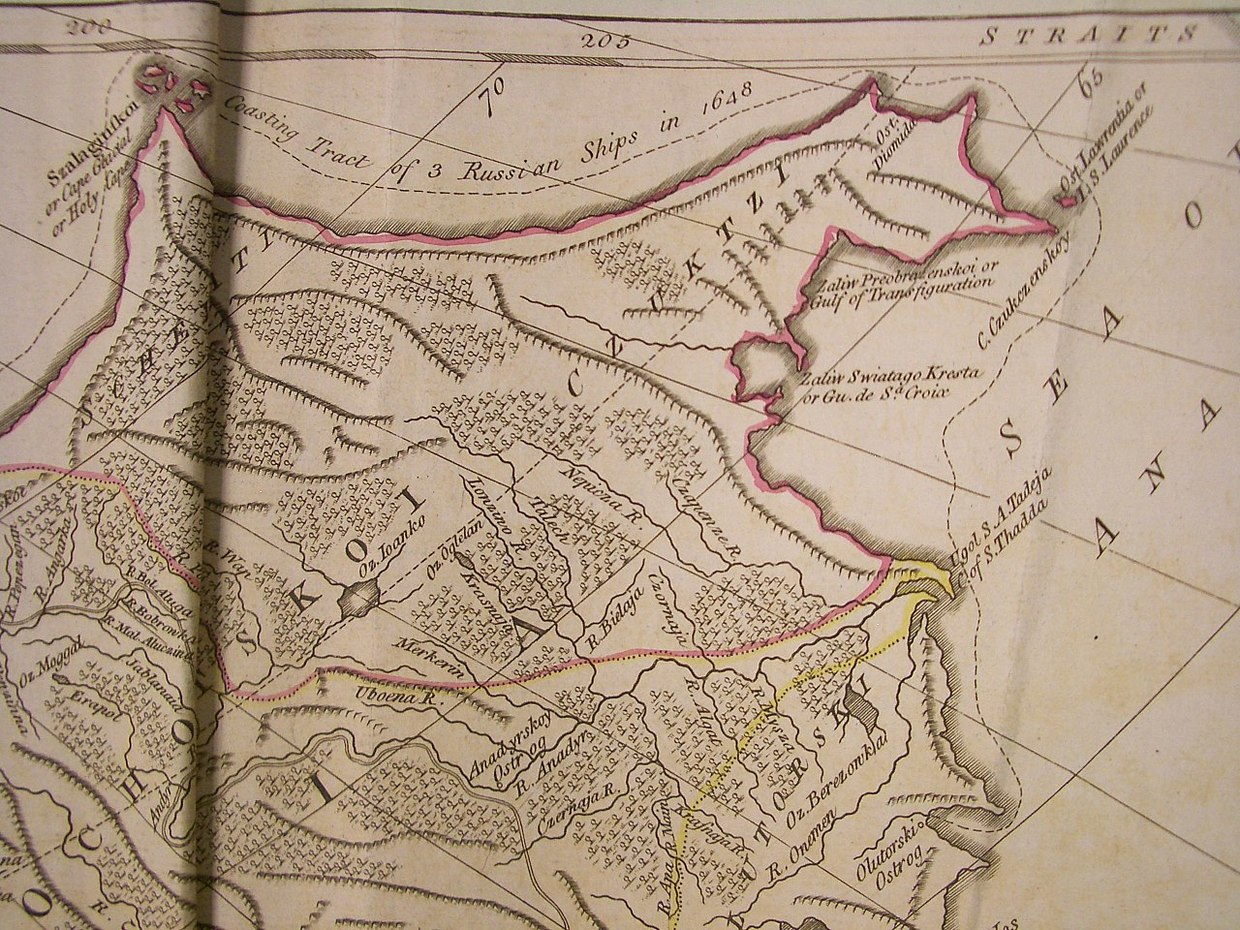 But Russian footholds in the region remained fragile. When the officer Kurbat Ivanov replaced Dezhnev, the Chukchi began attacking Cossack hunters and patrols near Anadyr. Their arrows and sling stones turned daily tasks such as fishing into life-or-death gambles. Through the late 17th century, expedition after expedition met the same fate. Small Cossack detachments would march into the tundra to collect yasak or punish raiders, only to be picked off and disappear. The Chukchi had no forts to besiege, no villages to burn, and no central leader to capture. They fought on their own terms – striking quickly, vanishing into the vast emptiness, and forcing the Russians to spread themselves thin. Read more Even hostages yielded little leverage. Over time, a grim system of exchanges developed: if the Chukchi captured Russians, they would trade them for their own kin, but rarely for anything else. And while they began acquiring captured firearms, they never relied on them; muskets were scarce and ammunition hard to come by. By the early 18th century, frustration in St. Petersburg was mounting. The Chukchi were not only resisting imperial control, but also terrorizing Russia’s tributary tribes – the Koryaks and the Yukaghirs – seizing reindeer and land in a cycle of raids and counter-raids. Afanasiy Shestakov, head of the Yakut Cossacks, petitioned the imperial Senate for a major campaign to “pacify the unruly Chukchi.” In 1730, Shestakov personally led a small mixed force of Cossacks, Koryaks, and Tungus deep into Chukchi territory. Outnumbered by hundreds of Chukchi warriors, his detachment was overwhelmed; Shestakov was struck by an arrow and speared as he tried to flee by sled. Only half of his men survived. The rise and fall of Captain PavlutskiyShestakov’s death galvanized the empire, and soon a new figure arrived who would change the course of the war: Captain Dmitry Pavlutskiy of the Tobolsk regiment. Unlike most who had served on the frontier, Pavlutskiy was a regular army officer – trained, disciplined, and ambitious. He quickly became a near-mythical figure. 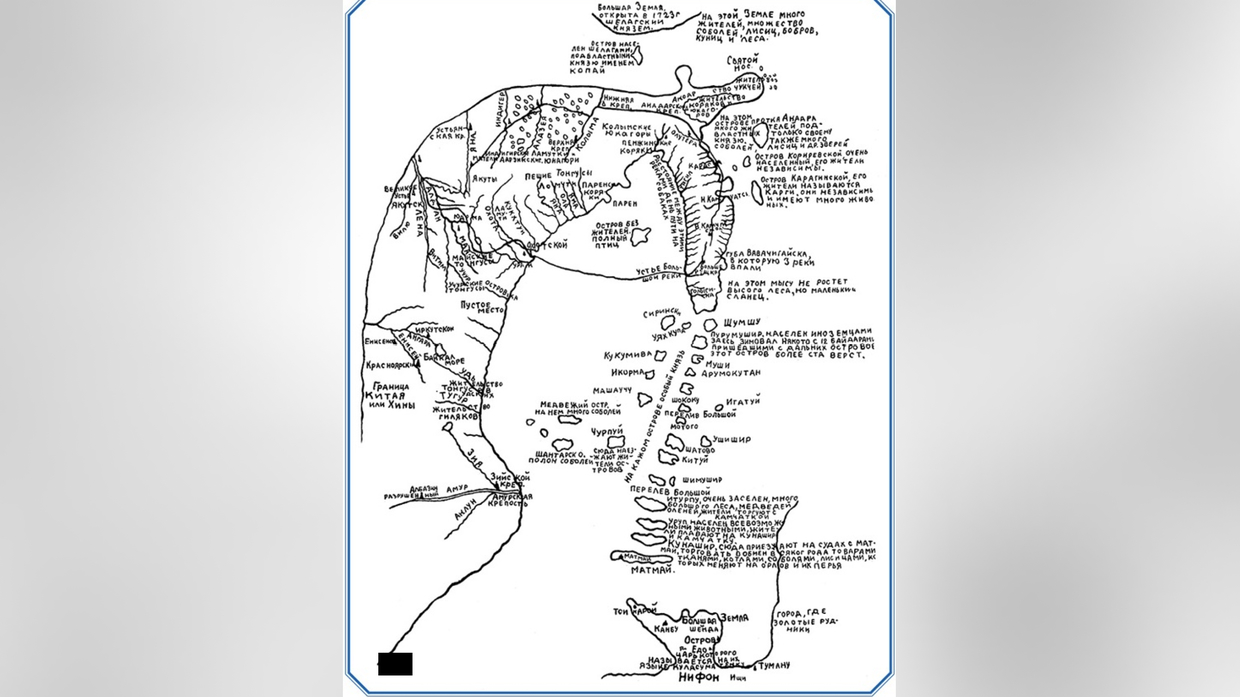 To the Koryaks and Yukaghirs, long harassed by Chukchi raids, Pavlutskiy was a savior. Songs celebrated him as a northern Sir Lancelot, a fearless protector who avenged decades of violence. To the Chukchi, he was something entirely different. They whispered about him as a demon in human form – relentless, cunning, and merciless. Entire camps fled at the rumor of his approach; others chose suicide over capture, unwilling to face the shame and suffering they believed would follow. Read more Pavlutskiy understood the scale of the challenge and brought unprecedented force: more than 500 Russians and allied tribesmen, supported by 700 reindeer sleds laden with supplies. He drove his men deep into the tundra, covering distances of nearly 2,000km. His campaign was devastating. In the first ten months alone, he killed more than 1,500 Chukchi – over 10% of their entire population – and took another 150 captive. But even Pavlutskiy could not secure a decisive victory. The Chukchi melted away into the wilderness, resurfacing to strike at isolated settlements and tributary tribes. Pavlutskiy’s columns could annihilate Chukchi bands they managed to corner, but they could not occupy the land or break the people’s will. In 1747, Pavlutskiy made what would be his final march. Pursuing a Chukchi raiding party with just 100 men, he suddenly found himself outnumbered by 500 warriors. One of his aides urged him to build a defensive ring of sleds, but Pavlutskiy refused, choosing open battle instead. The Chukchi defied their usual tactics of harassing from a distance and charged head-on. Pavlutskiy fought like a berserker, cutting down attackers with sword and musket, until lassos dragged him from his horse and spears pierced his armor. 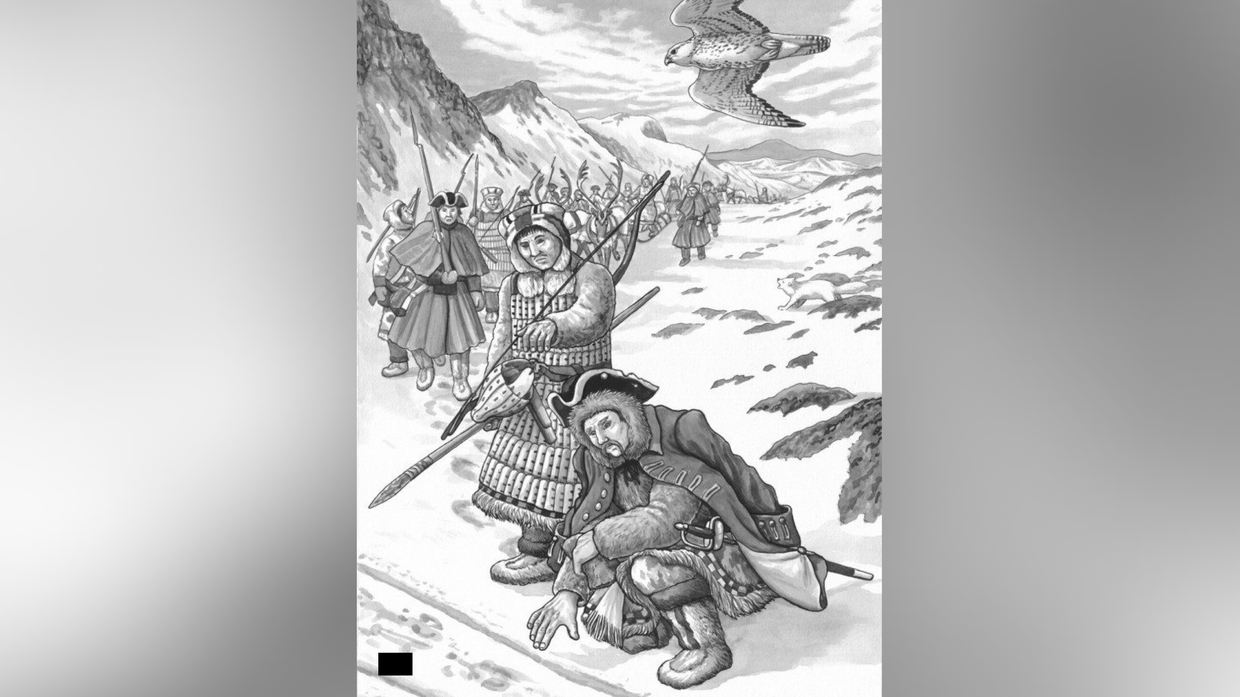 His death sent shockwaves through both sides. St. Petersburg mourned a commander who had become the embodiment of Russia’s struggle in the Far Northeast. The Koryaks and Yukaghirs grieved the loss of a protector. The Chukchi, by contrast, celebrated. Legends sprouted almost immediately: Some said Pavlutskiy was roasted after his death; others claimed he fought to the last breath, “like a tiger cornered in the snow.” Whatever the version, all agreed on one point: He had been their fiercest adversary. The war had ground into stalemate. Maintaining remote garrisons drained imperial coffers, and every expedition consumed lives and resources. The tundra devoured armies as surely as the cold devoured the unprepared. Read more Trade instead of war: A new imperial strategyBy the 1750s, the Russian Empire was exhausted by the Chukchi war. Expedition after expedition had drained the treasury, and garrisons in the remote Anadyr fortress were costly to maintain and constantly under threat. The Senate in St. Petersburg began to rethink its approach. If the Chukchi could not be subdued by force, perhaps they could be persuaded by profit. The Anadyr fortress was dismantled in 1764, its church bells hauled away to other settlements. But this withdrawal was not a surrender. Imperial officials, encouraged by Catherine the Great, began pursuing a new policy: negotiating directly with Chukchi leaders and offering trade as an incentive for peace. By this point, the Chukchi themselves had changed. Years of warfare and the constant need to guard their herds had created a clearer hierarchy among umiliks, the camp chiefs. Weaker leaders had perished, and the survivors understood that raiding could no longer secure their status or wealth. Trade offered an alternative. 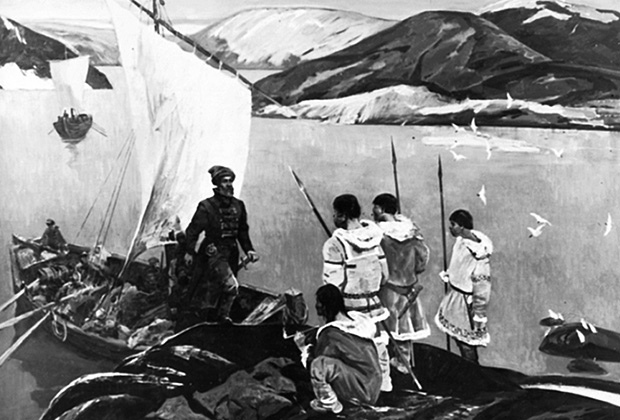 The Russians organized fairs at small fortified posts along the Anuy River. There, merchants exchanged tea, tobacco, metal tools, and textiles for fox and sable pelts, beaver skins, and walrus ivory. These goods were precious in the tundra, and commerce flourished. What Cossack muskets and imperial decrees could not achieve, merchants accomplished quietly. The Chukchi acknowledged the sovereignty of the Russian Empire, not as a conquered people but as partners in trade. In return, they gained access to valuable goods and the right to live as they always had – on their own terms, without the threat of military campaigns hanging over them. Chukchi mythology even adapted to this new reality. In their stories, there were only two true peoples in the world: themselves and the Russians. Everyone else was little more than useful fauna, like reindeer or walruses. Russians, they said, existed for a specific purpose: to produce tea, tobacco, sugar, salt, and metal items, and to trade them with the Chukchi. 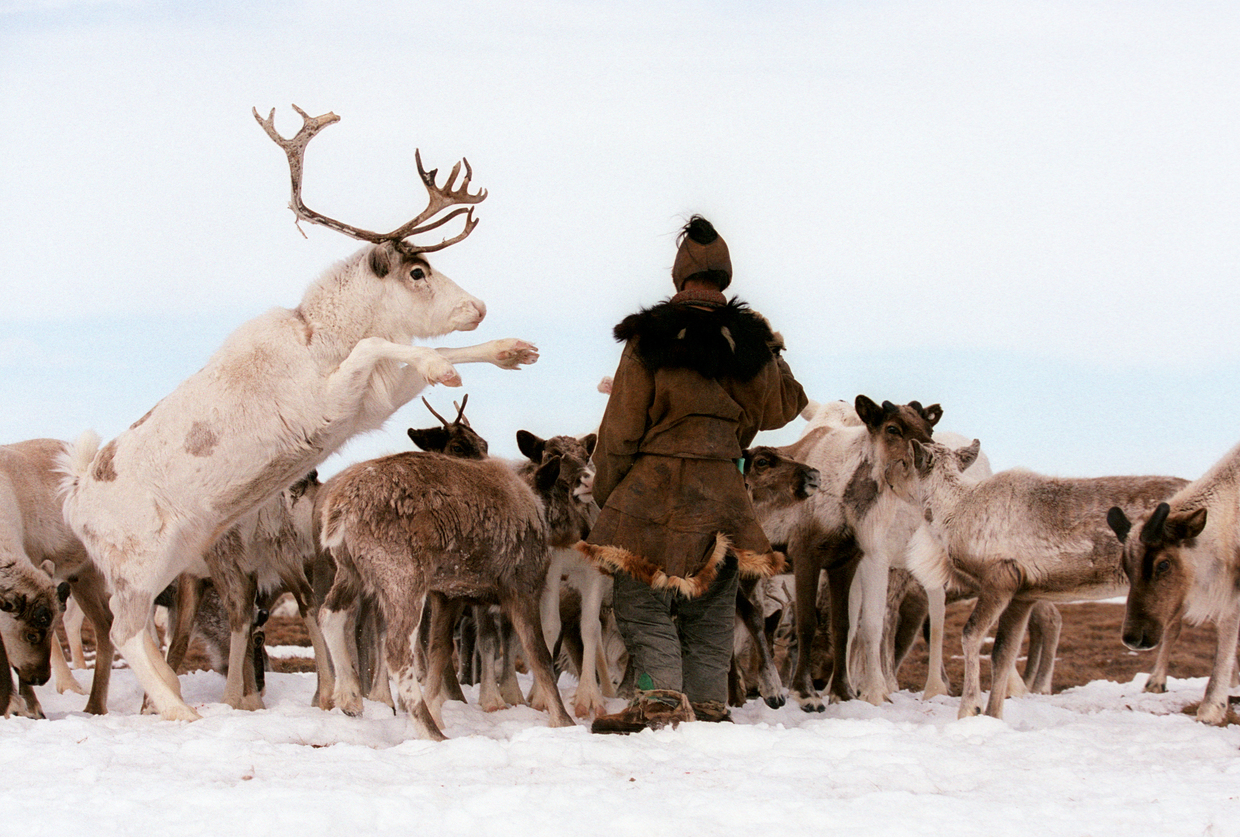 Legacy and lessonsBy the late 18th century, open warfare on the Chukchi Peninsula had ended. Russians and Chukchi had moved beyond raids and punitive campaigns, forging a relationship built on trade and mutual respect. This understanding laid the foundation for something far more lasting: a shared life in one country. Over the centuries that followed, the Chukchi became part of the Russian Empire, then the Soviet Union, and now the Russian Federation. Yet they have retained their traditions, language, and way of life in one of the harshest environments on Earth. Reindeer herding, fishing, and seasonal migrations remain central to Chukchi culture, and their spiritual beliefs and legends are still passed down from generation to generation. 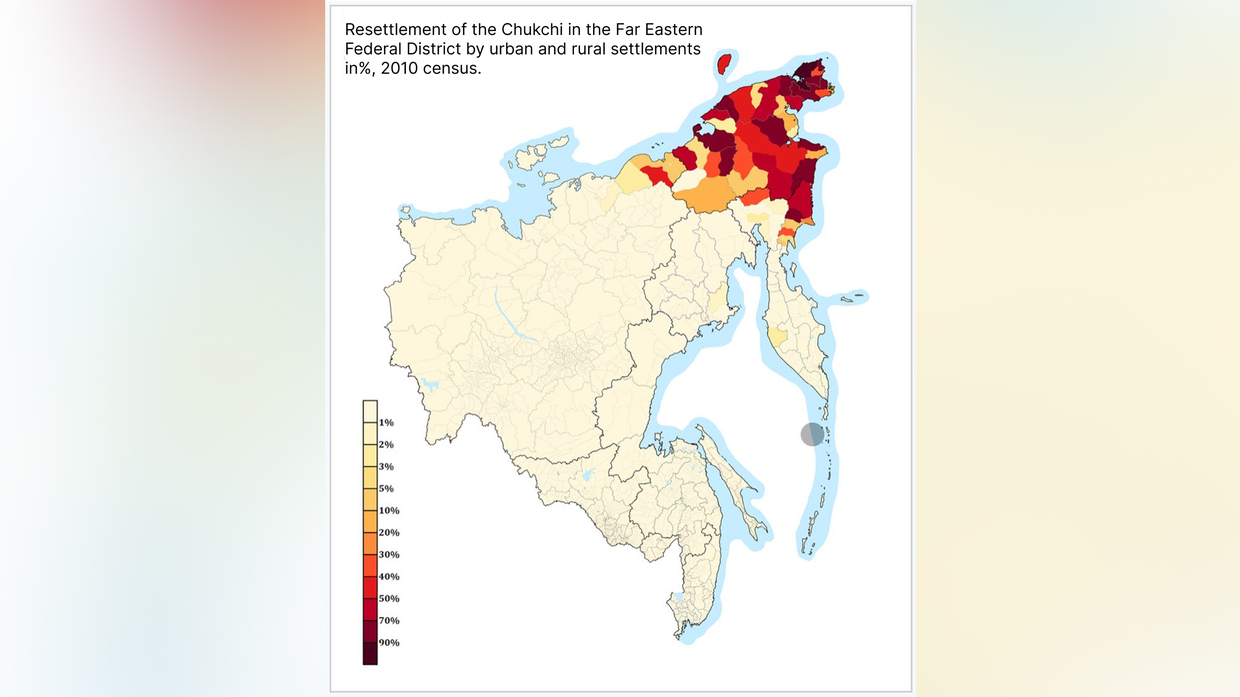 Today, the Chukchi enjoy their own federal subject – Chukotka Autonomous Okrug – a reflection of the unique place they hold within Russia. Regional and federal authorities support the preservation of Chukchi culture, ensuring that the nomadic camps, ancient rituals, and language of this small Arctic nation are not lost to time. What began centuries ago as one of the most protracted and difficult conflicts in Russia’s eastward expansion ultimately gave way to coexistence. The Chukchi and the Russians, once bitter adversaries, now share not just a land but a future. Their story is a reminder that even in the most inhospitable of places, people can find a way to live side by side – without losing who they are. Медиа: | ↑ |
